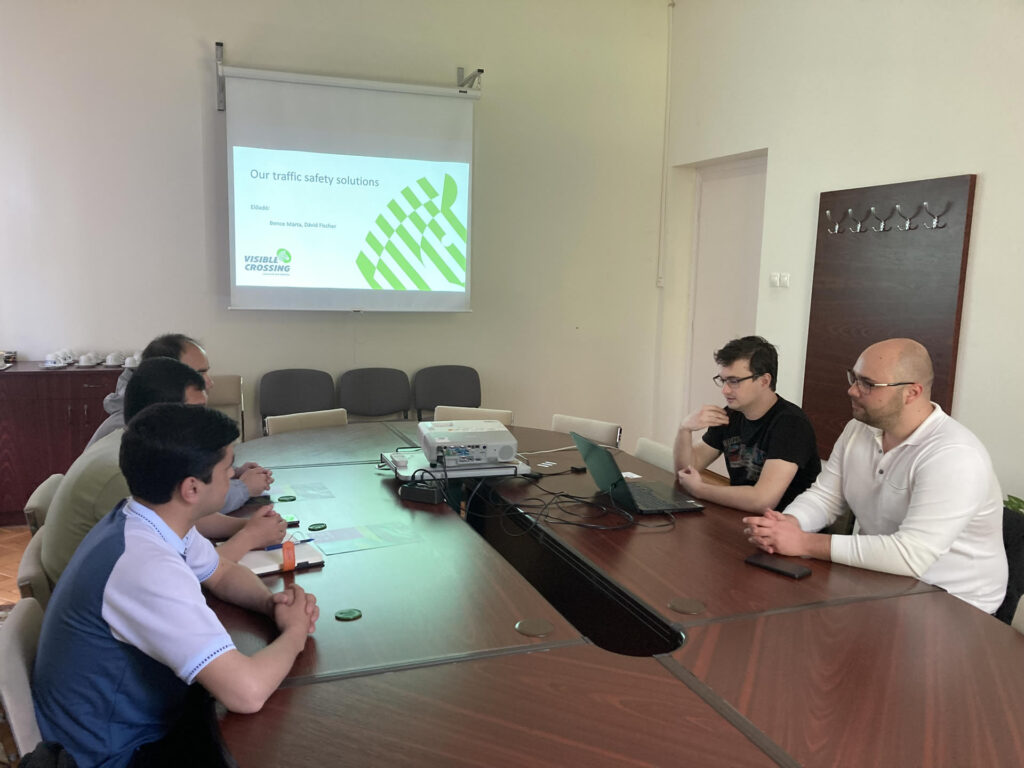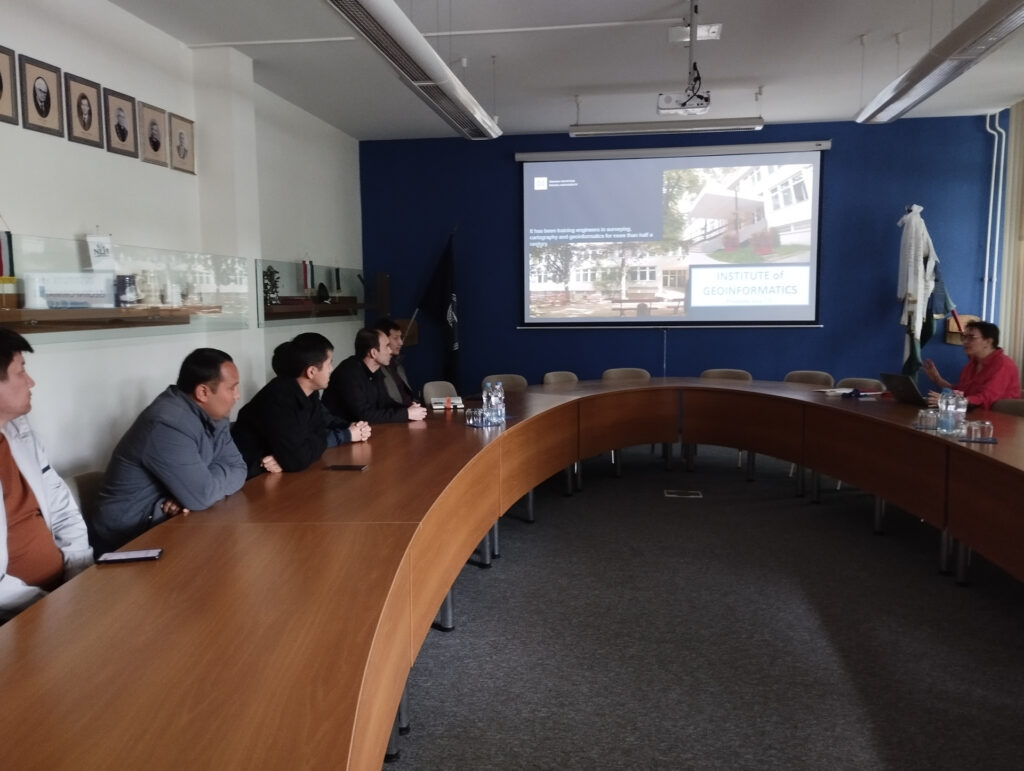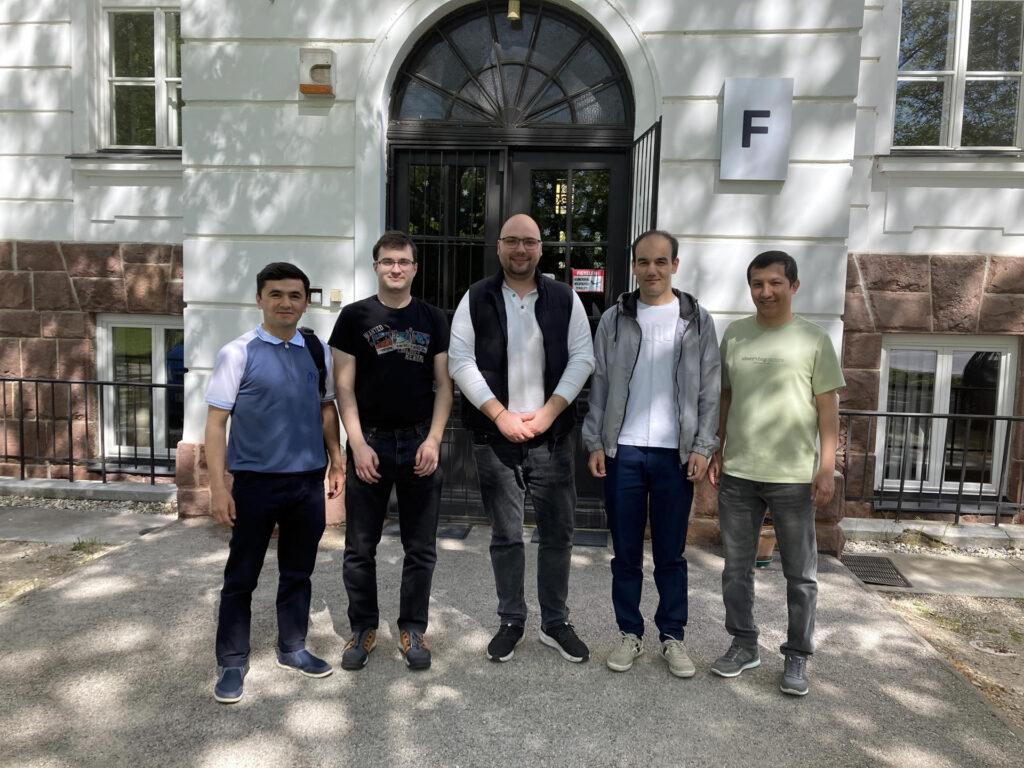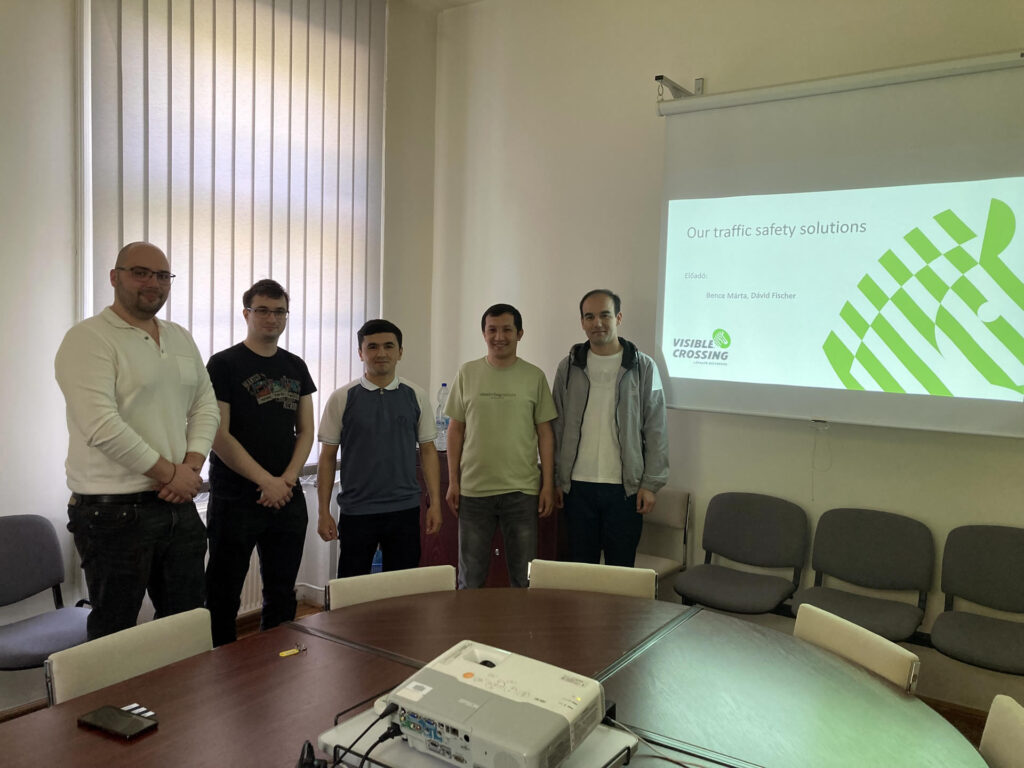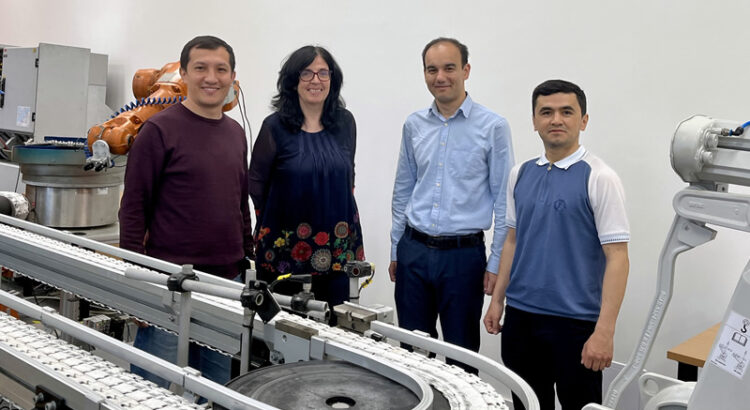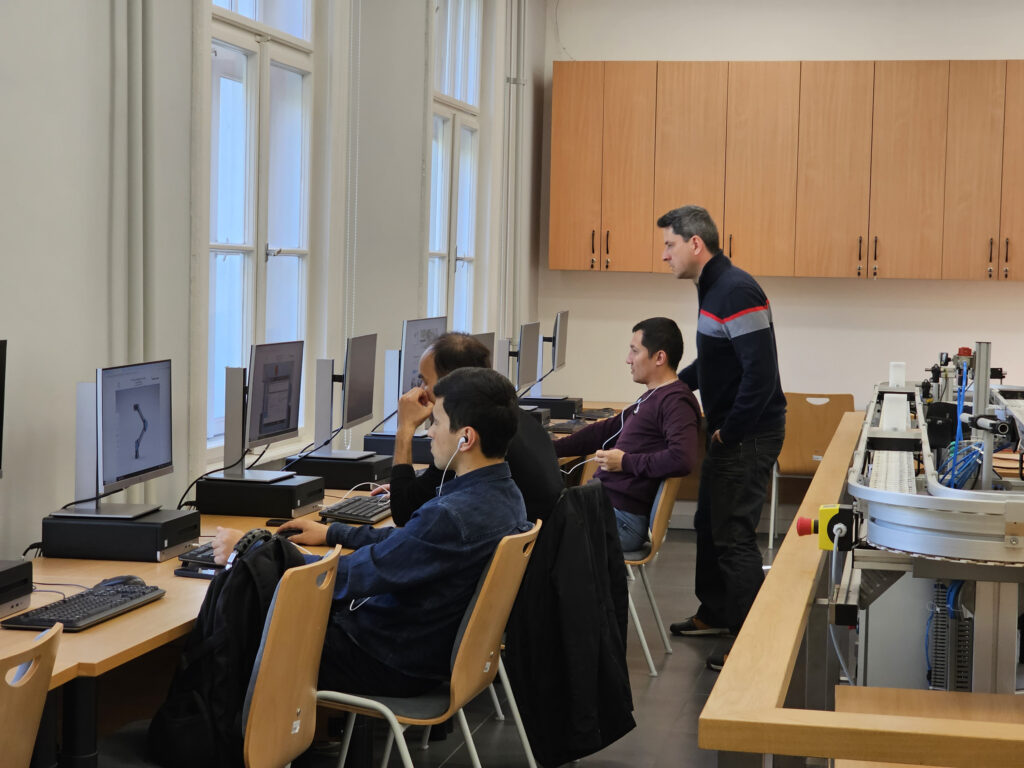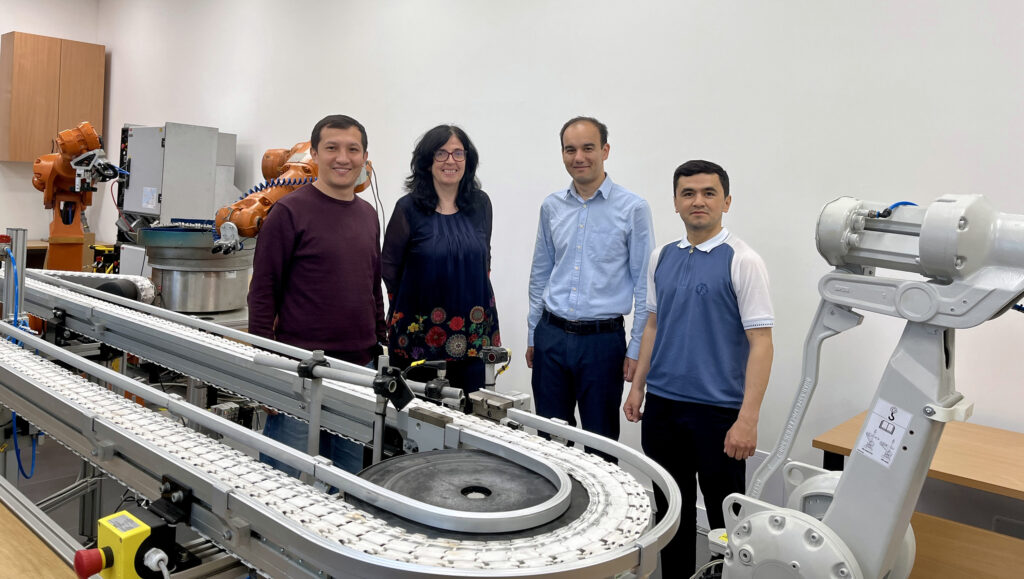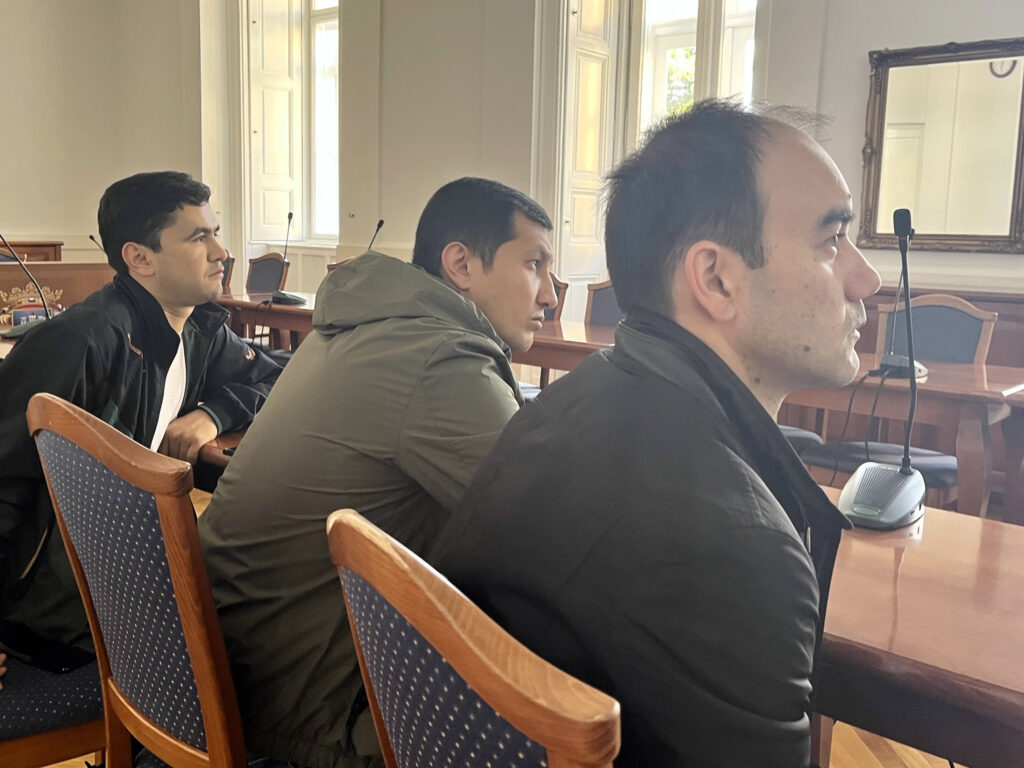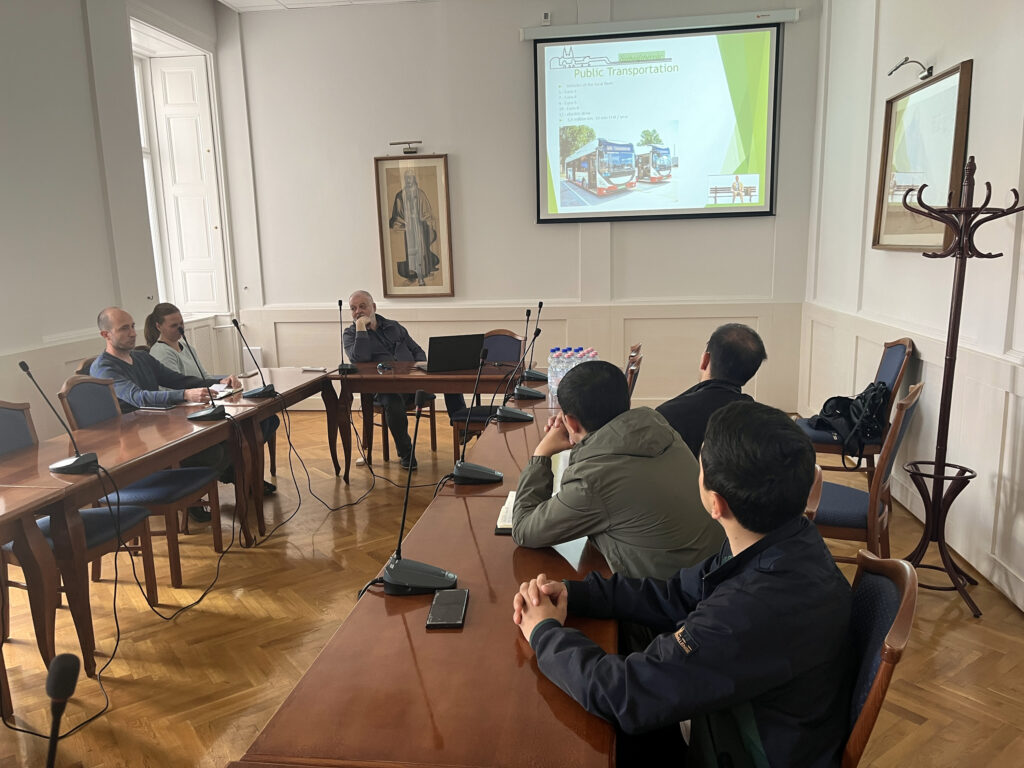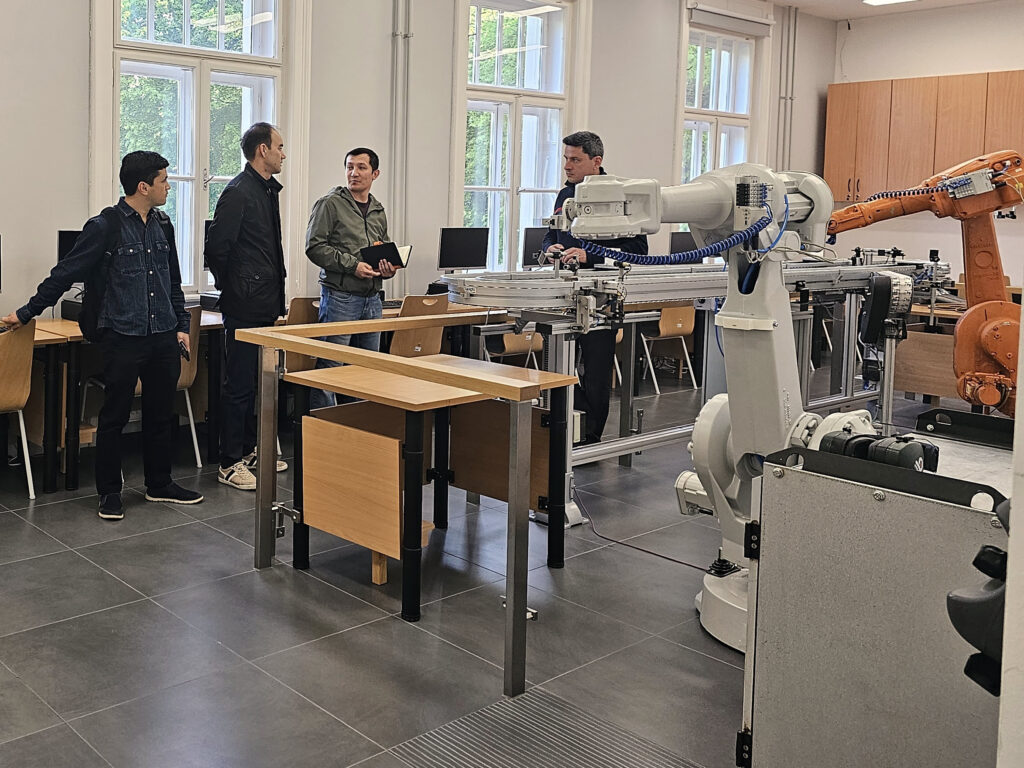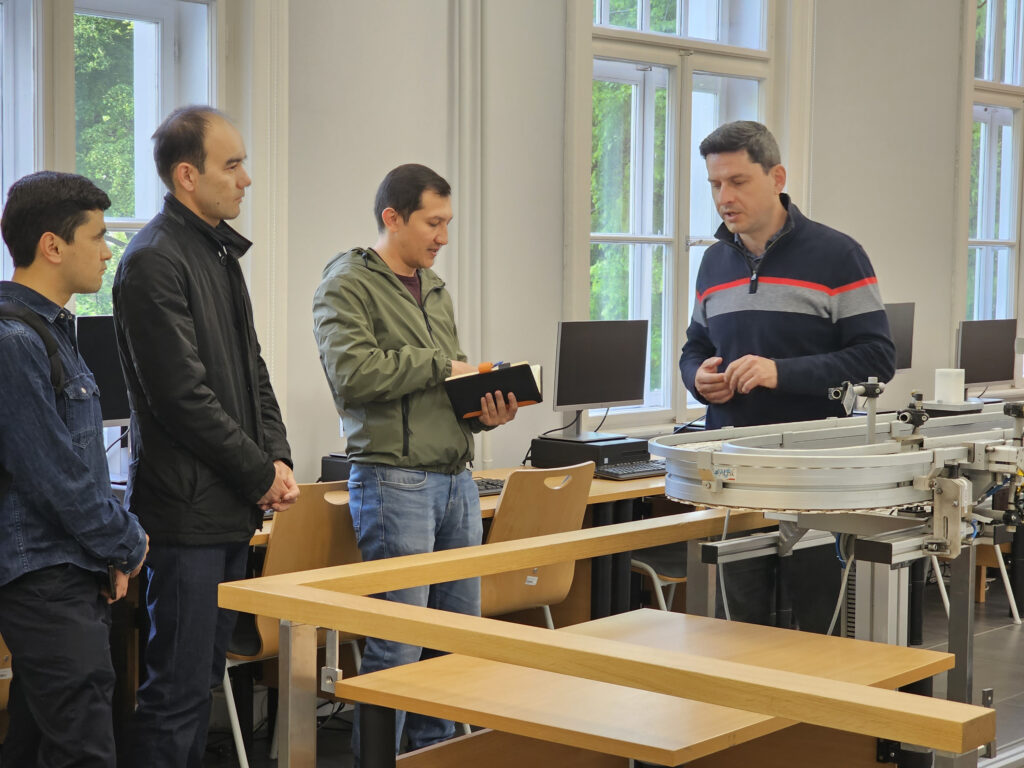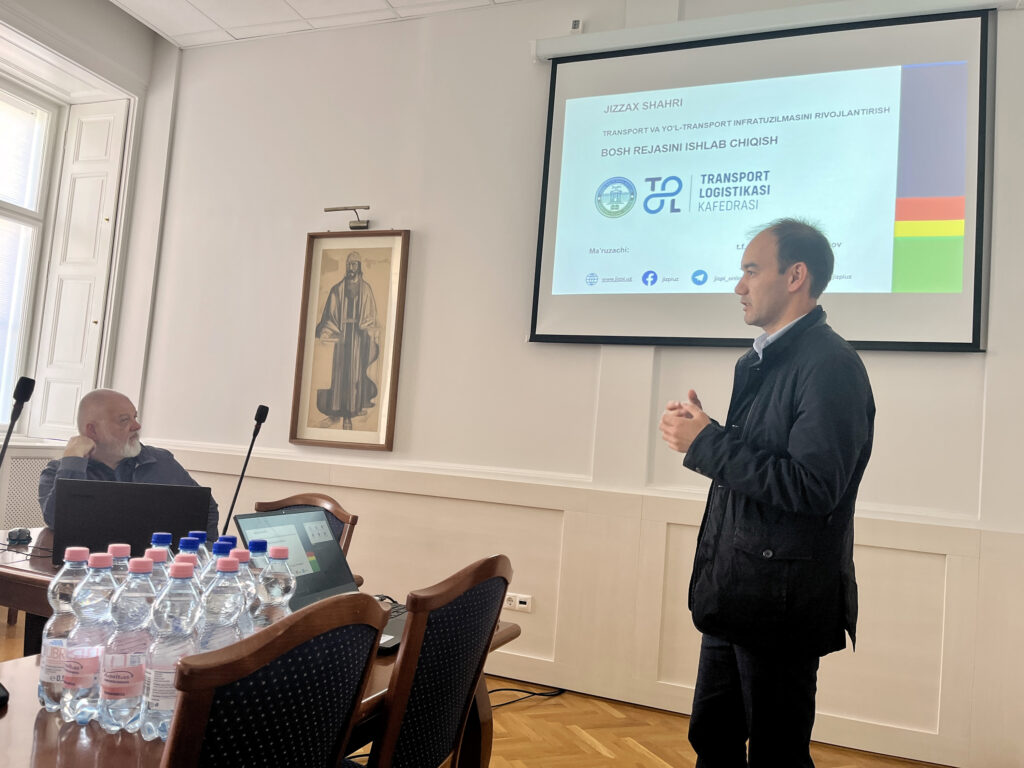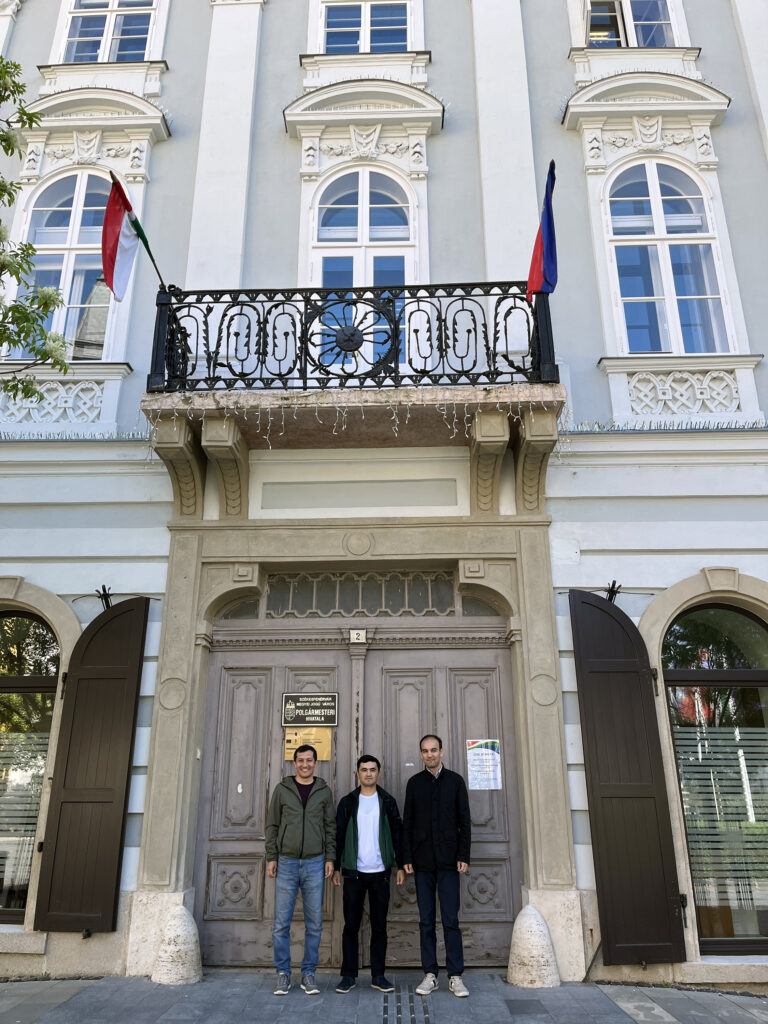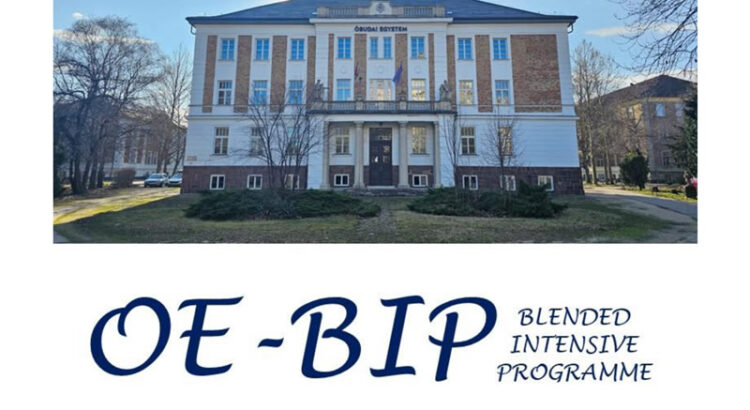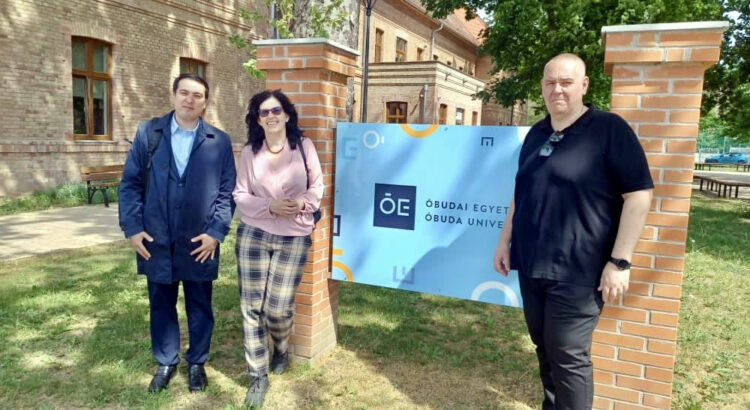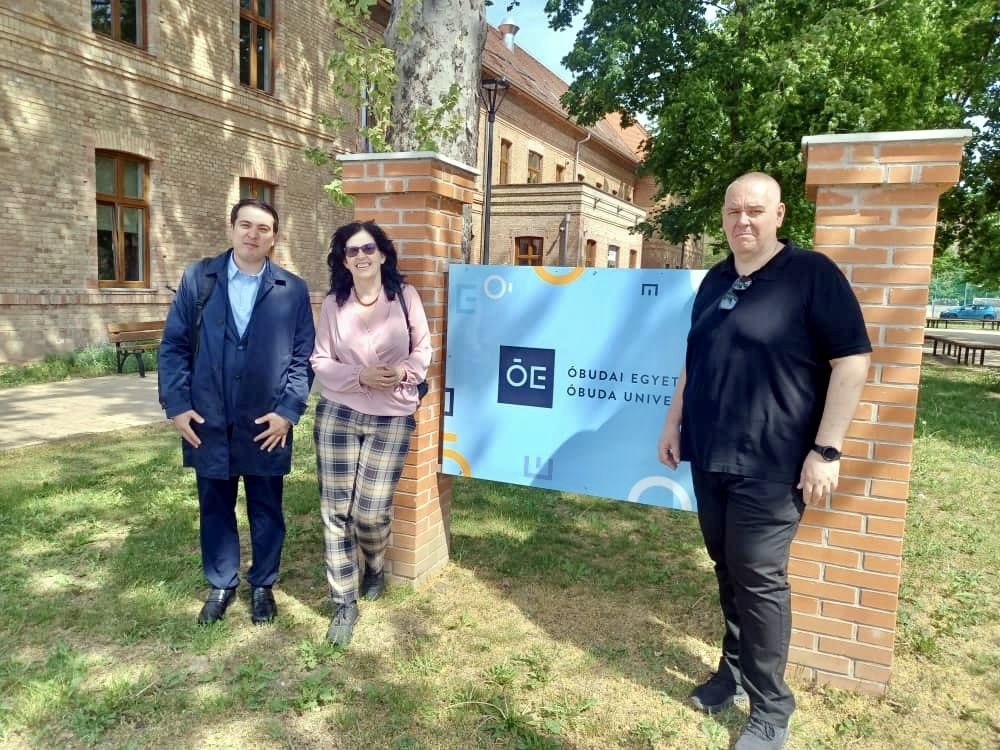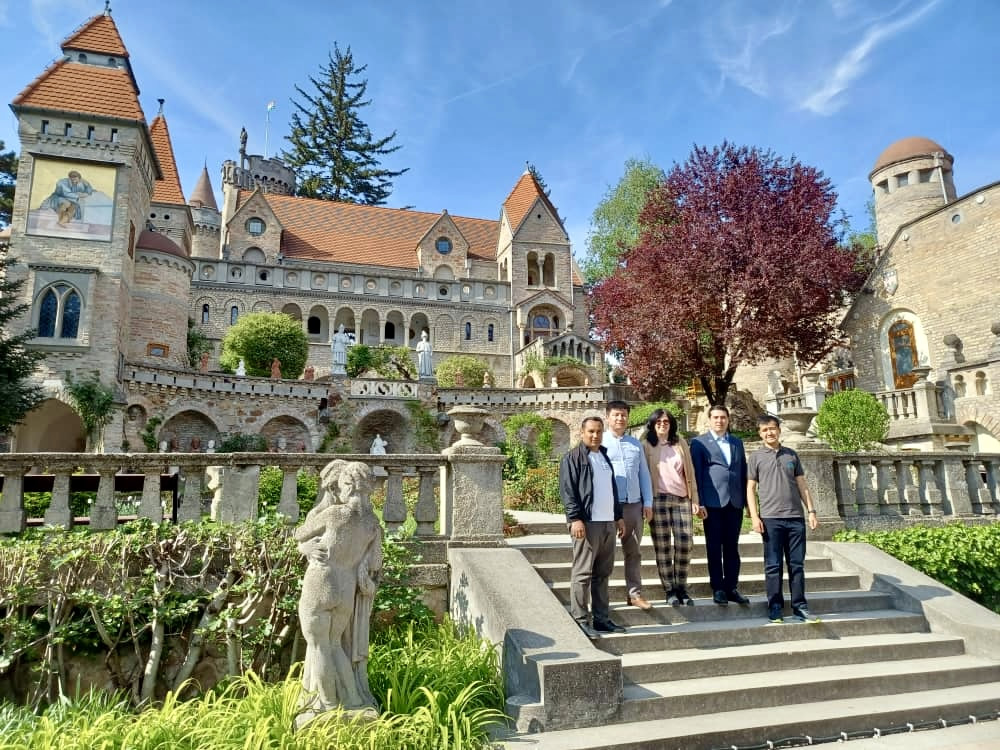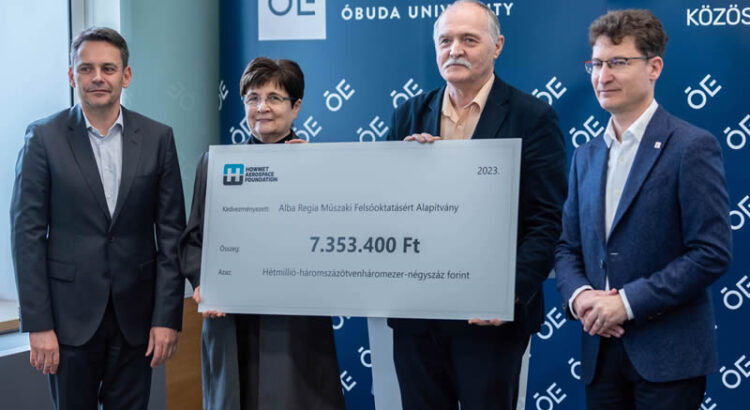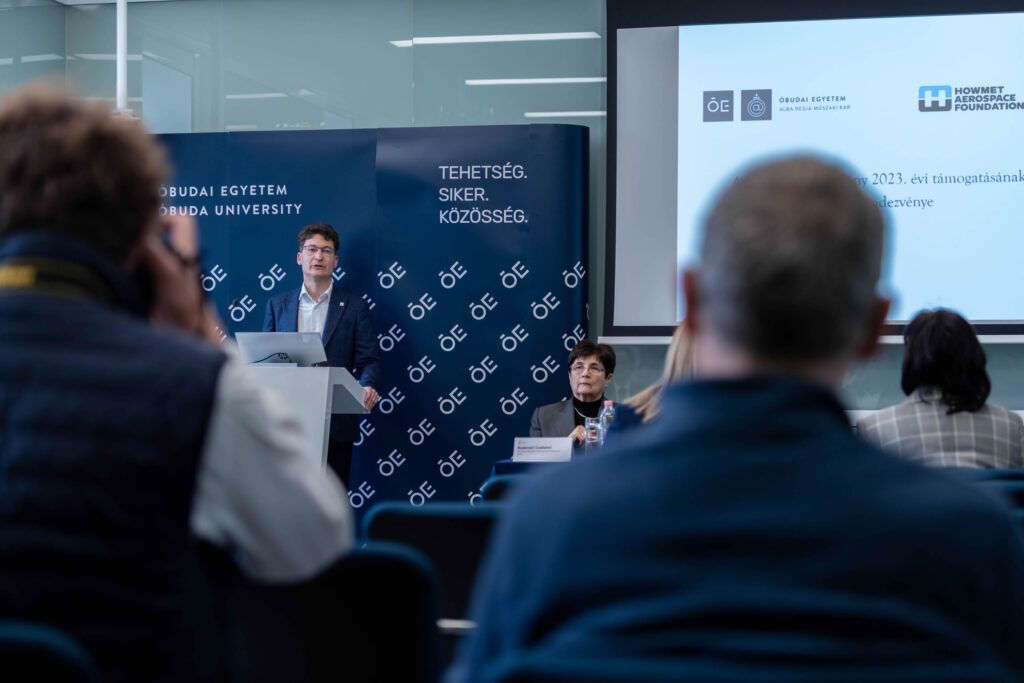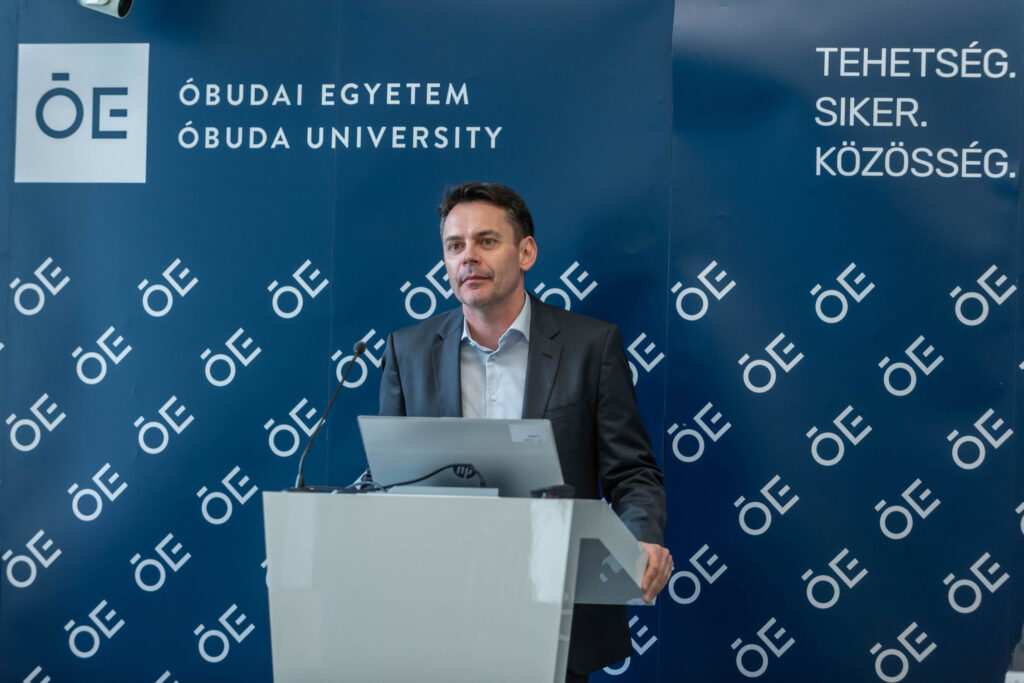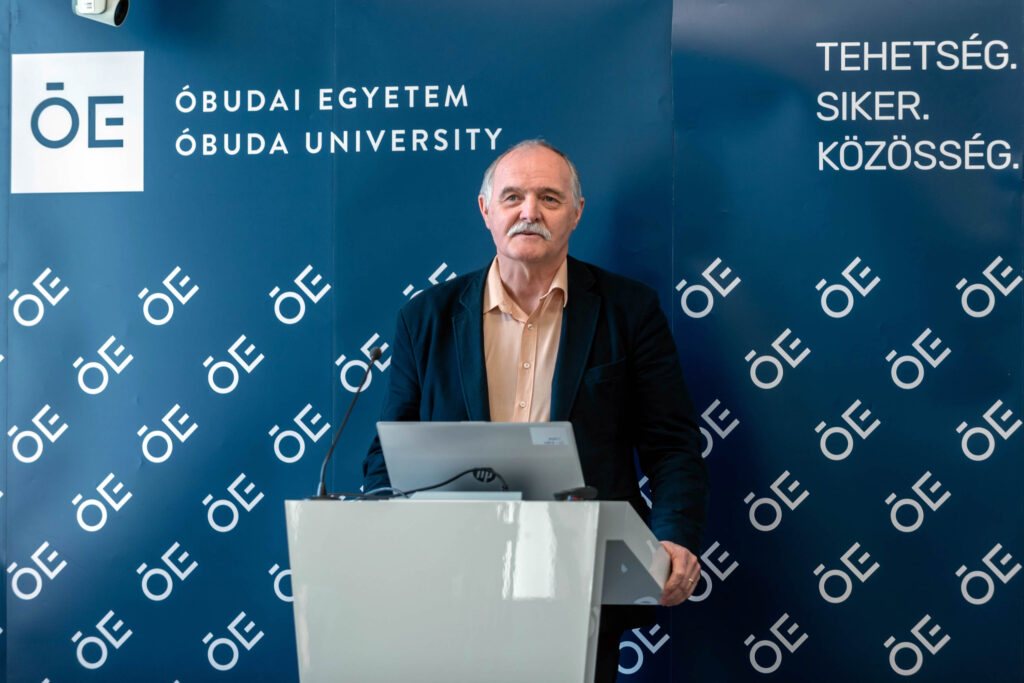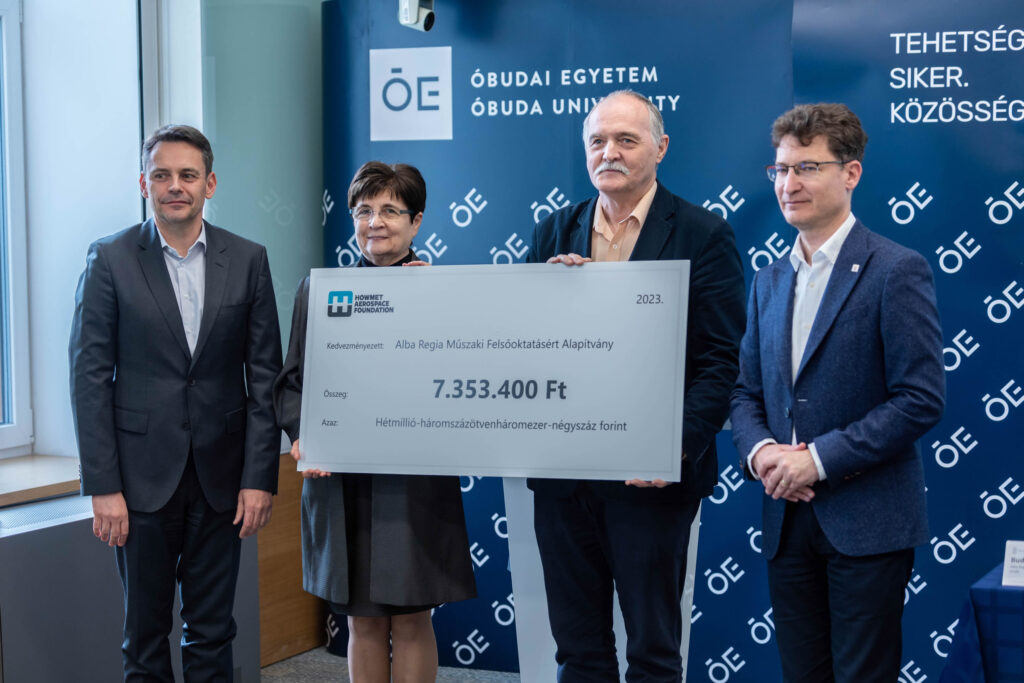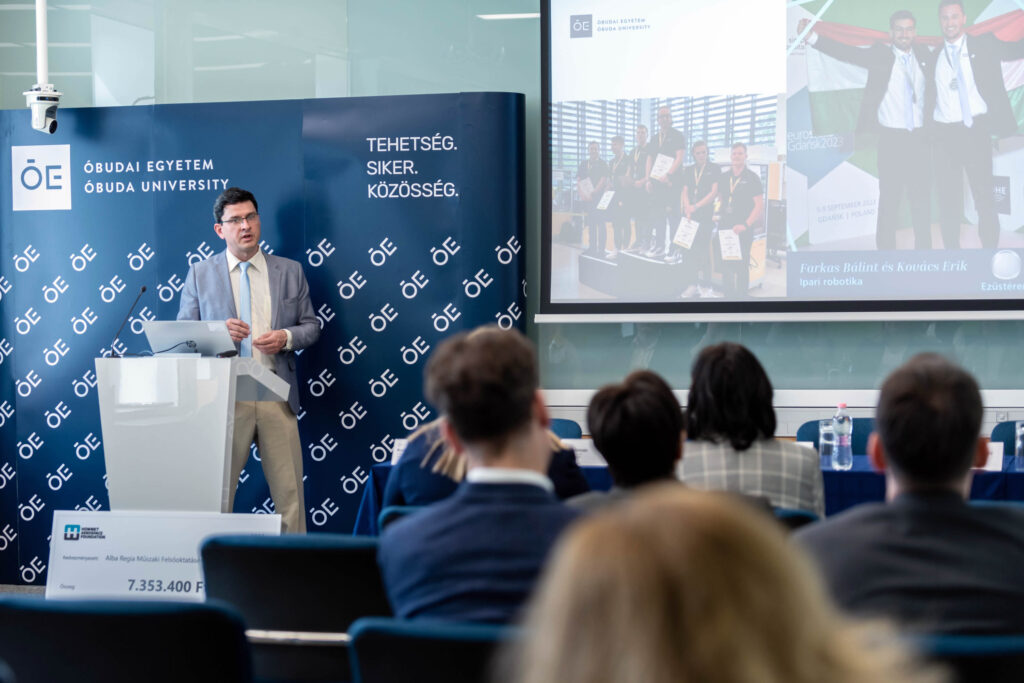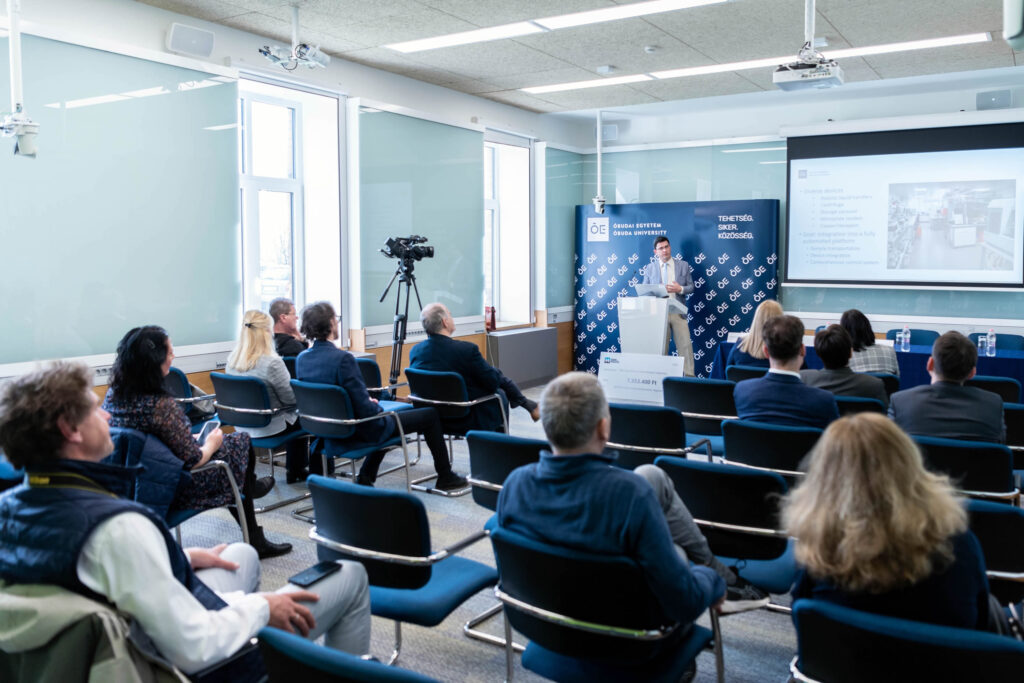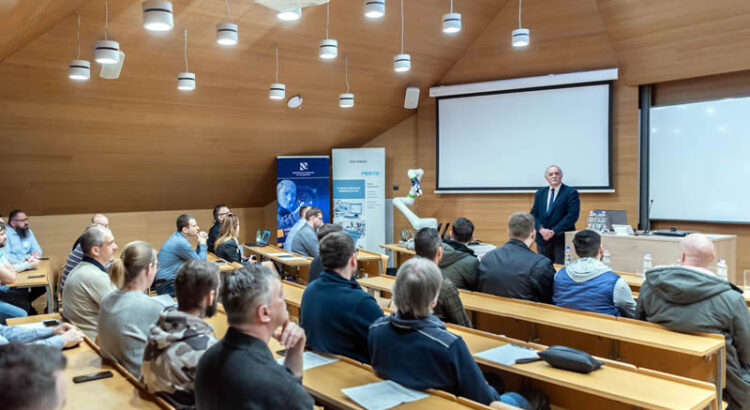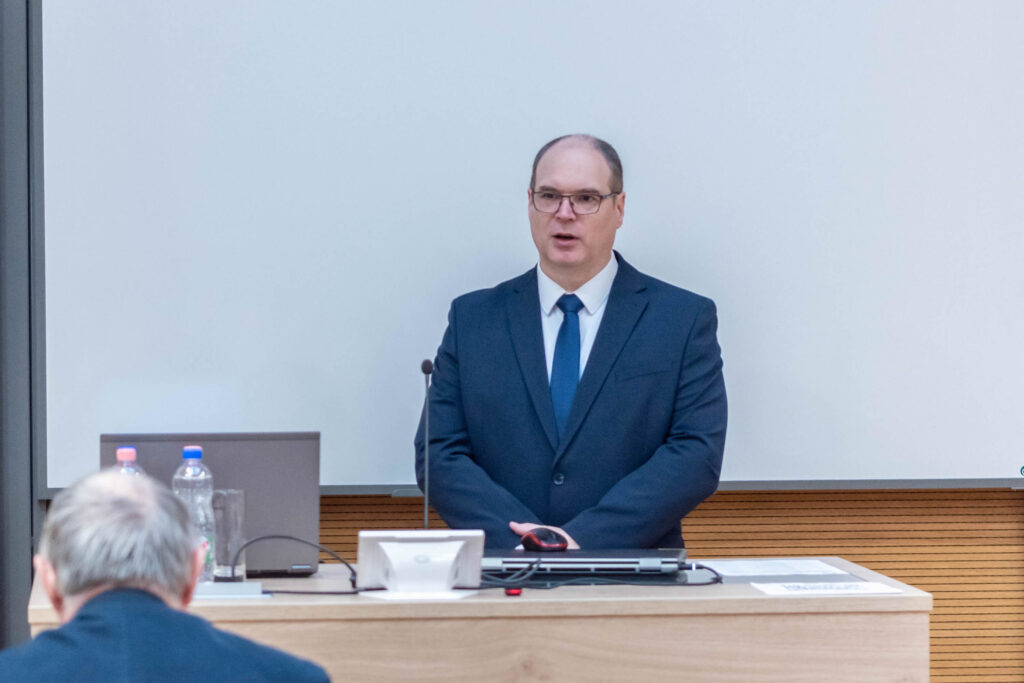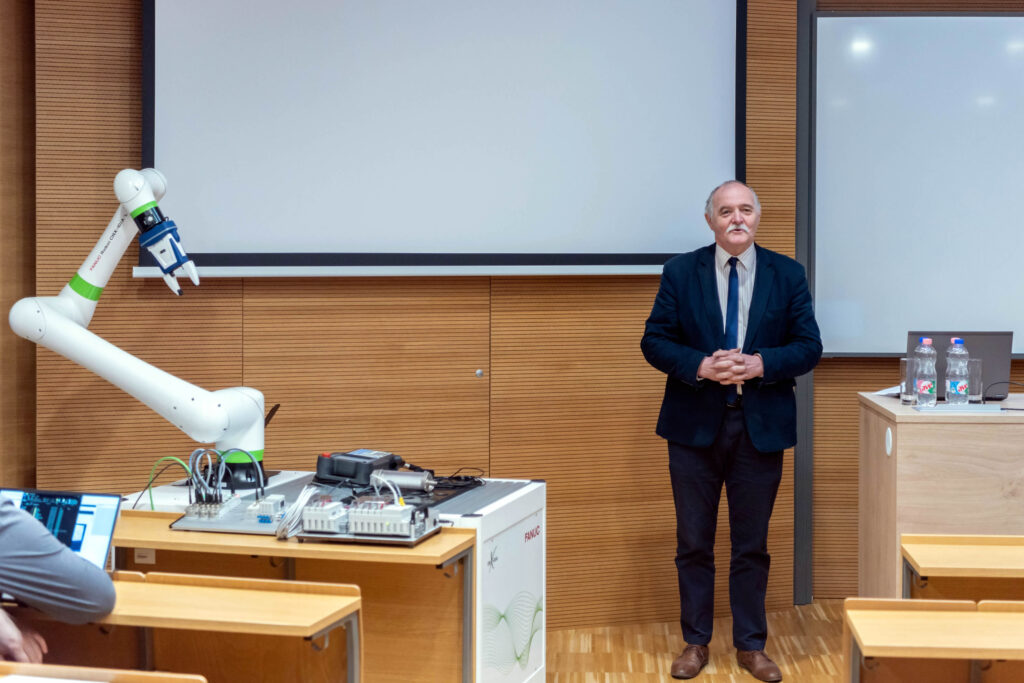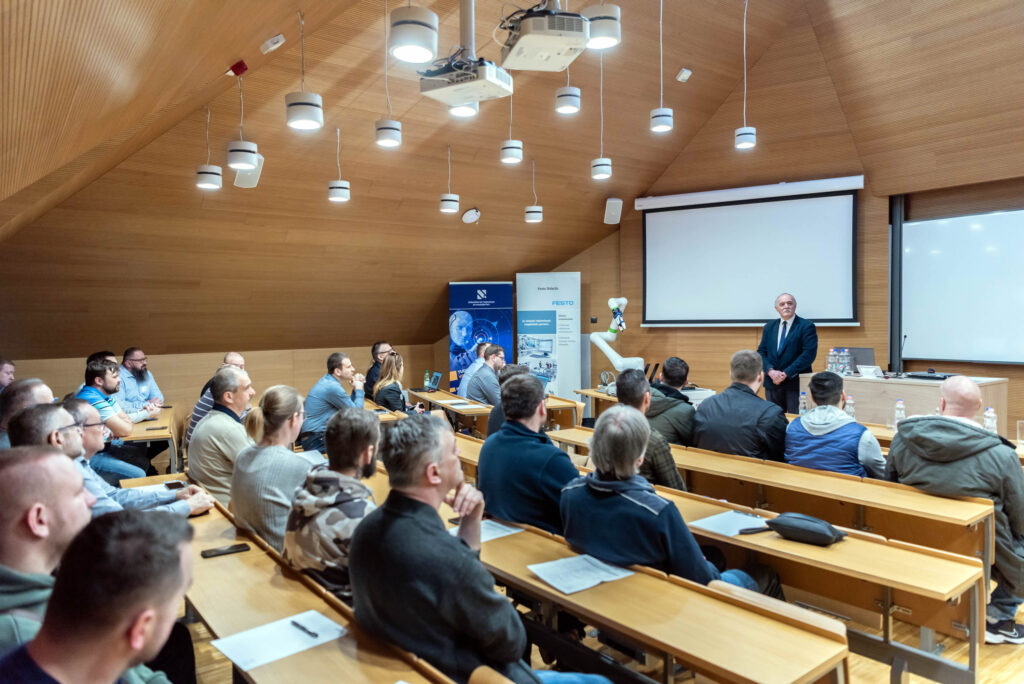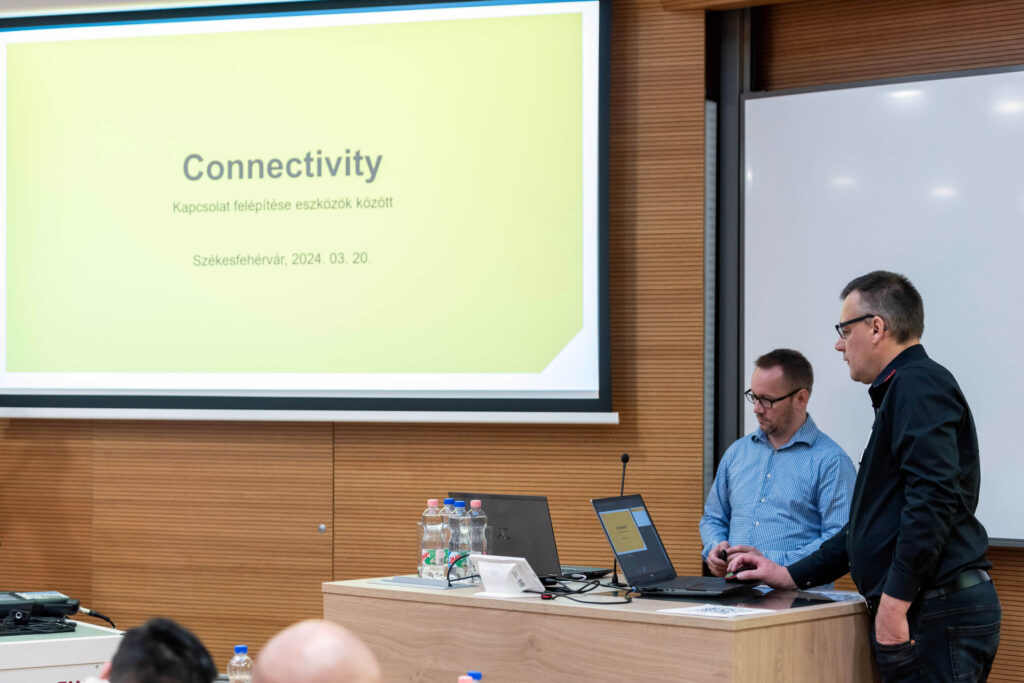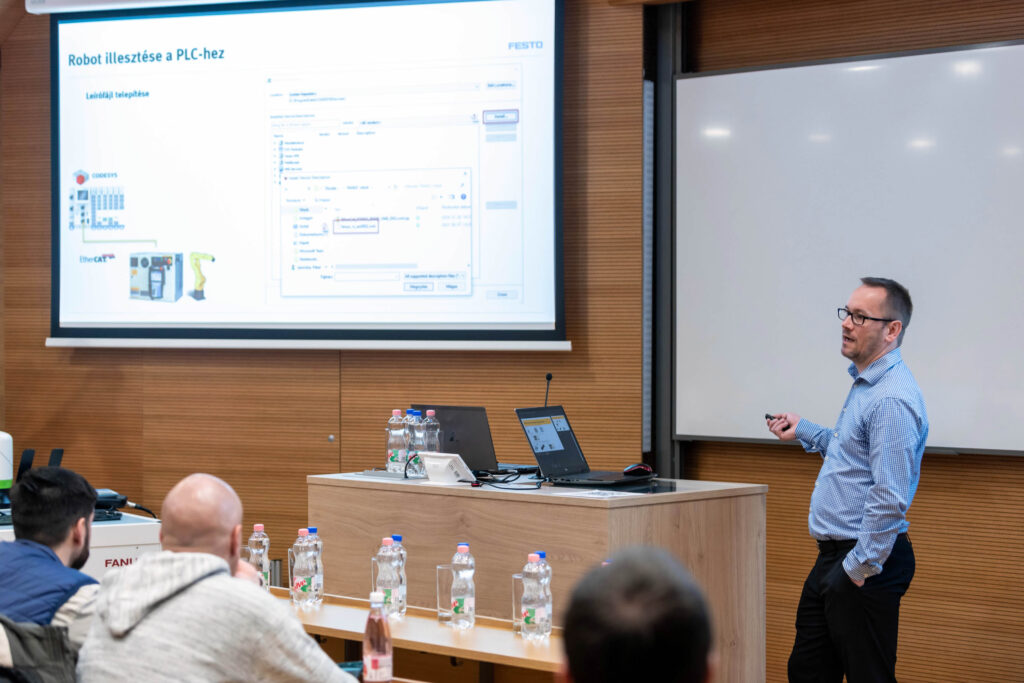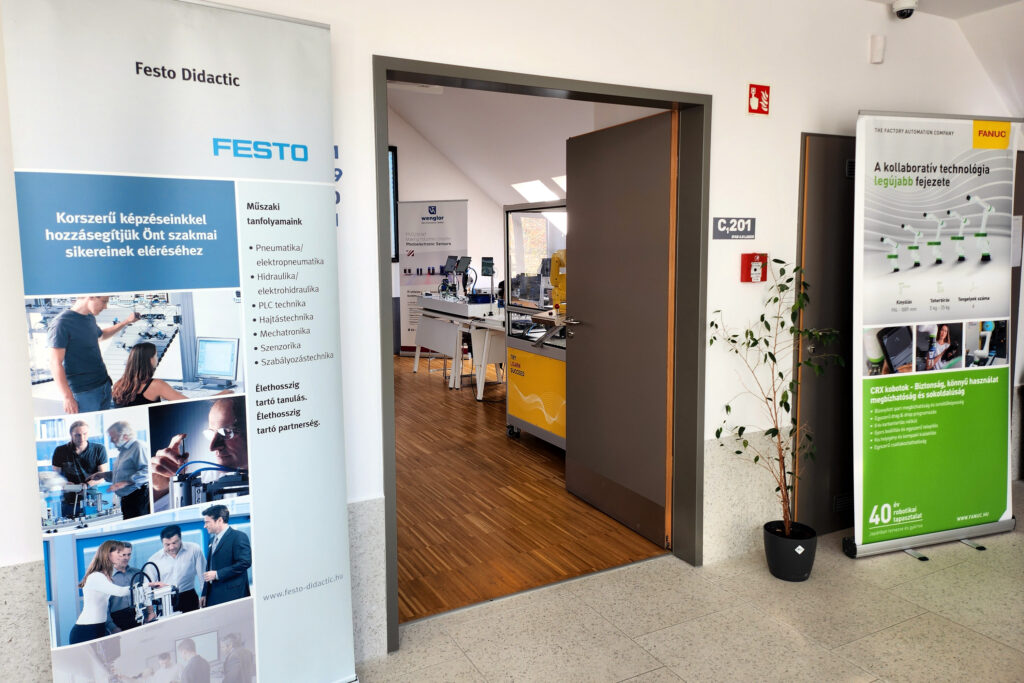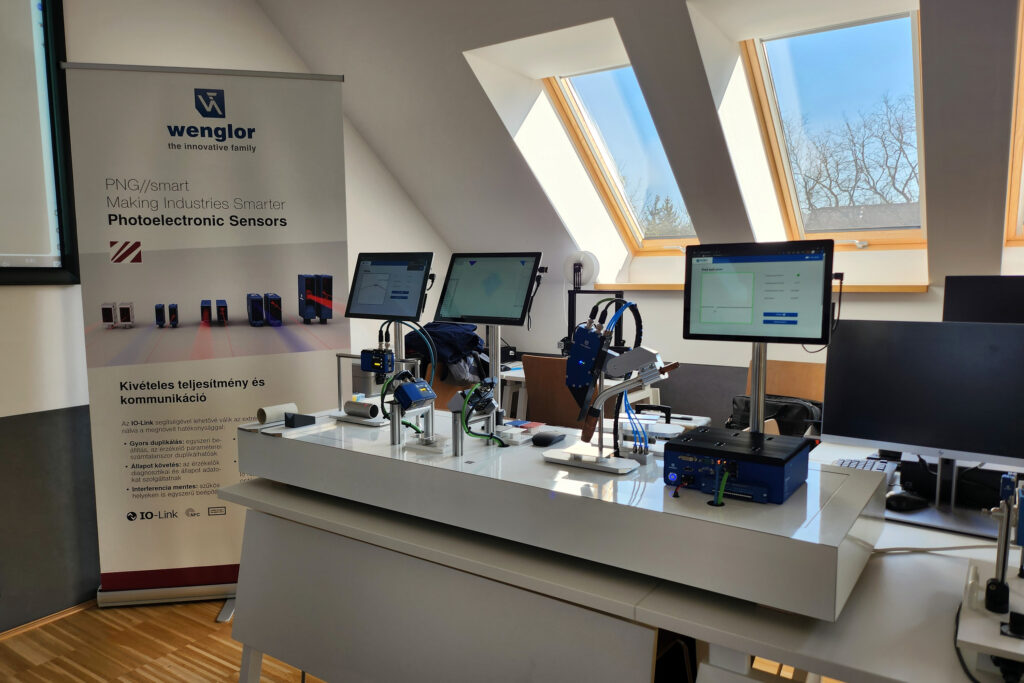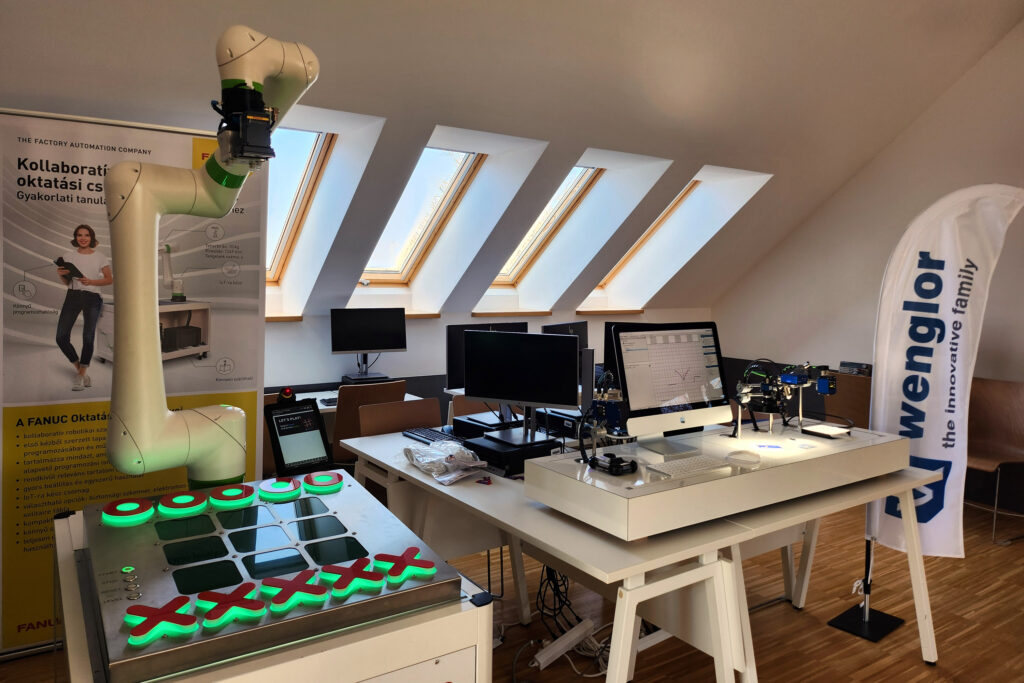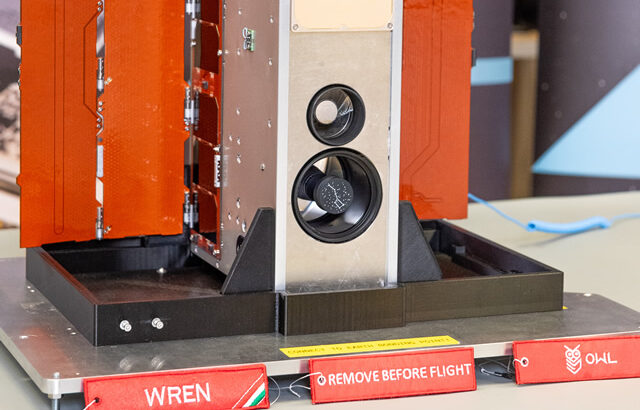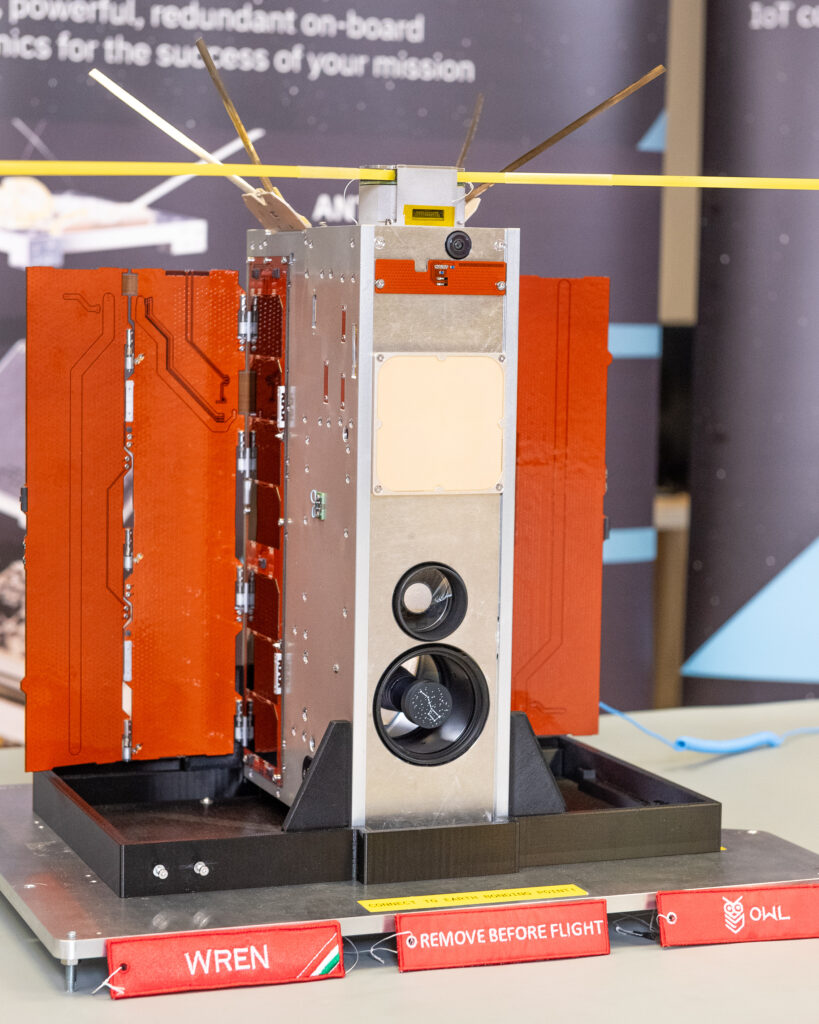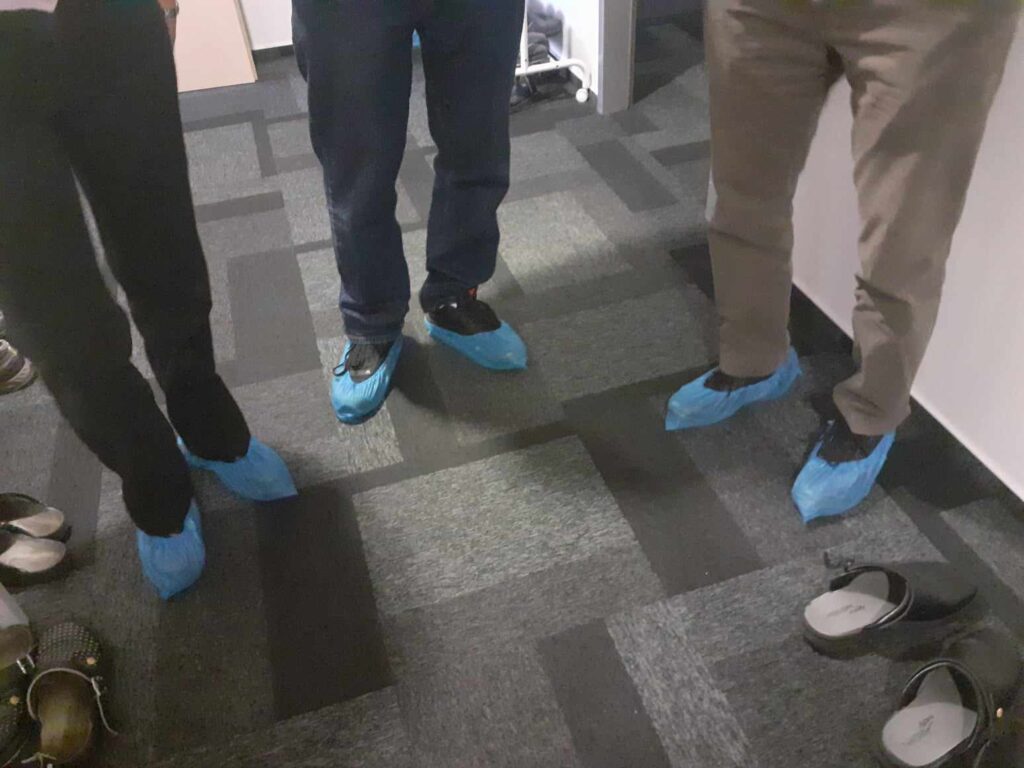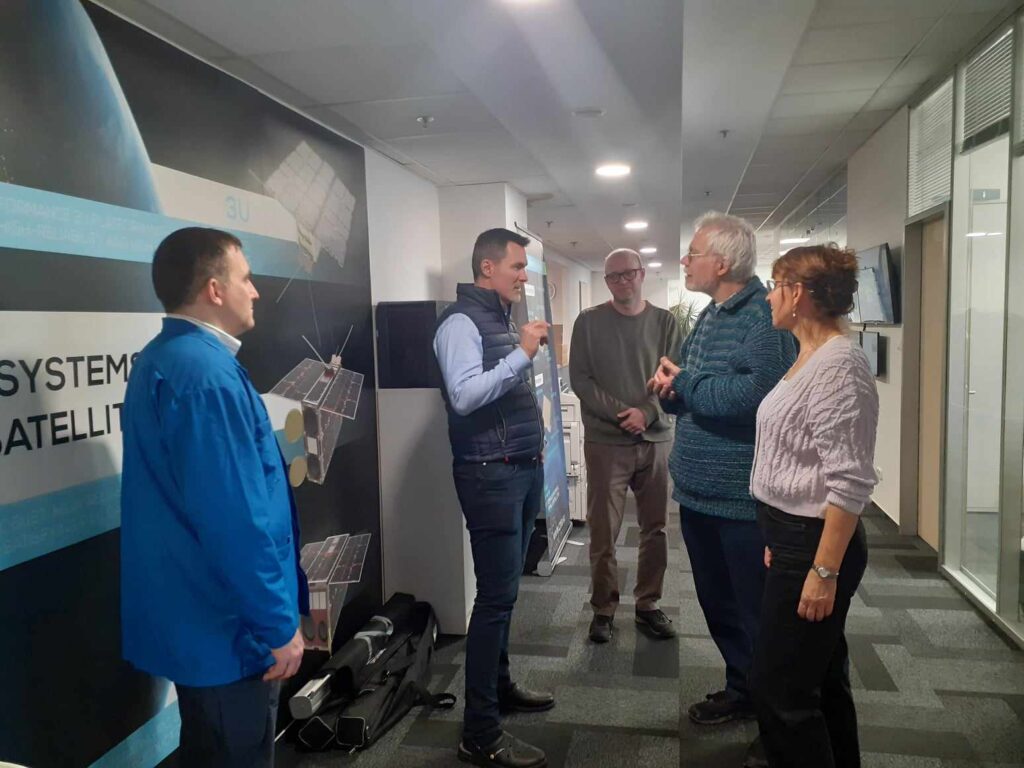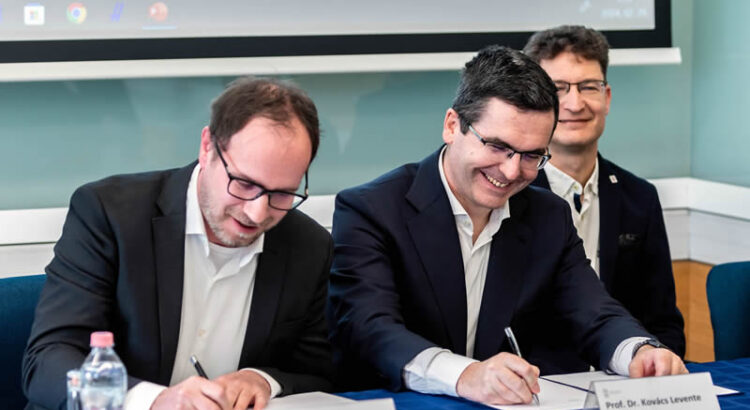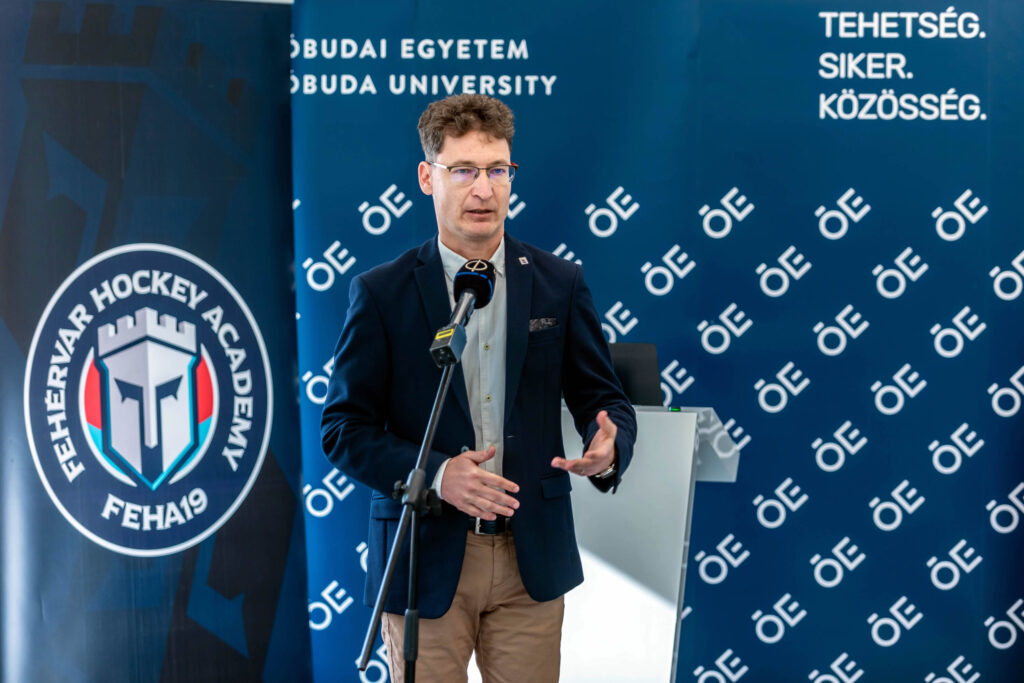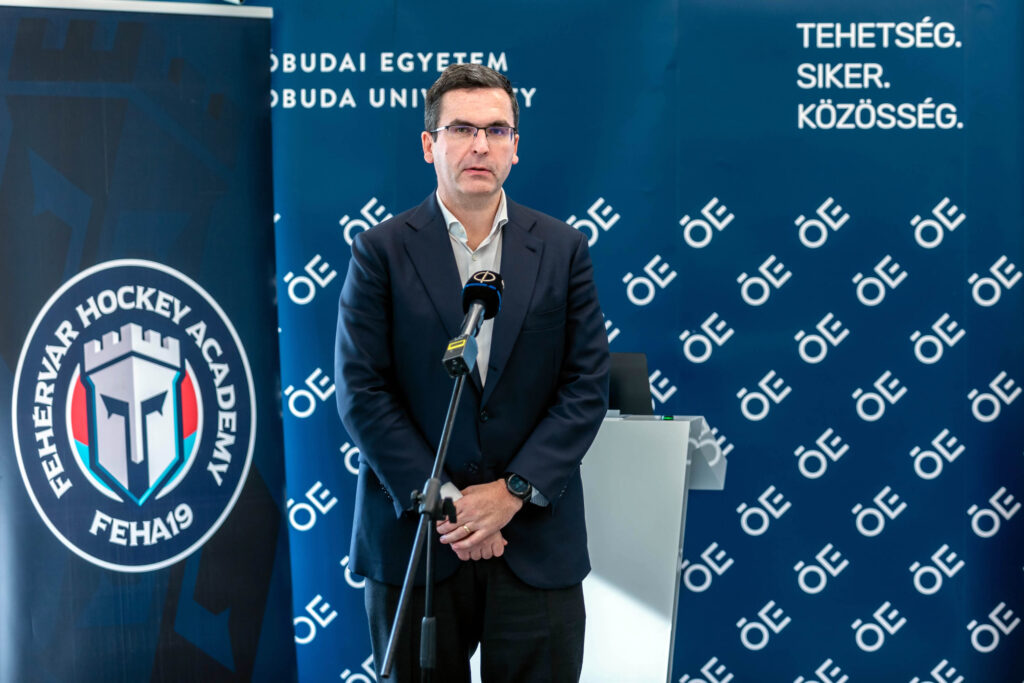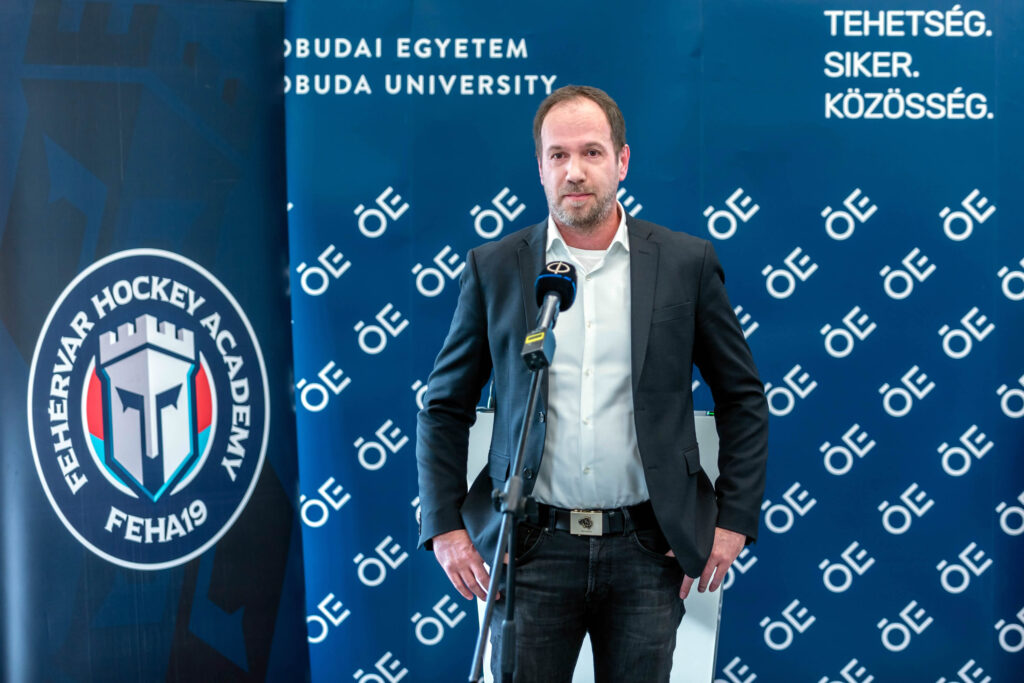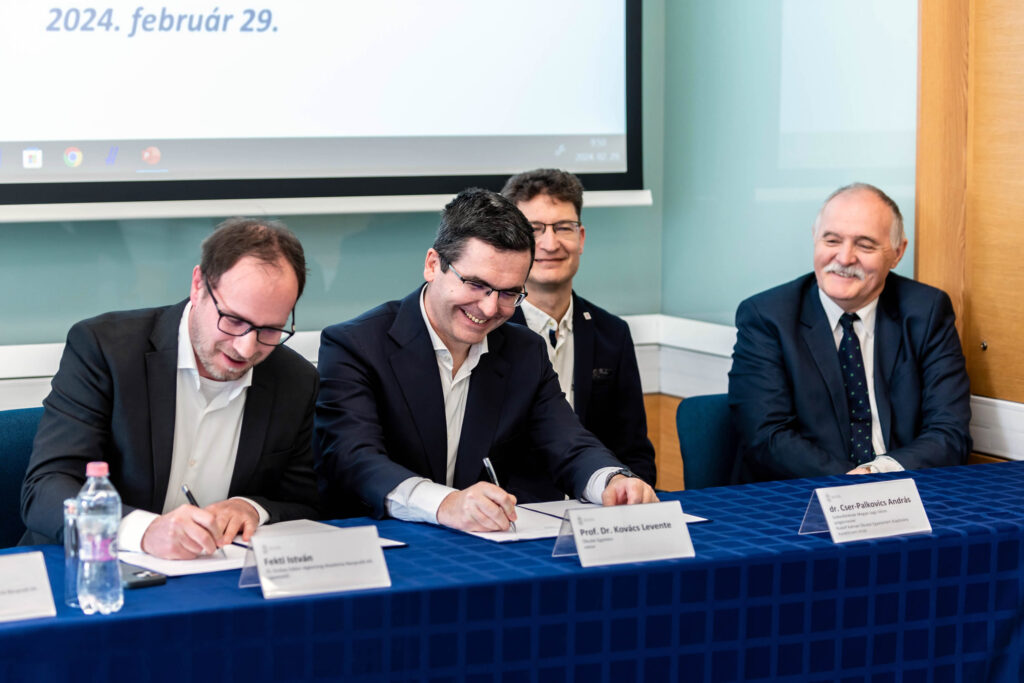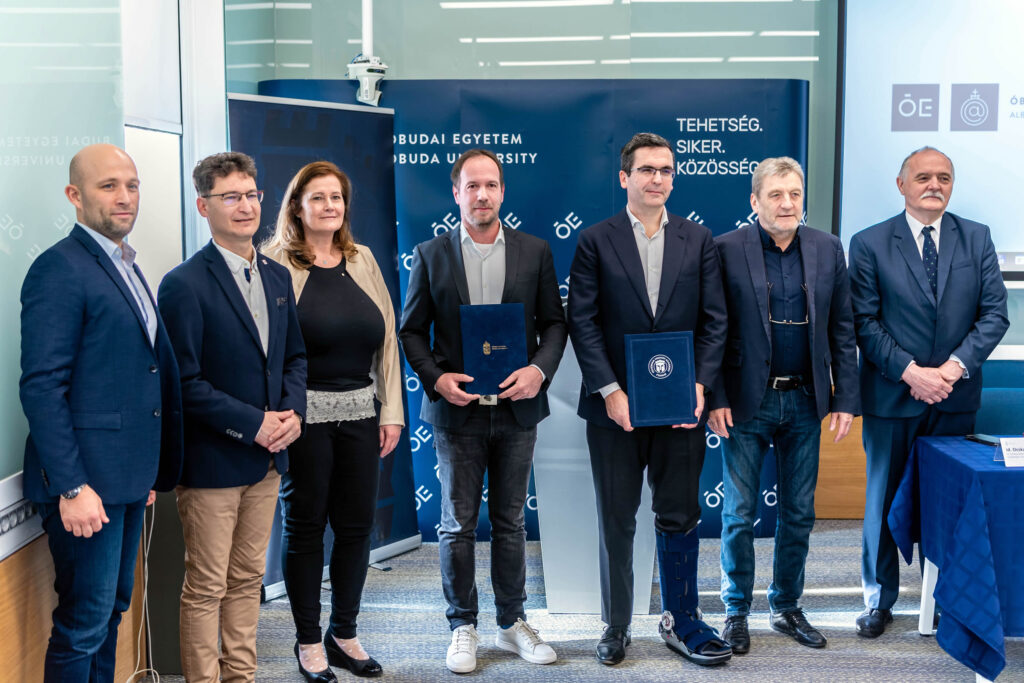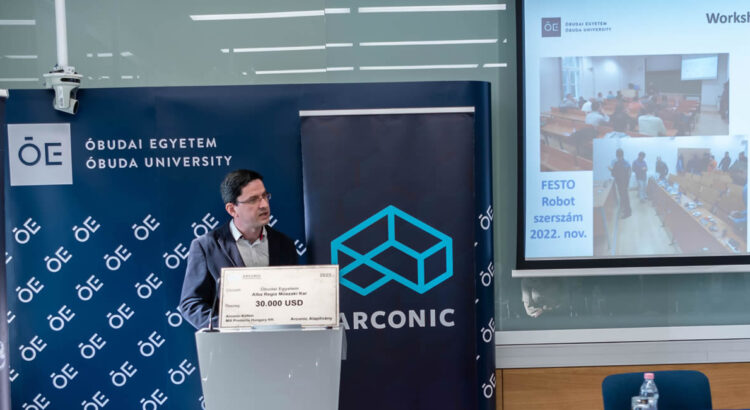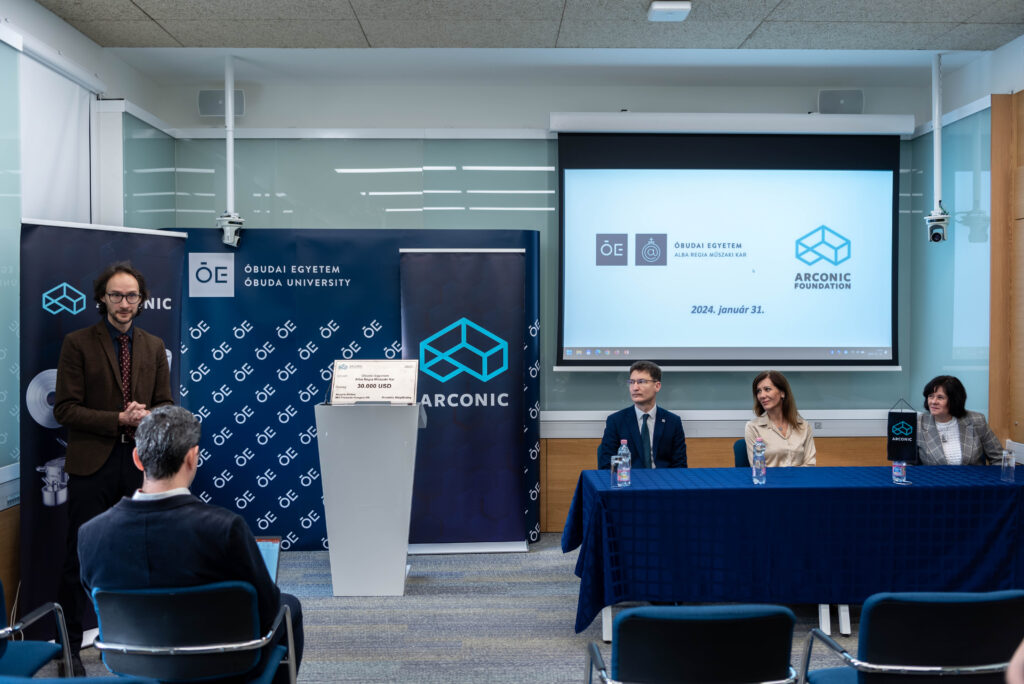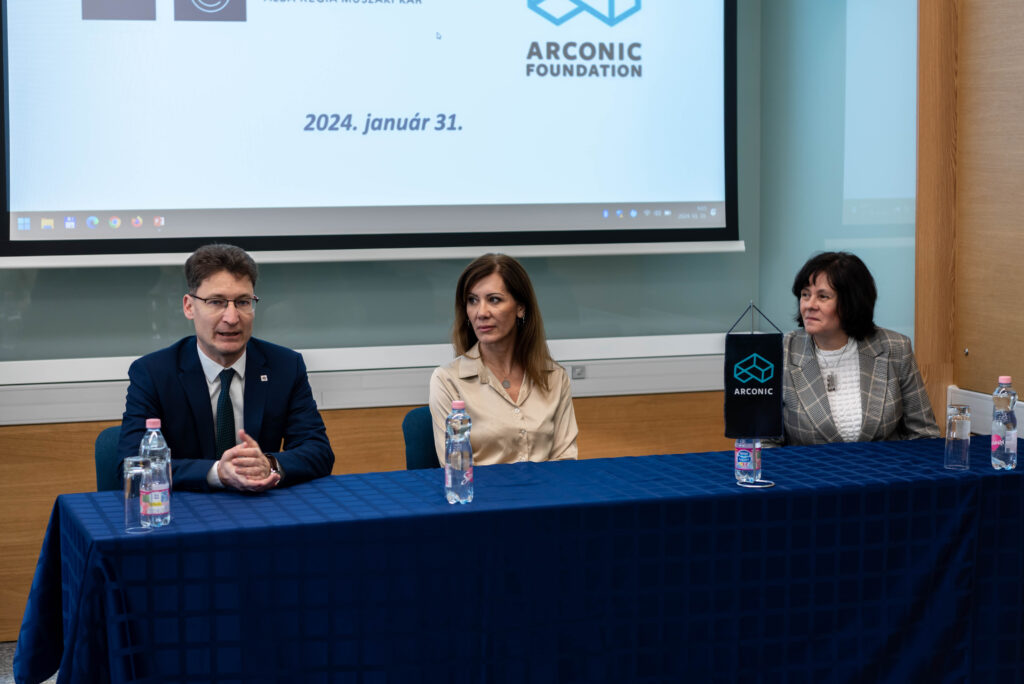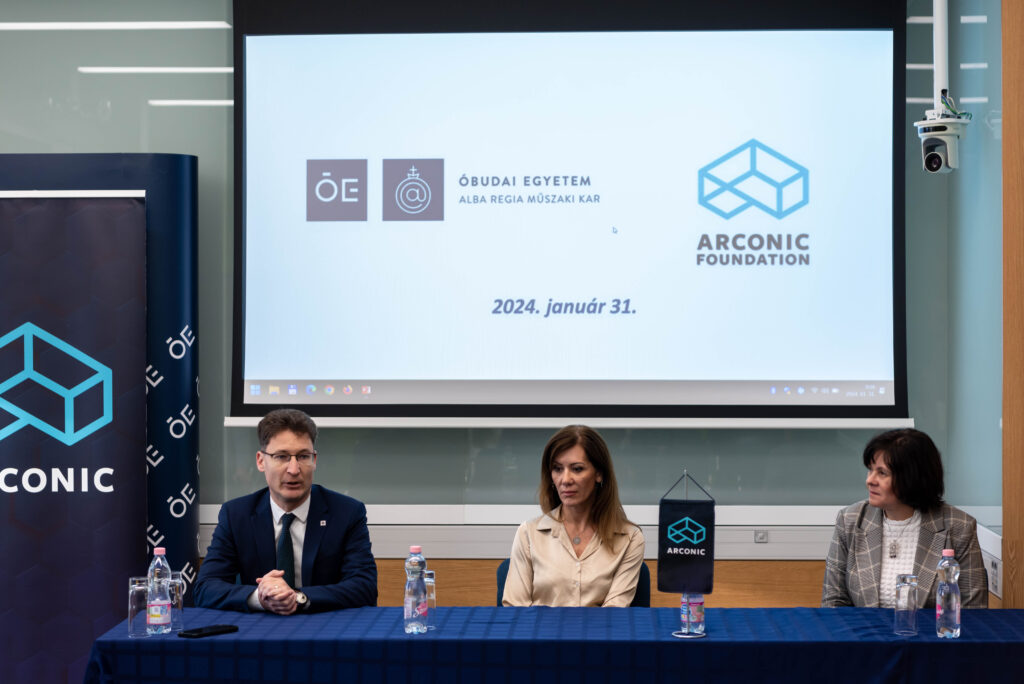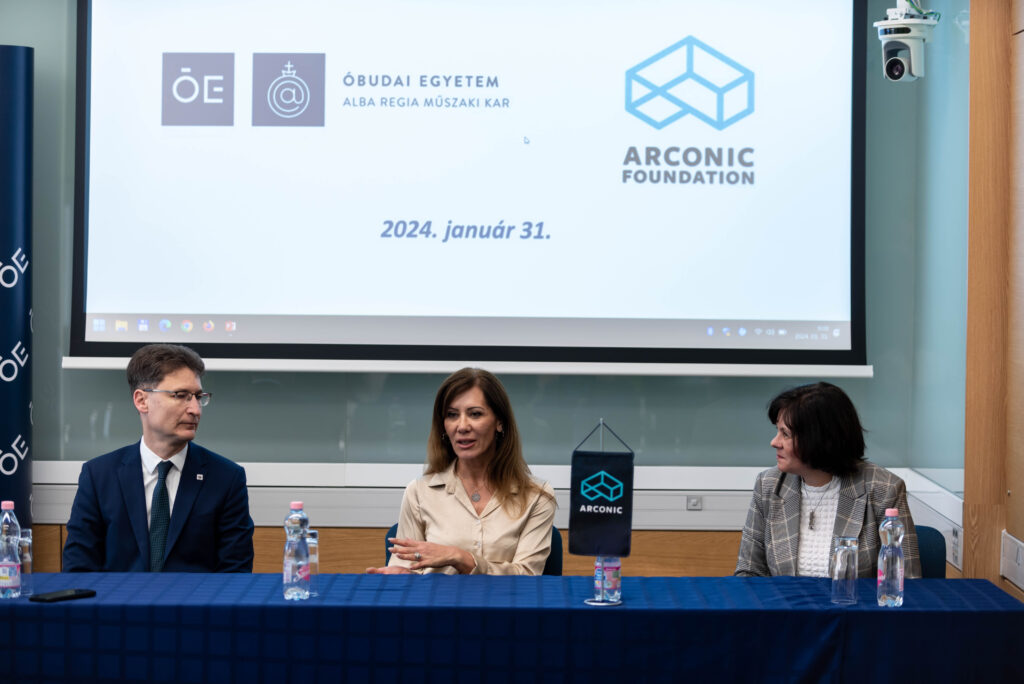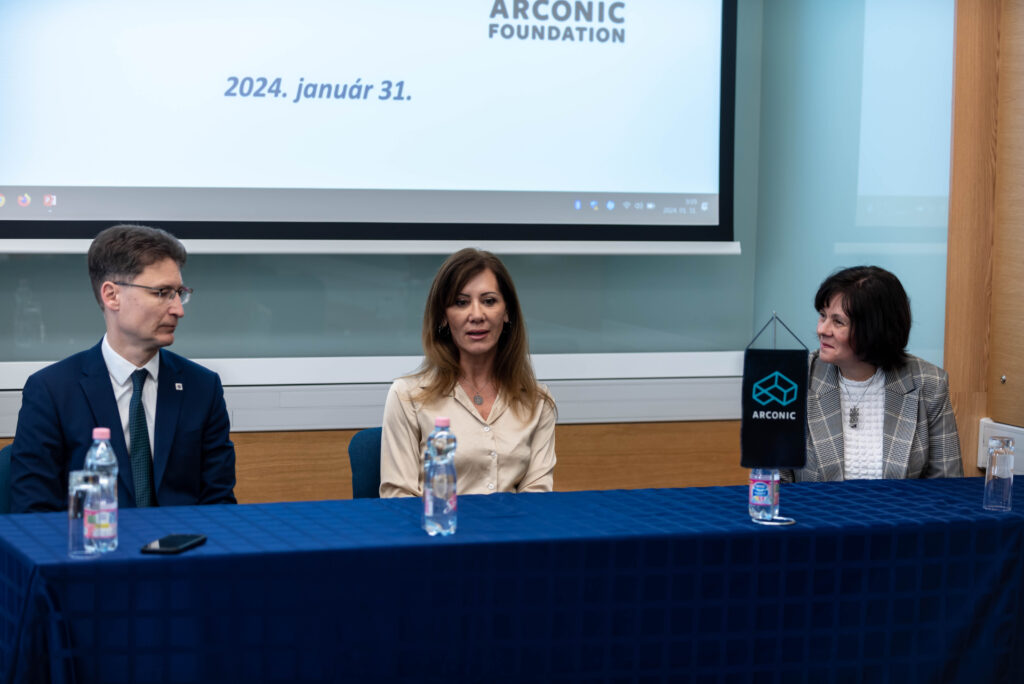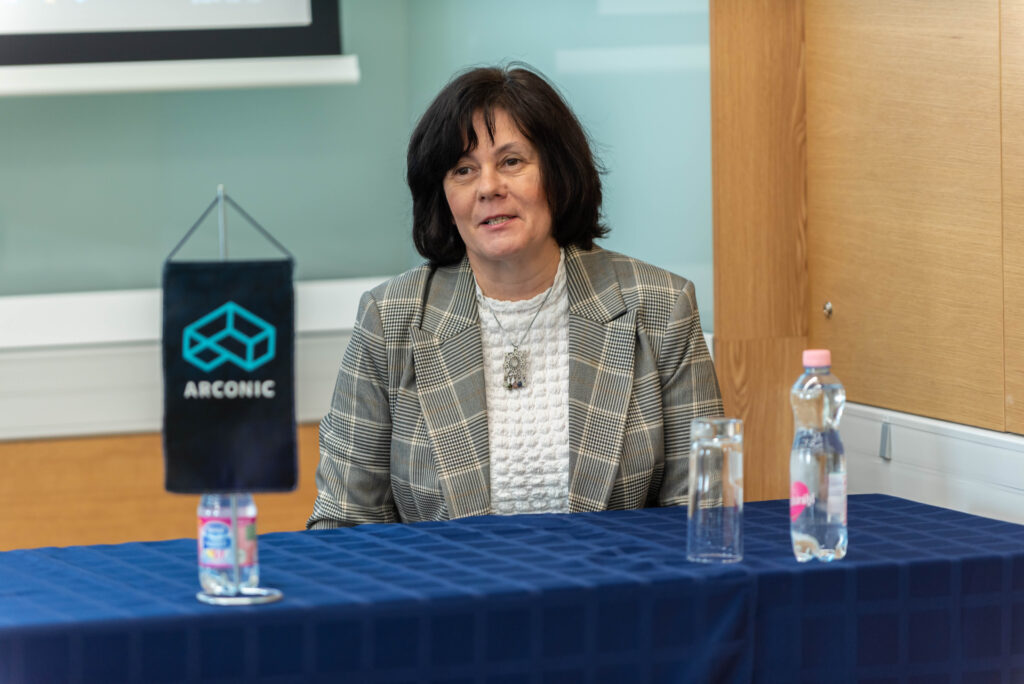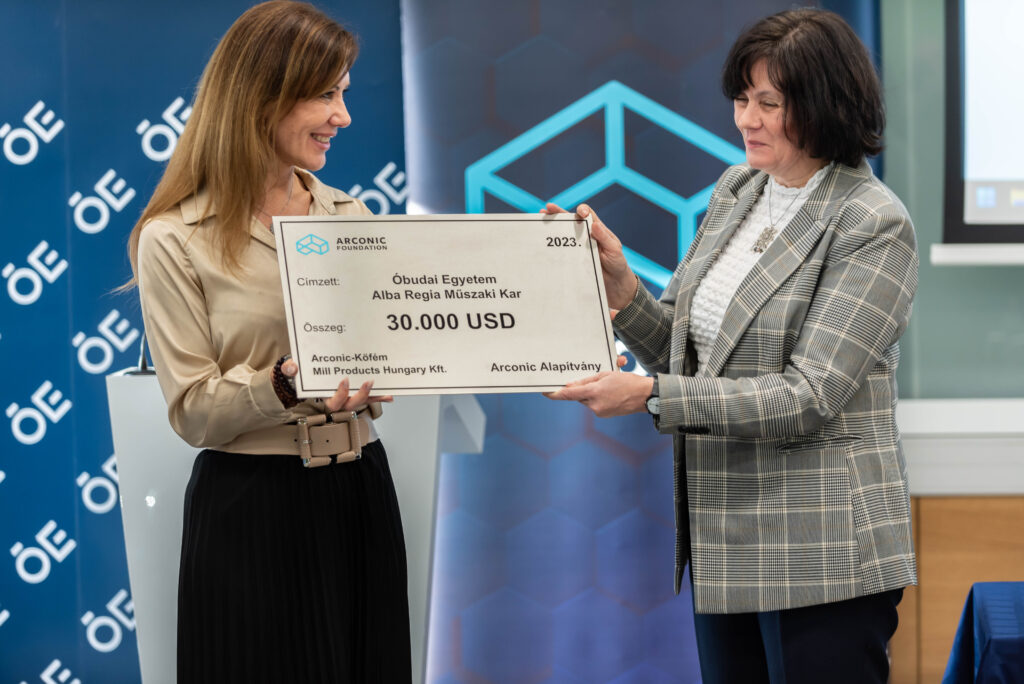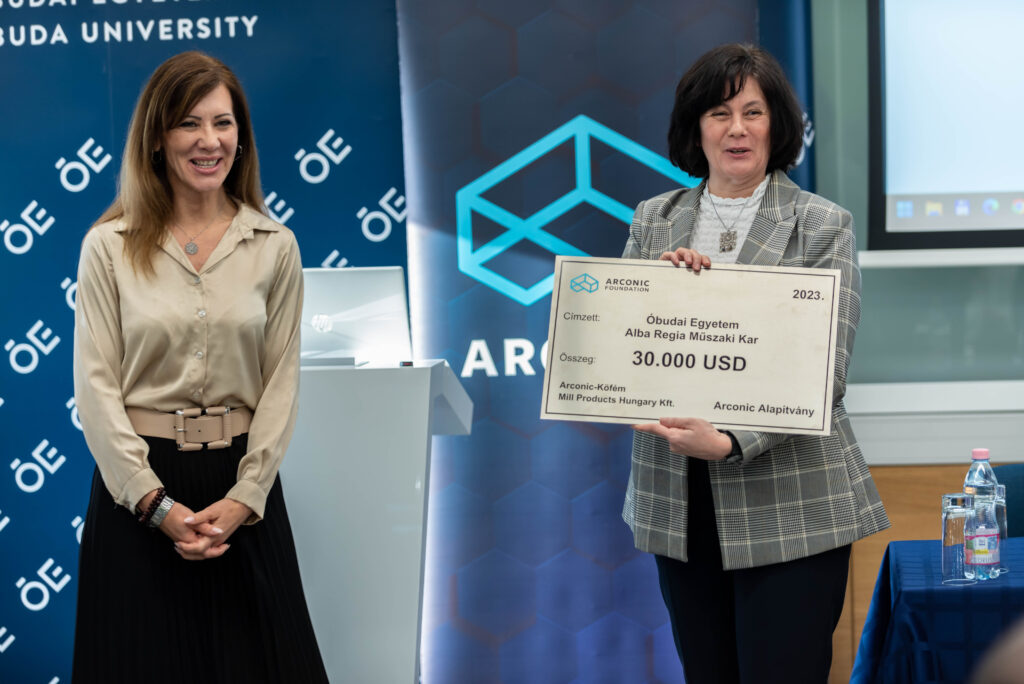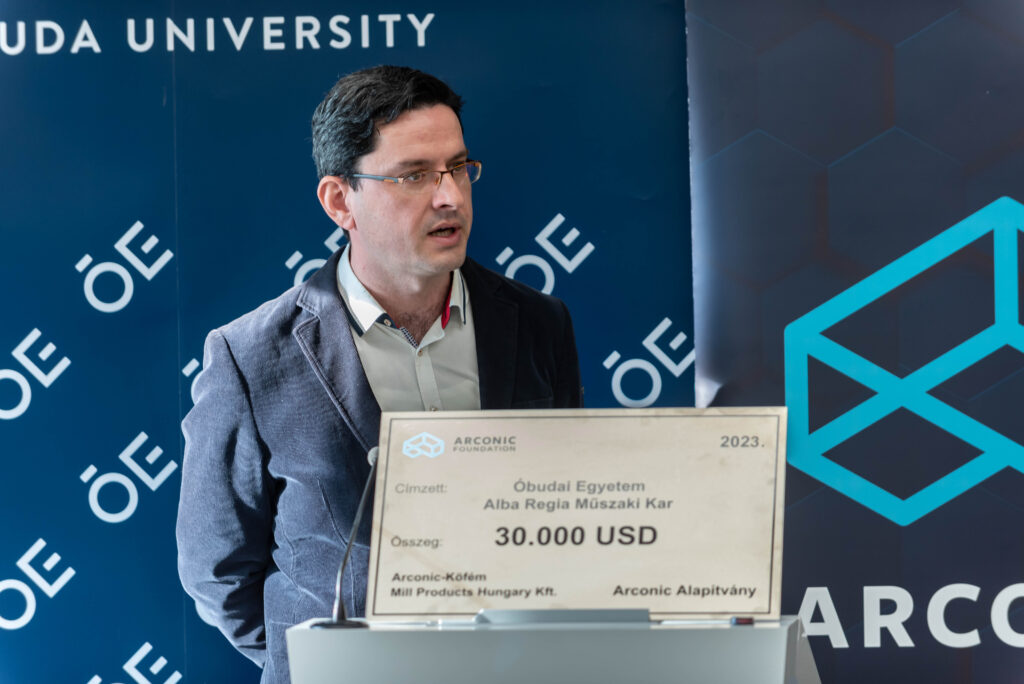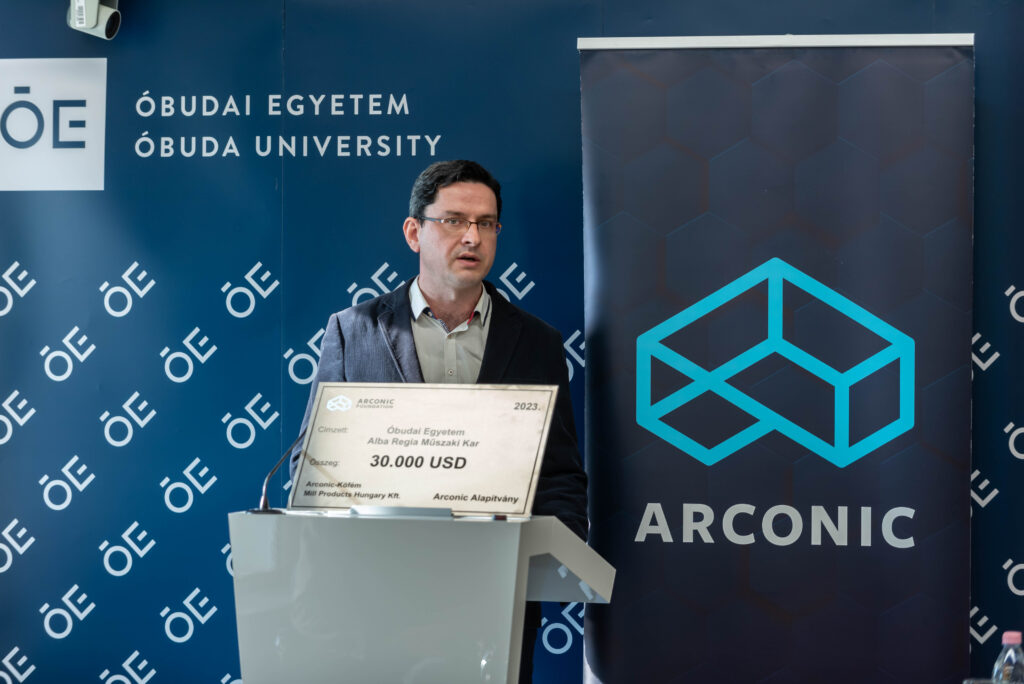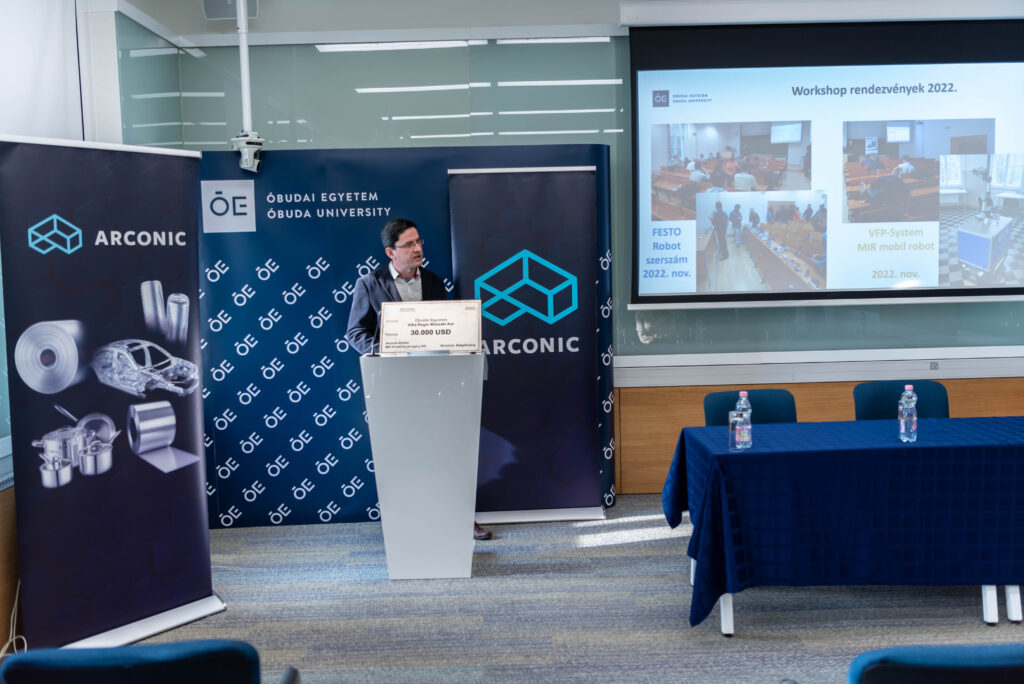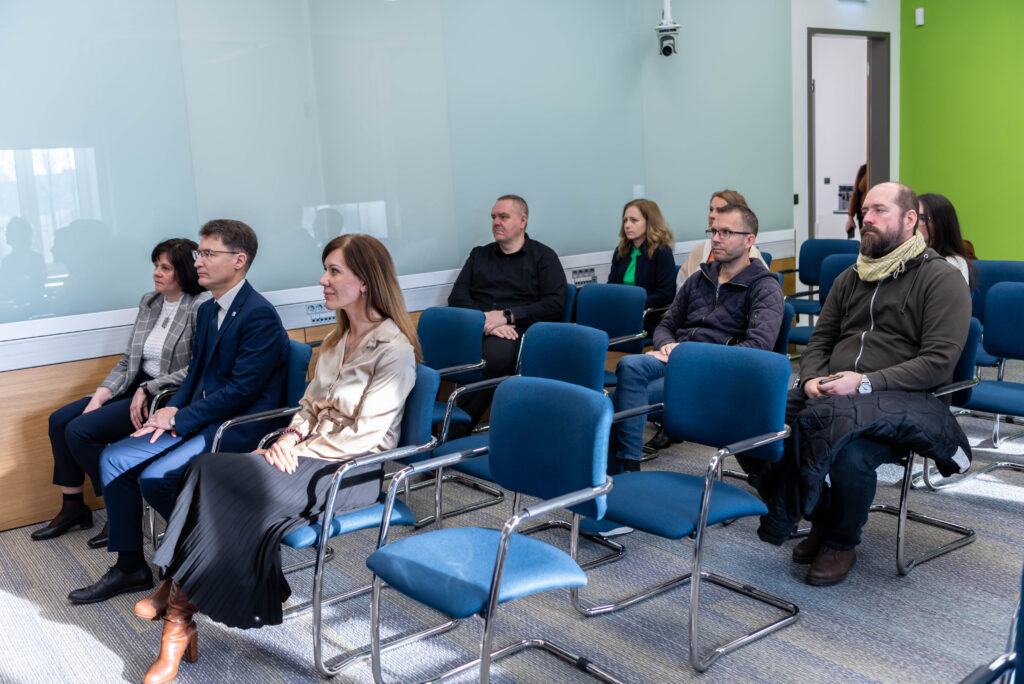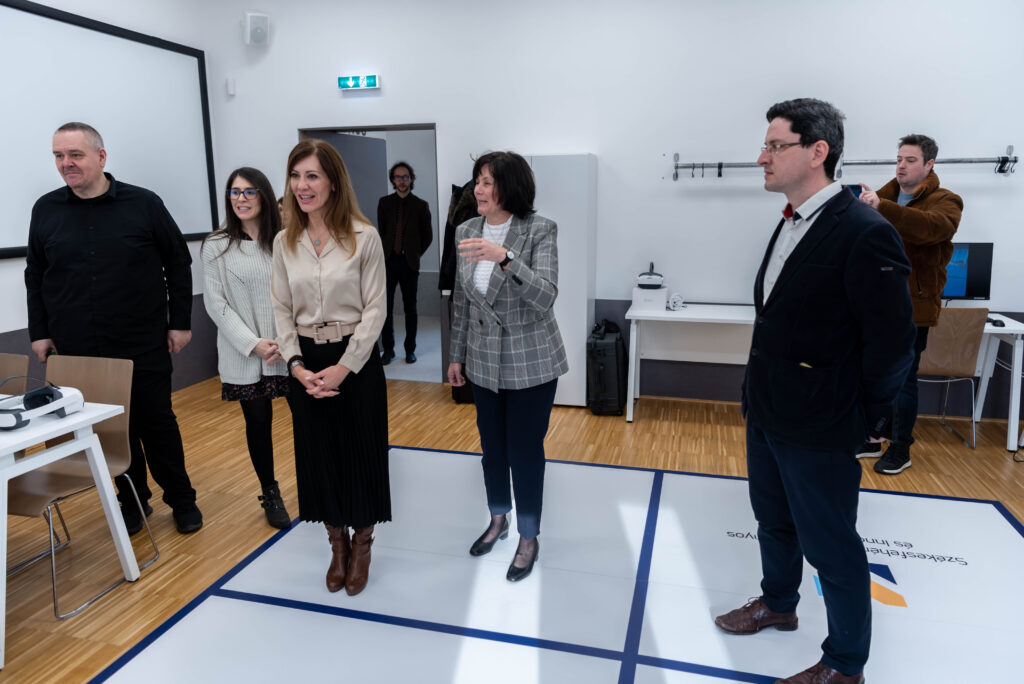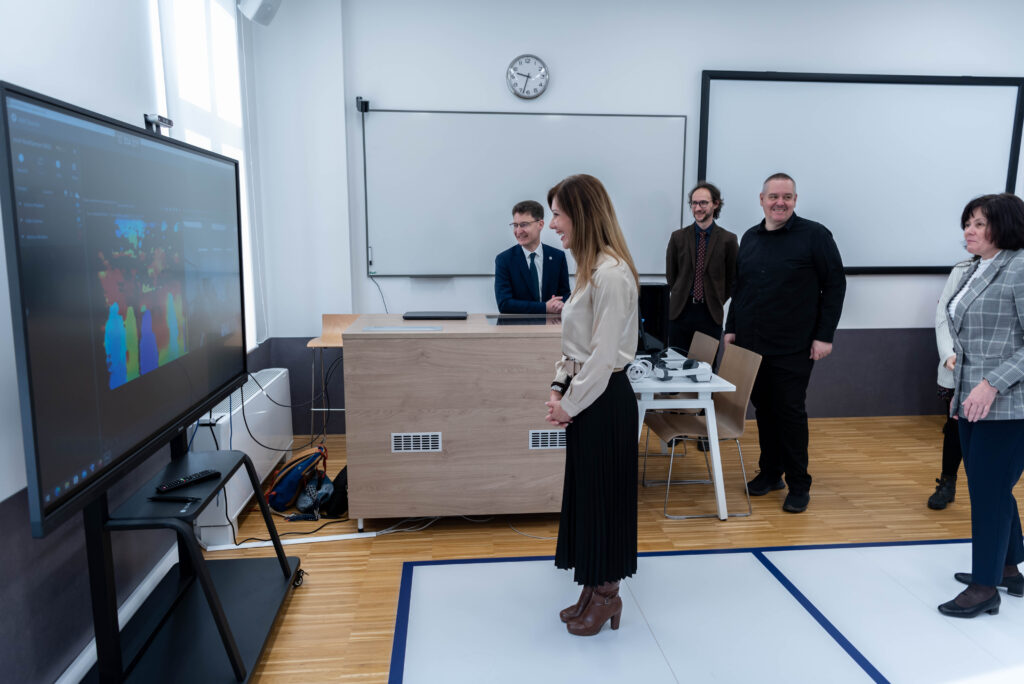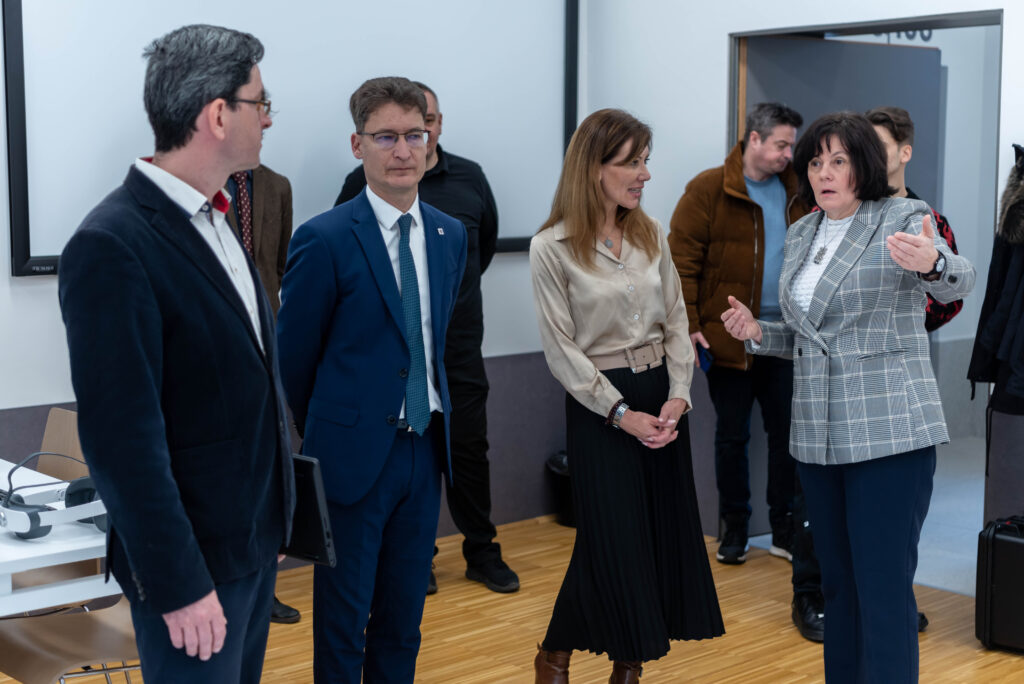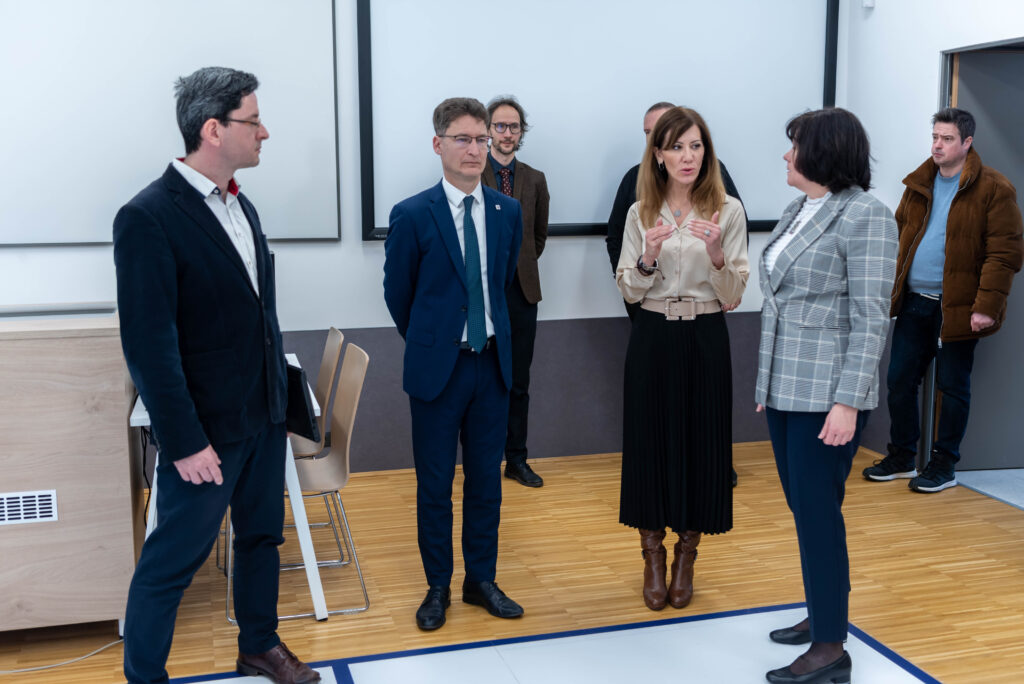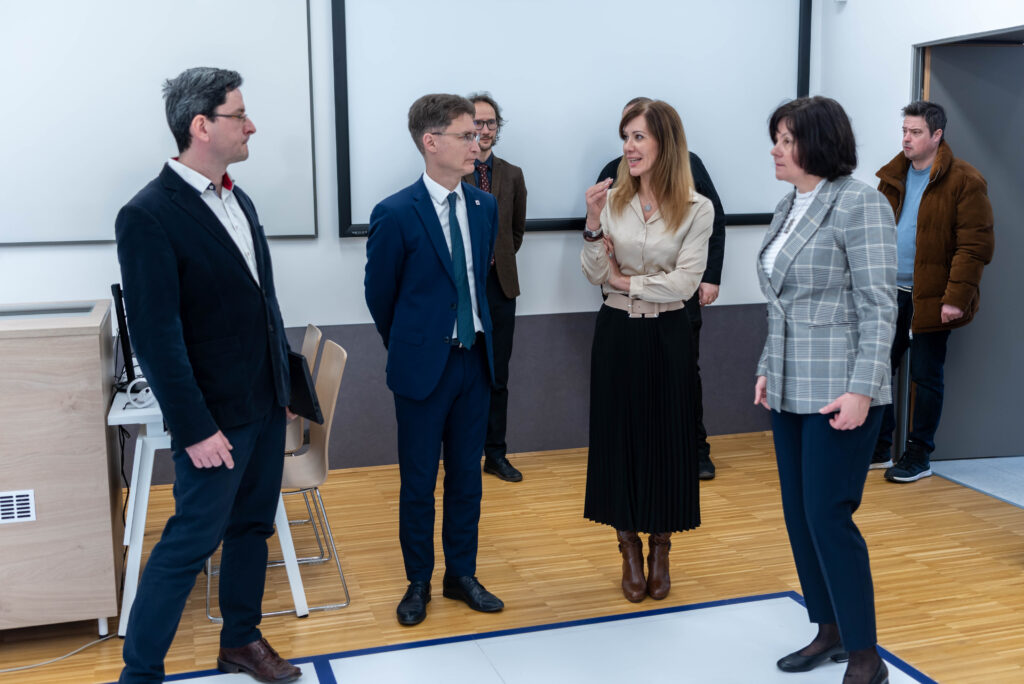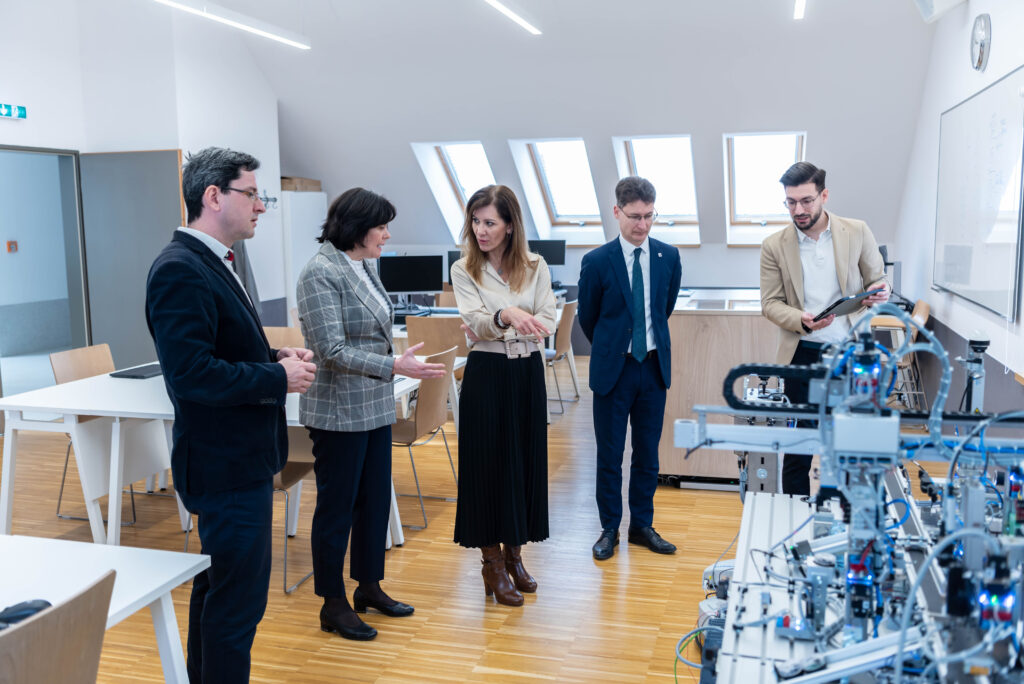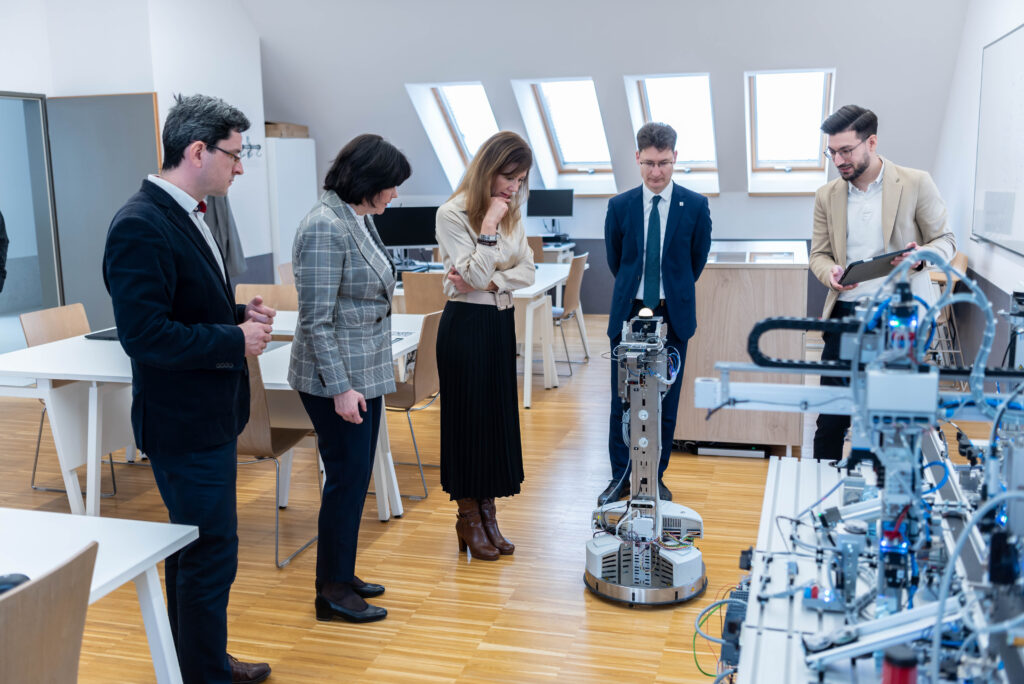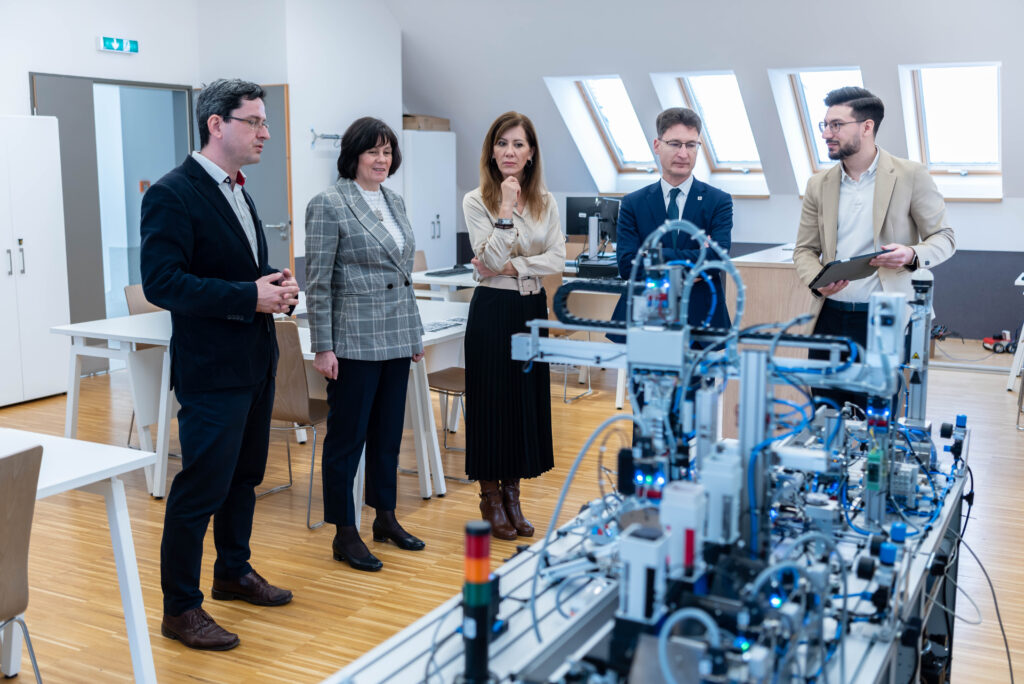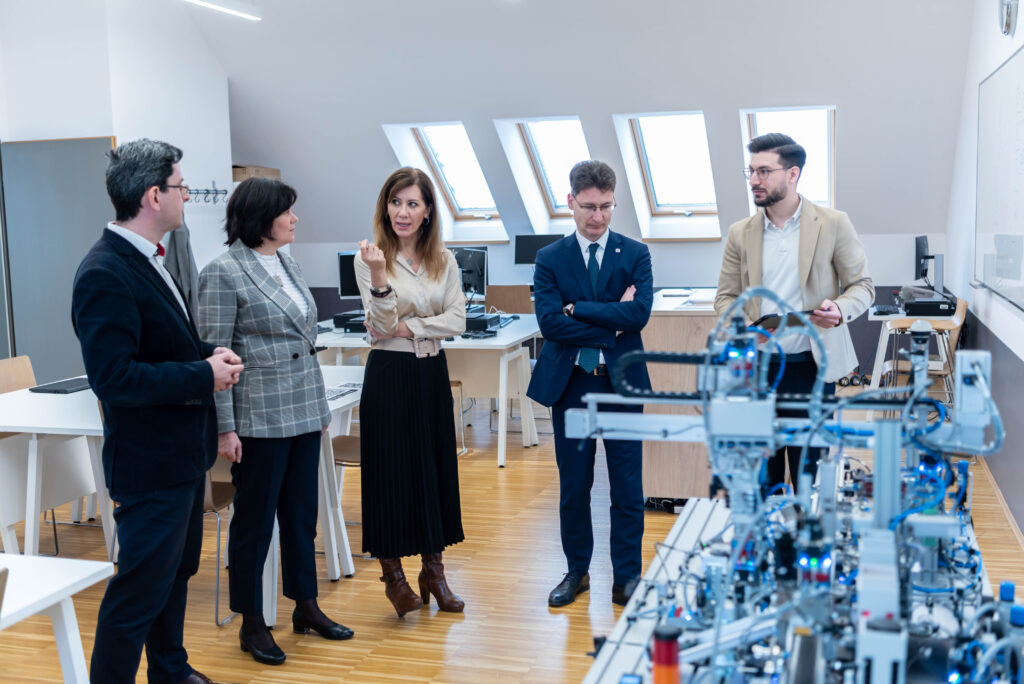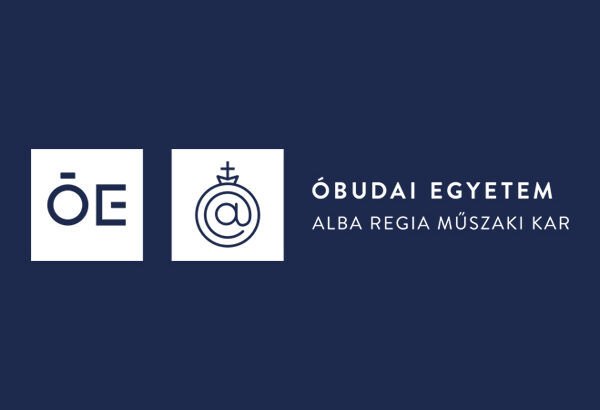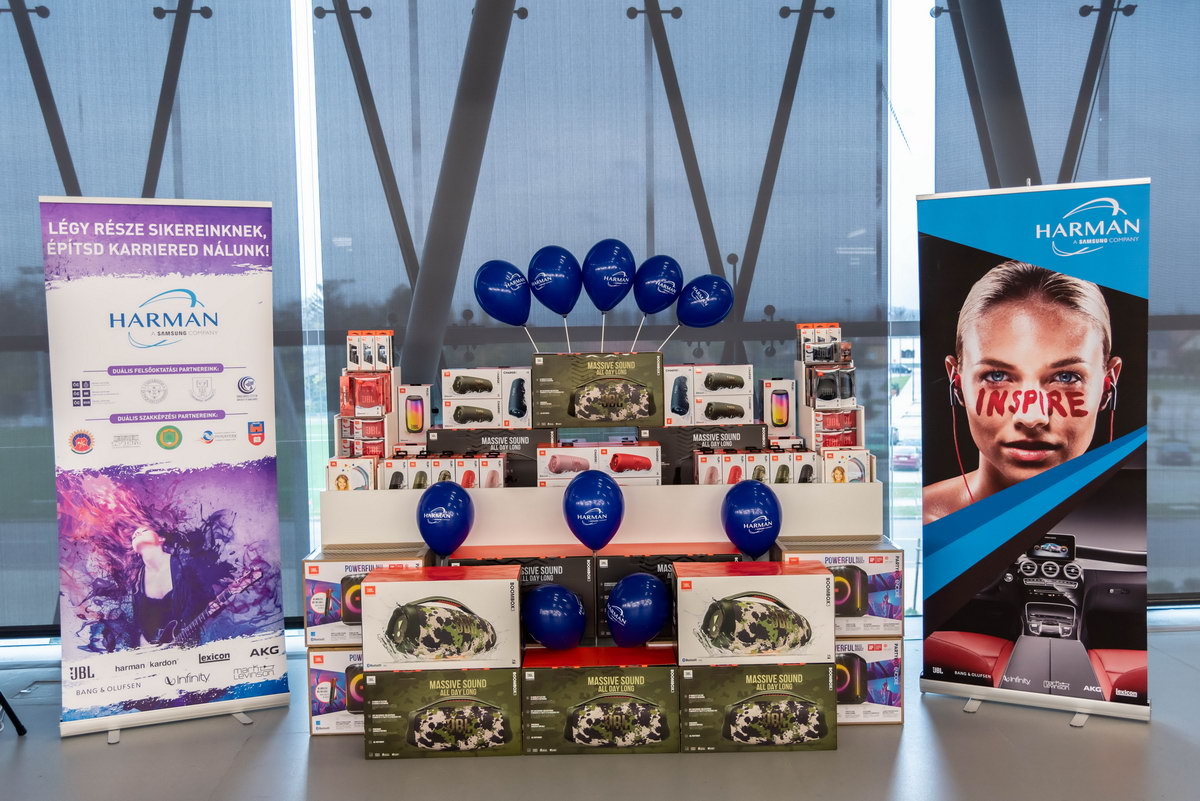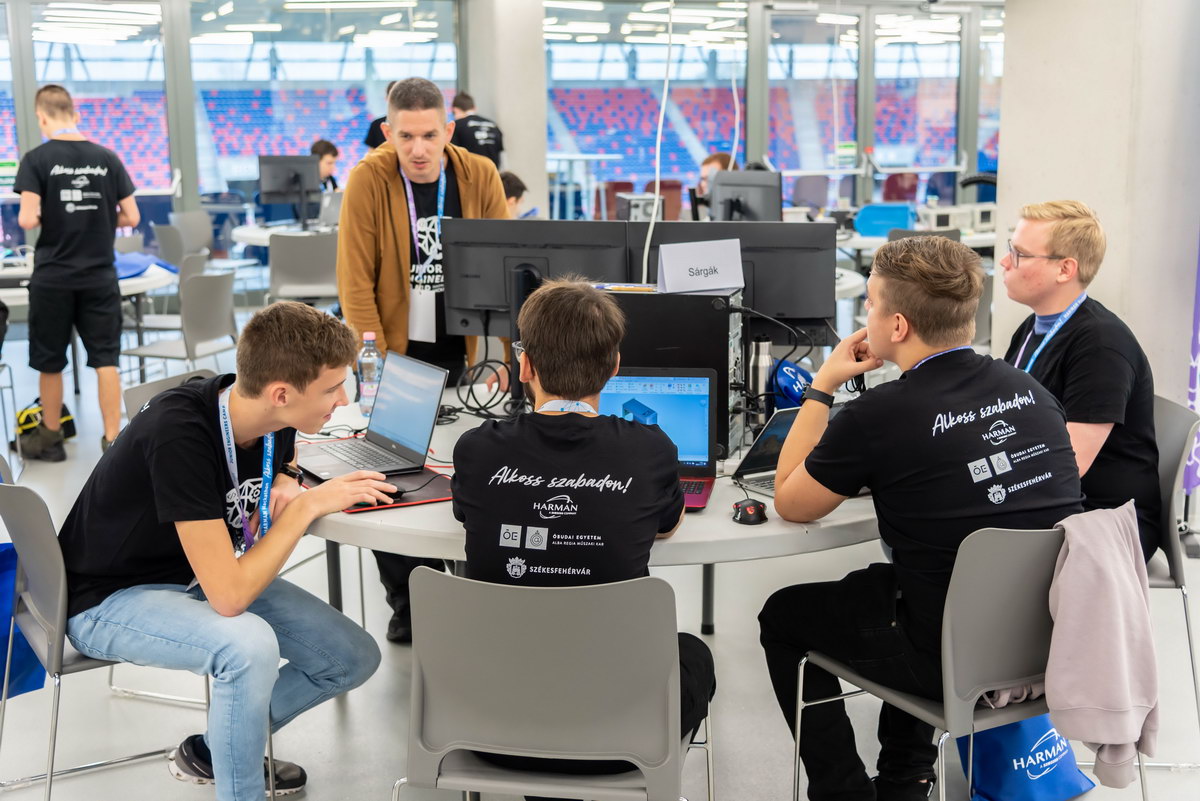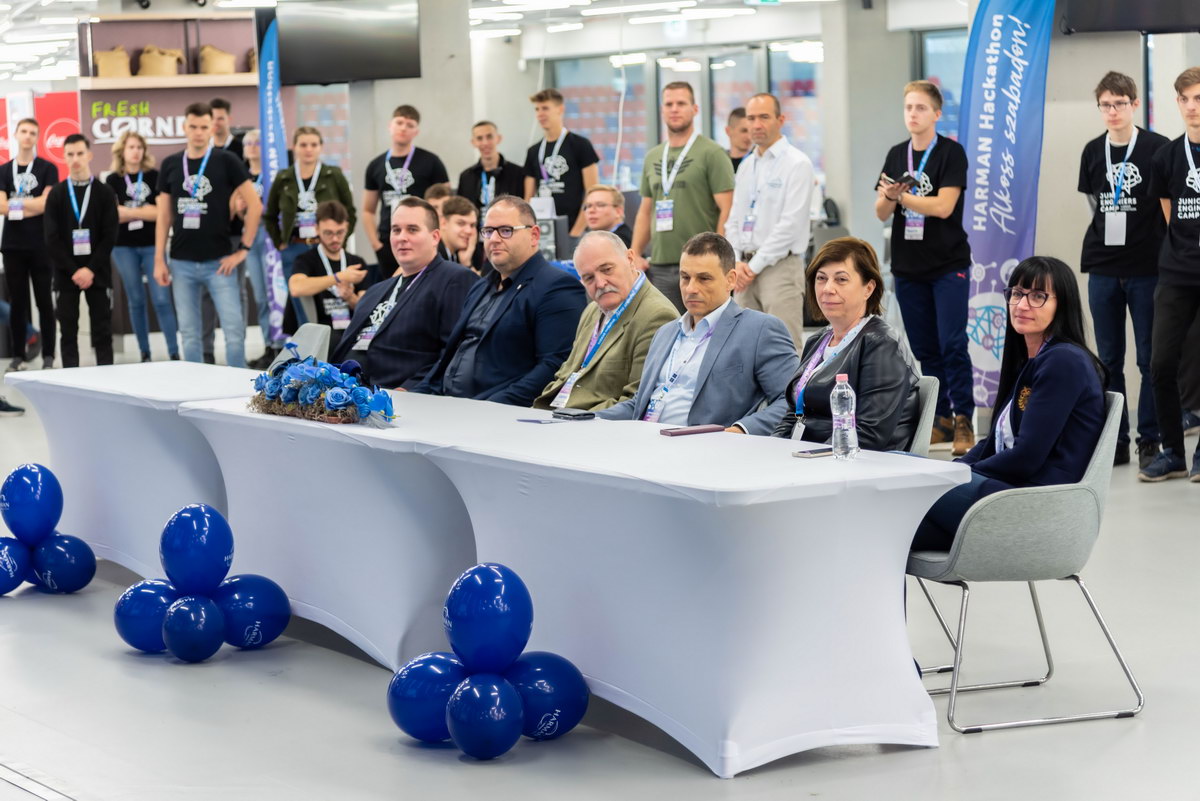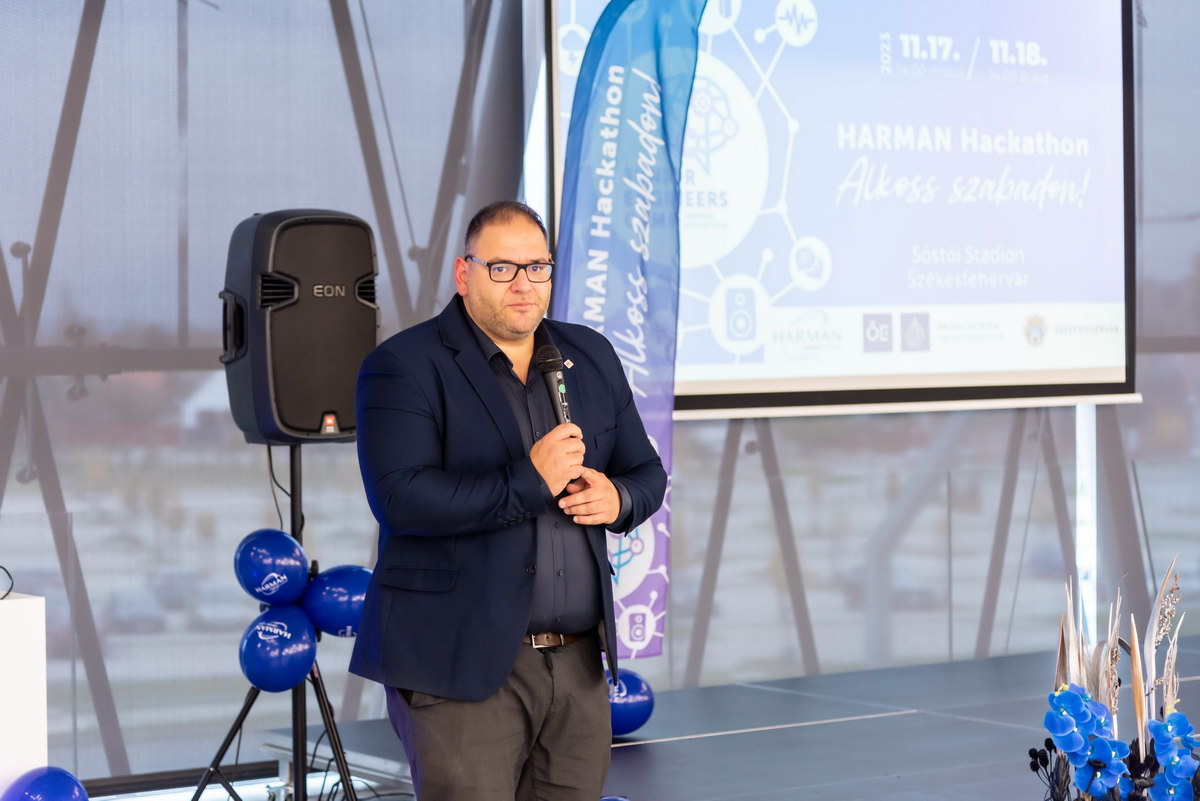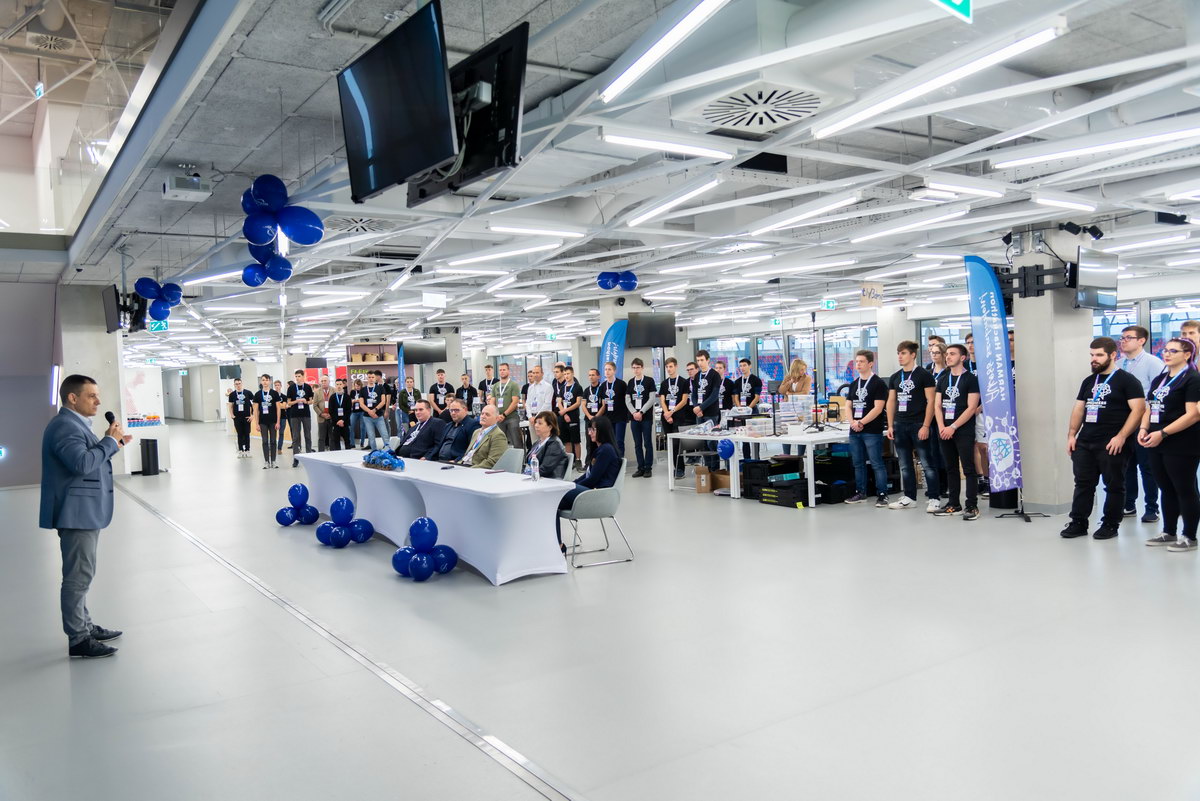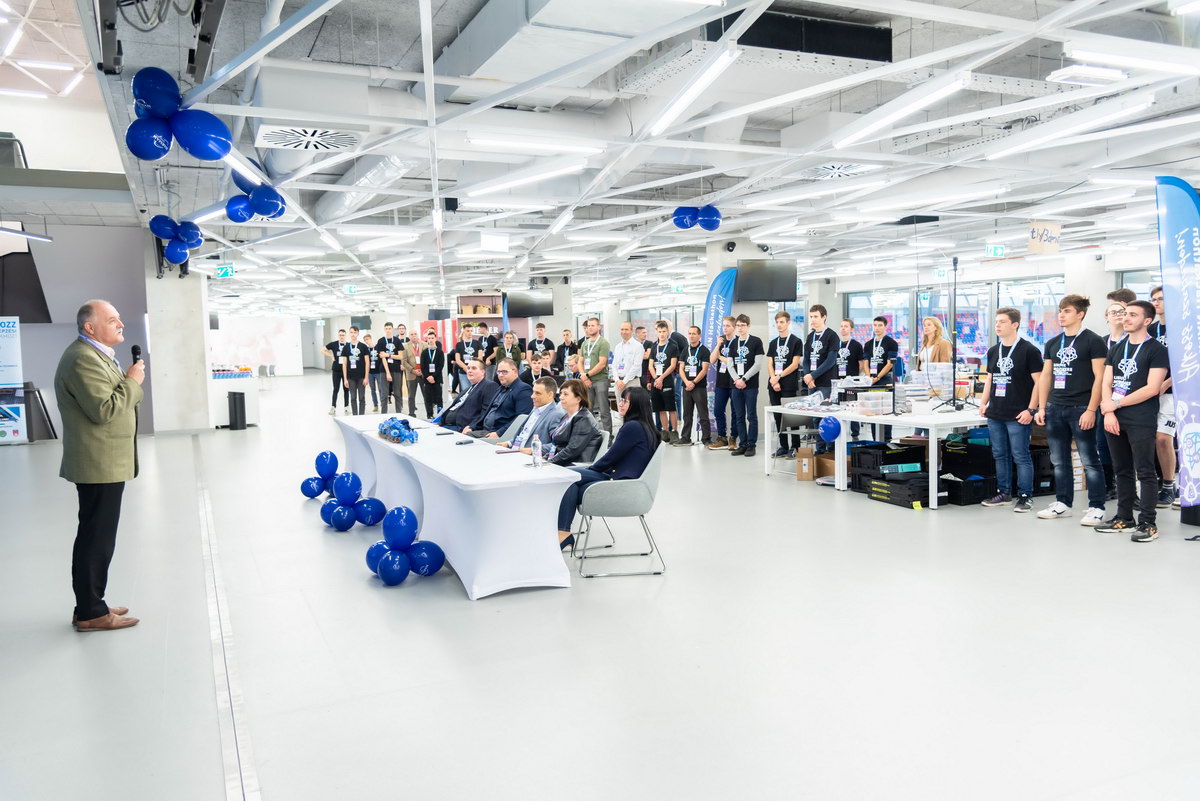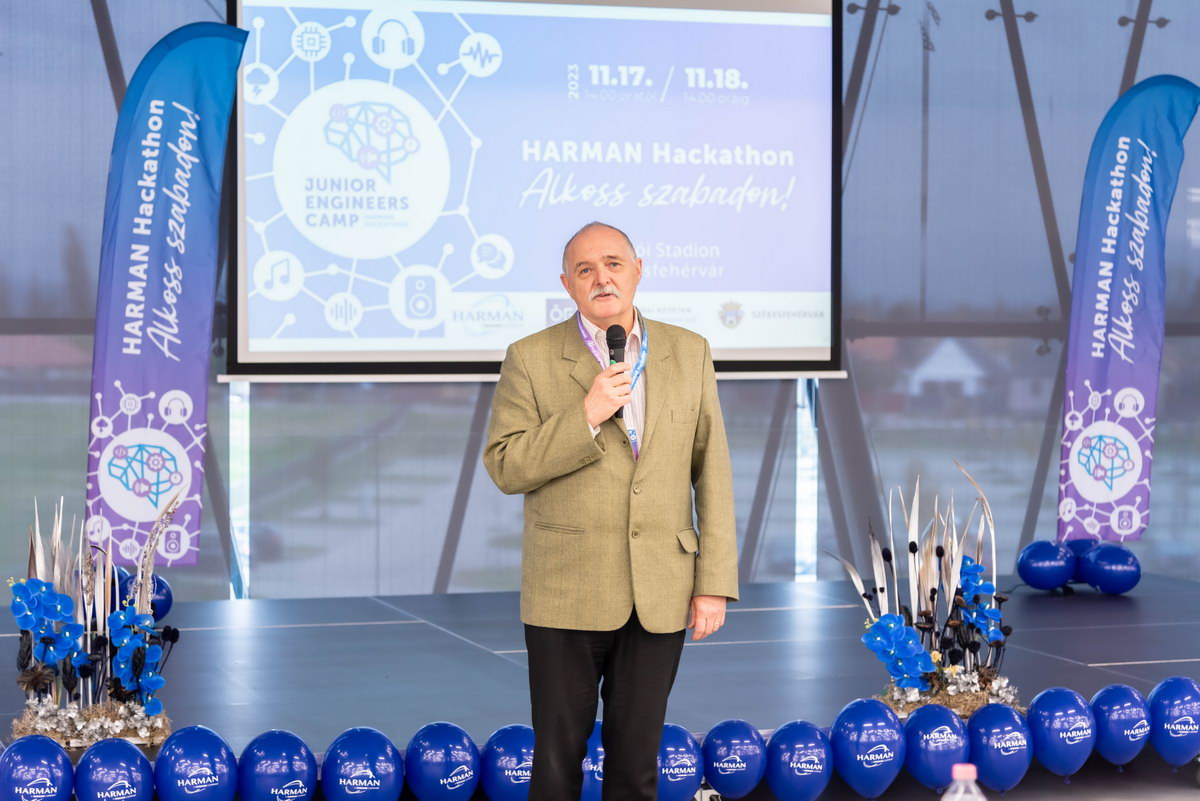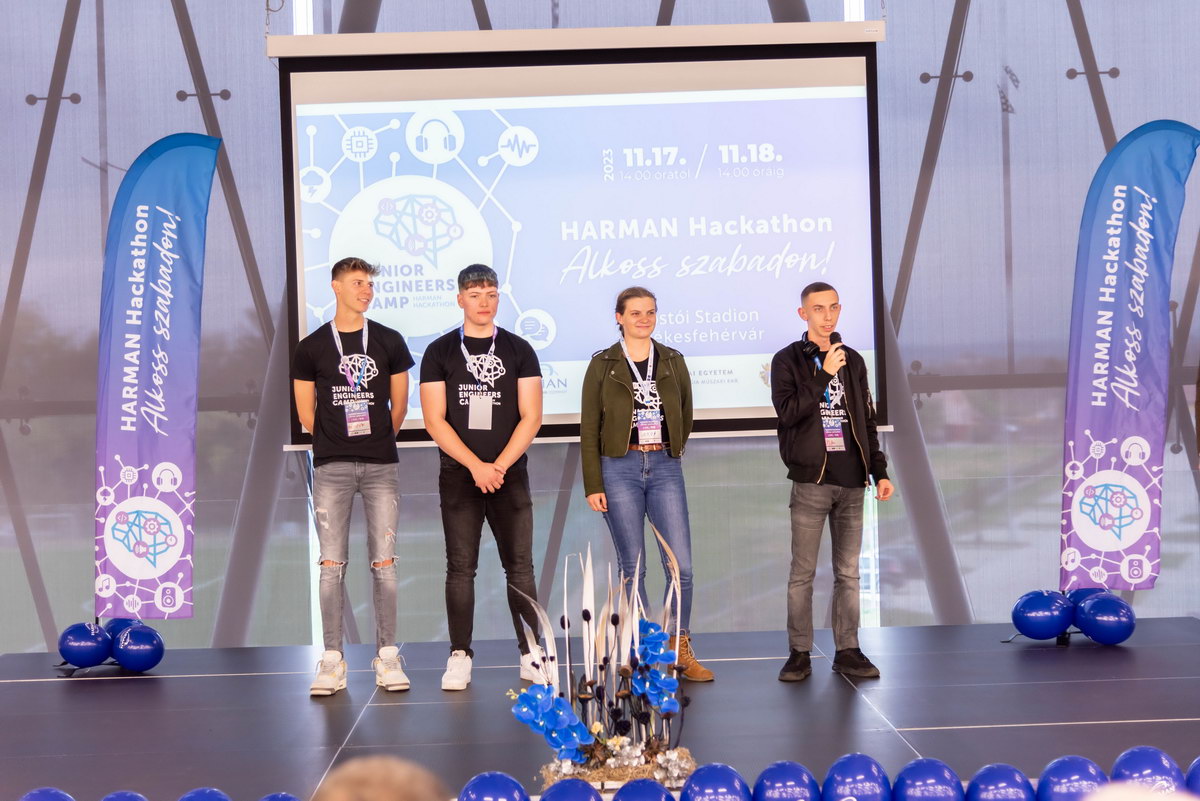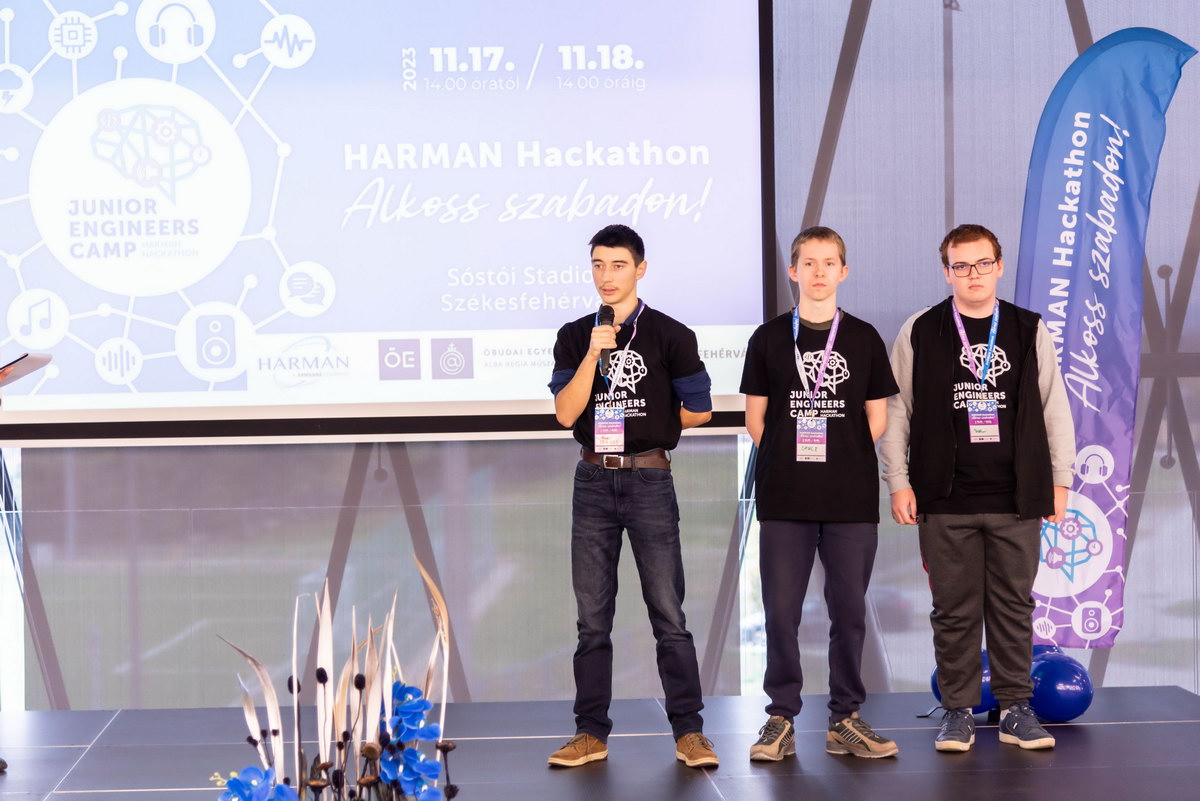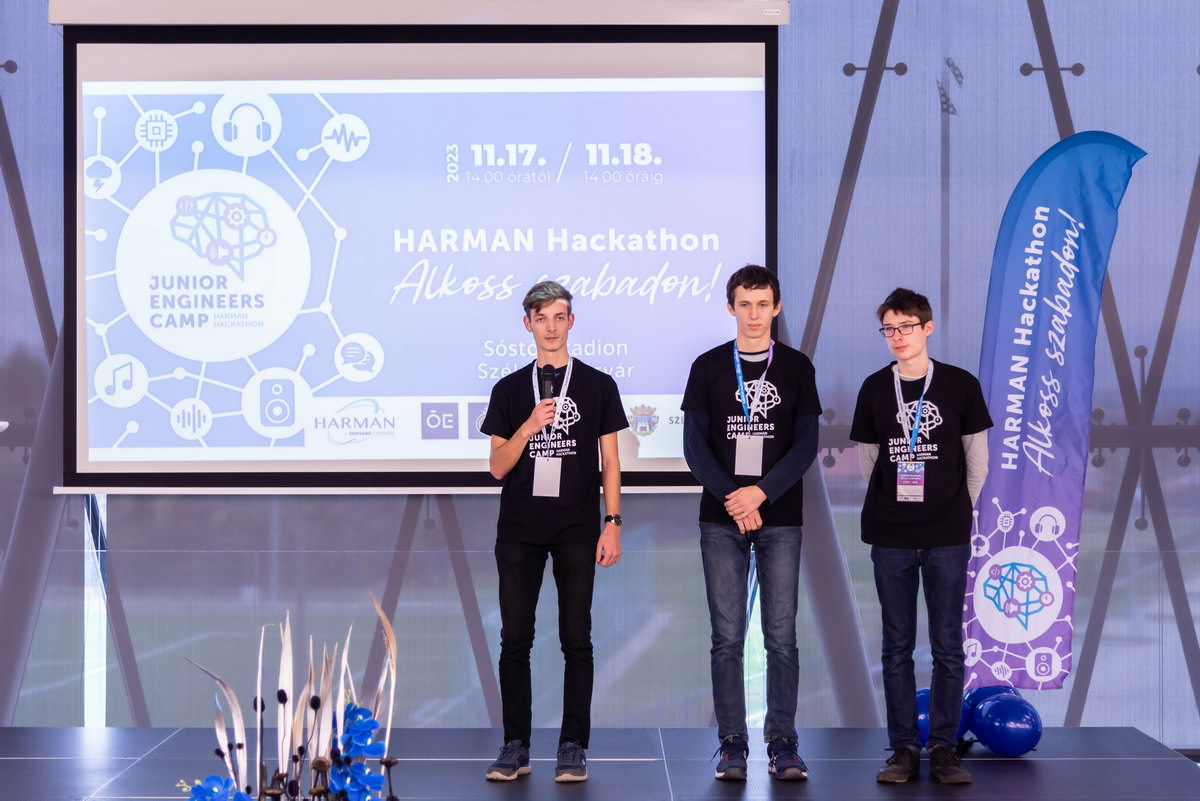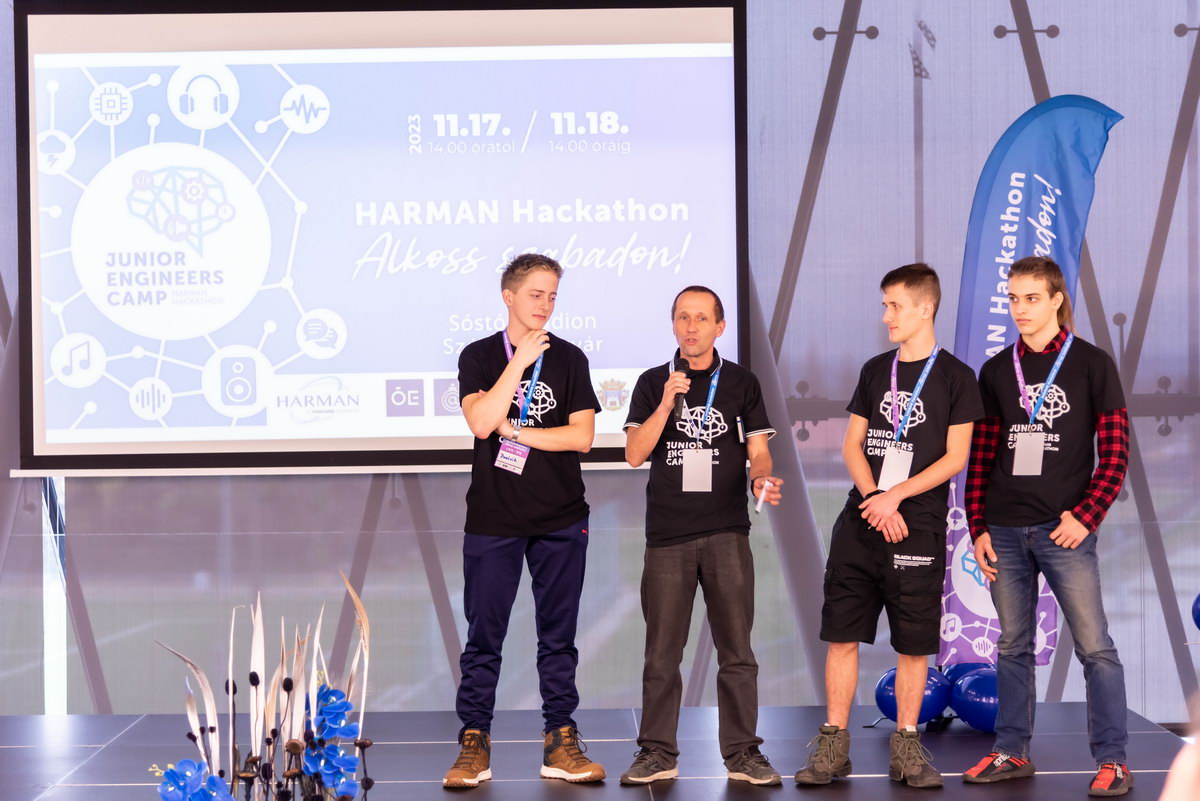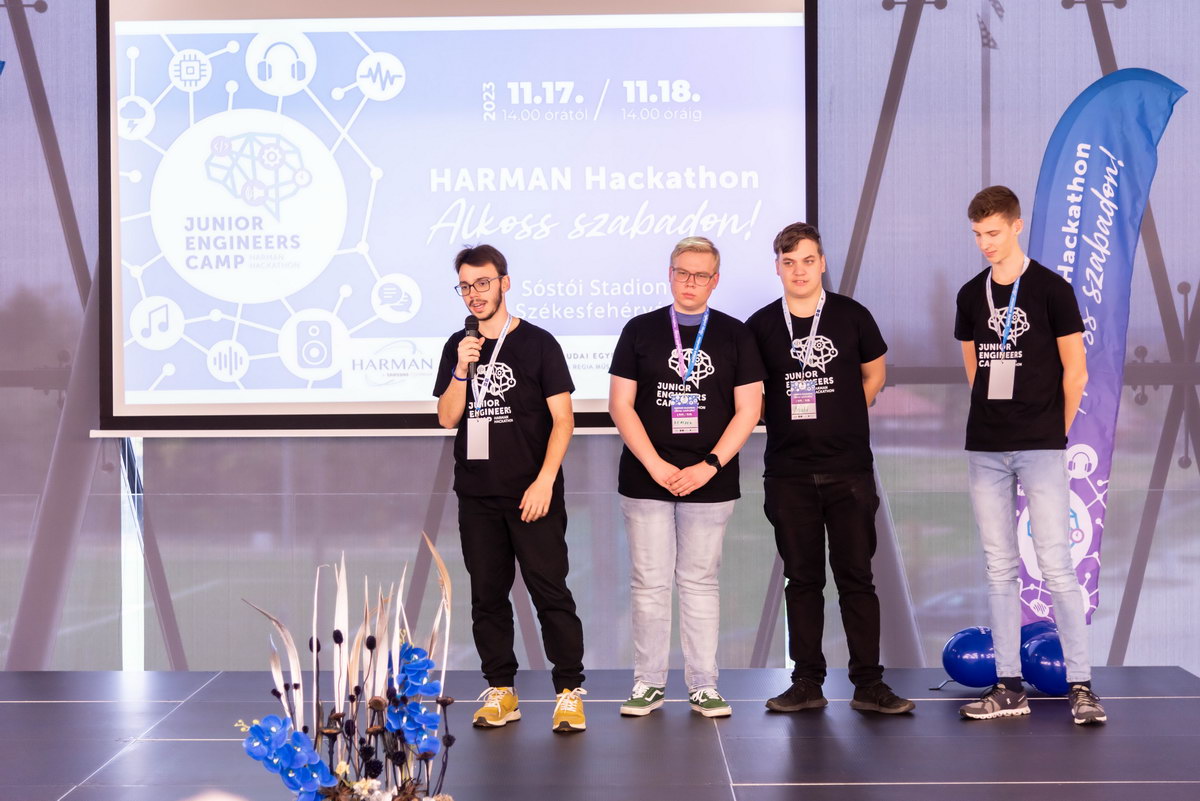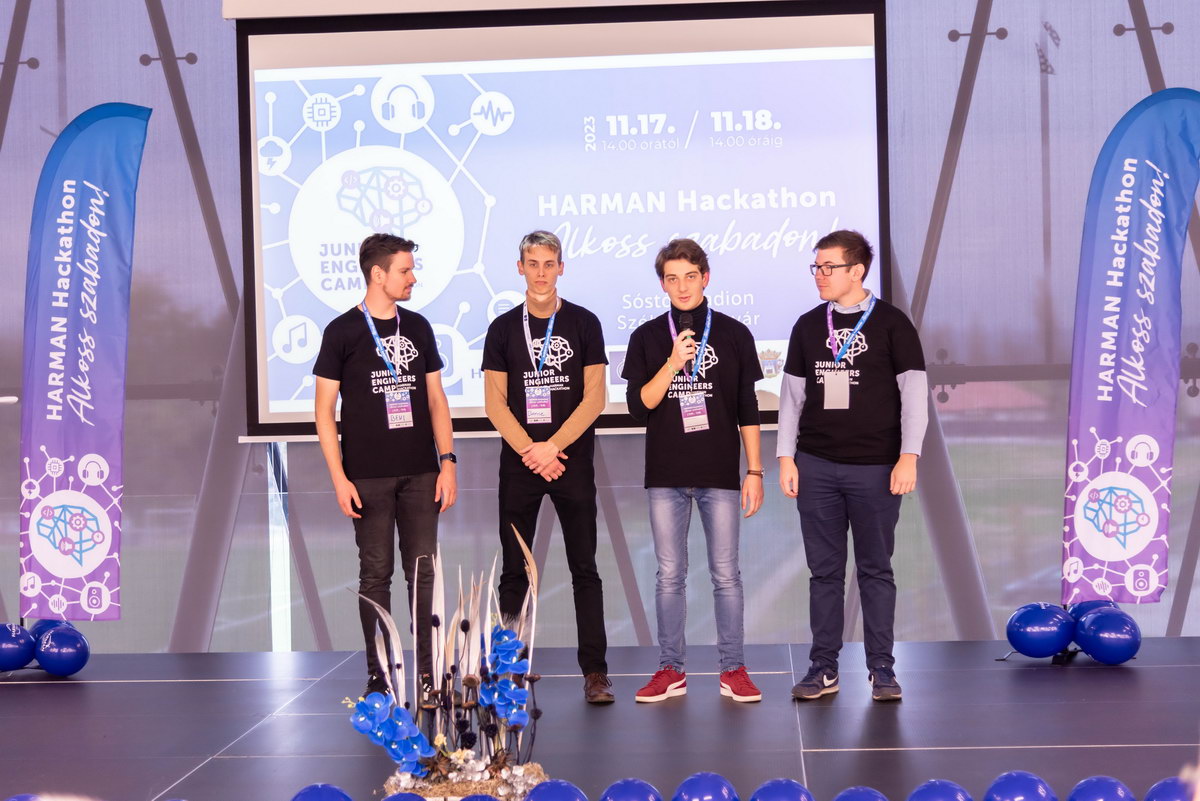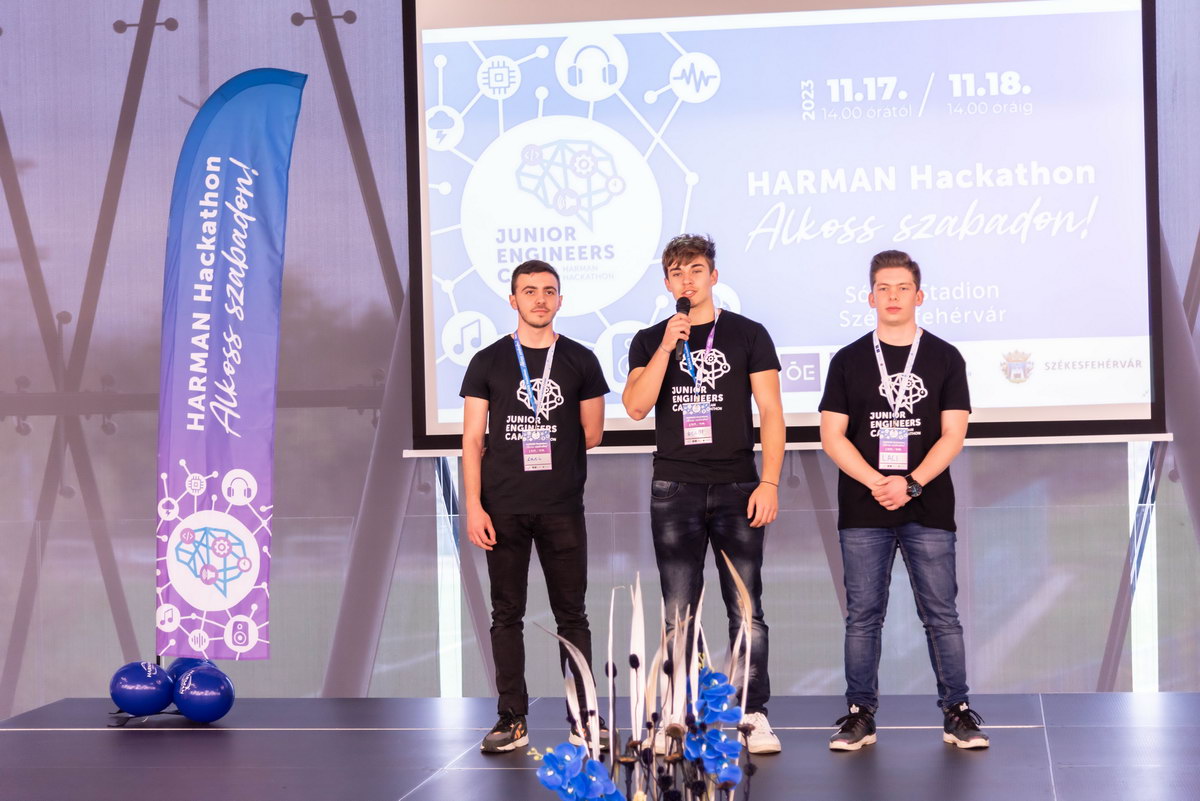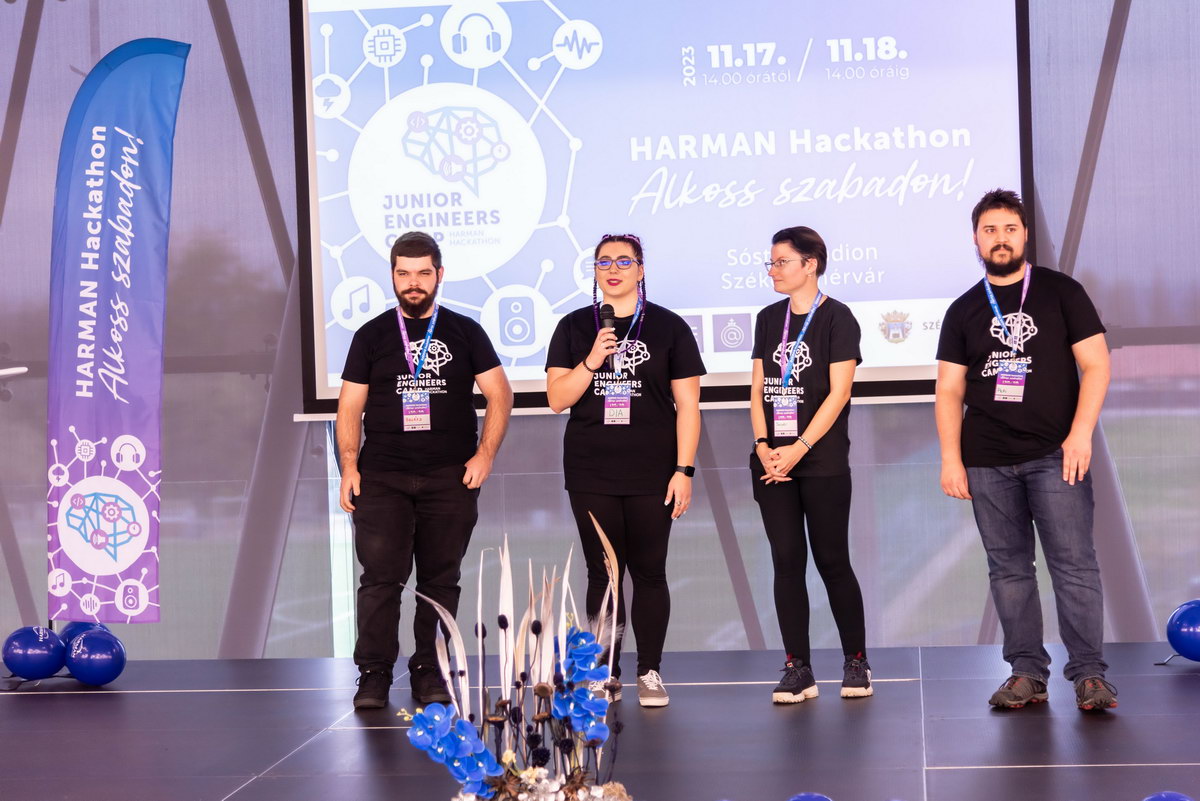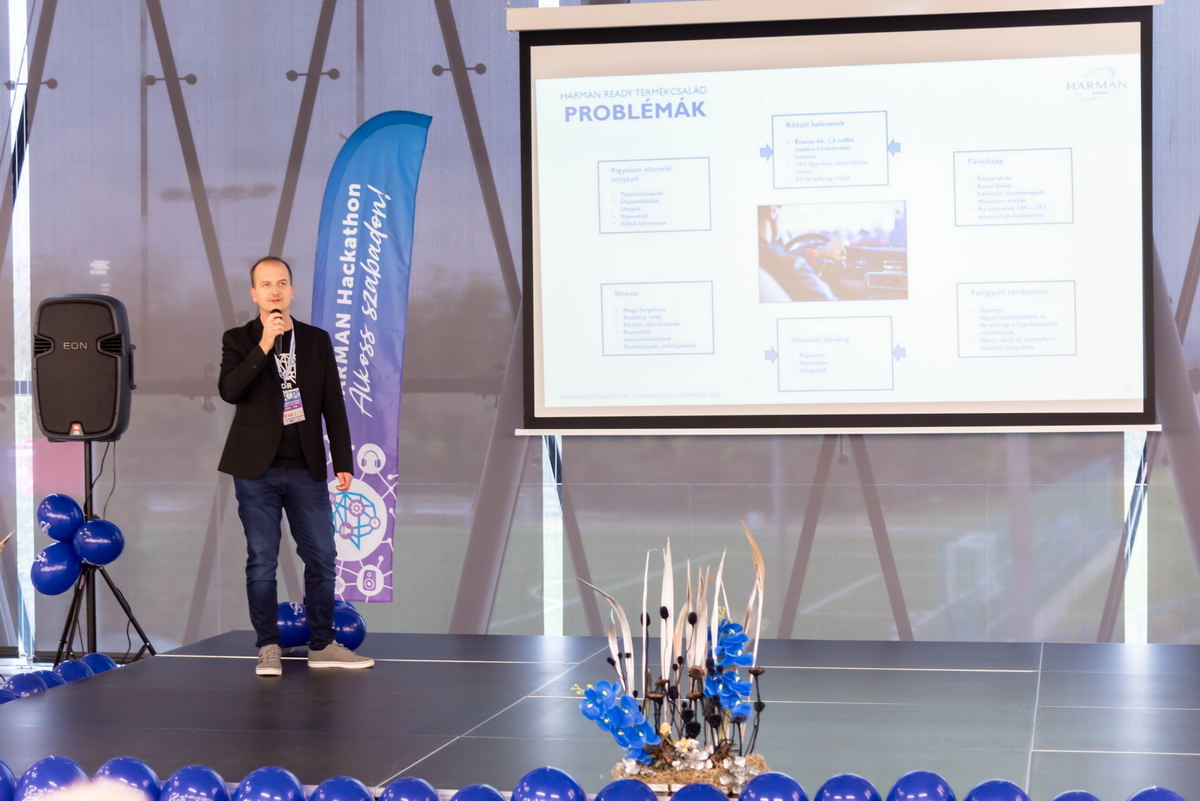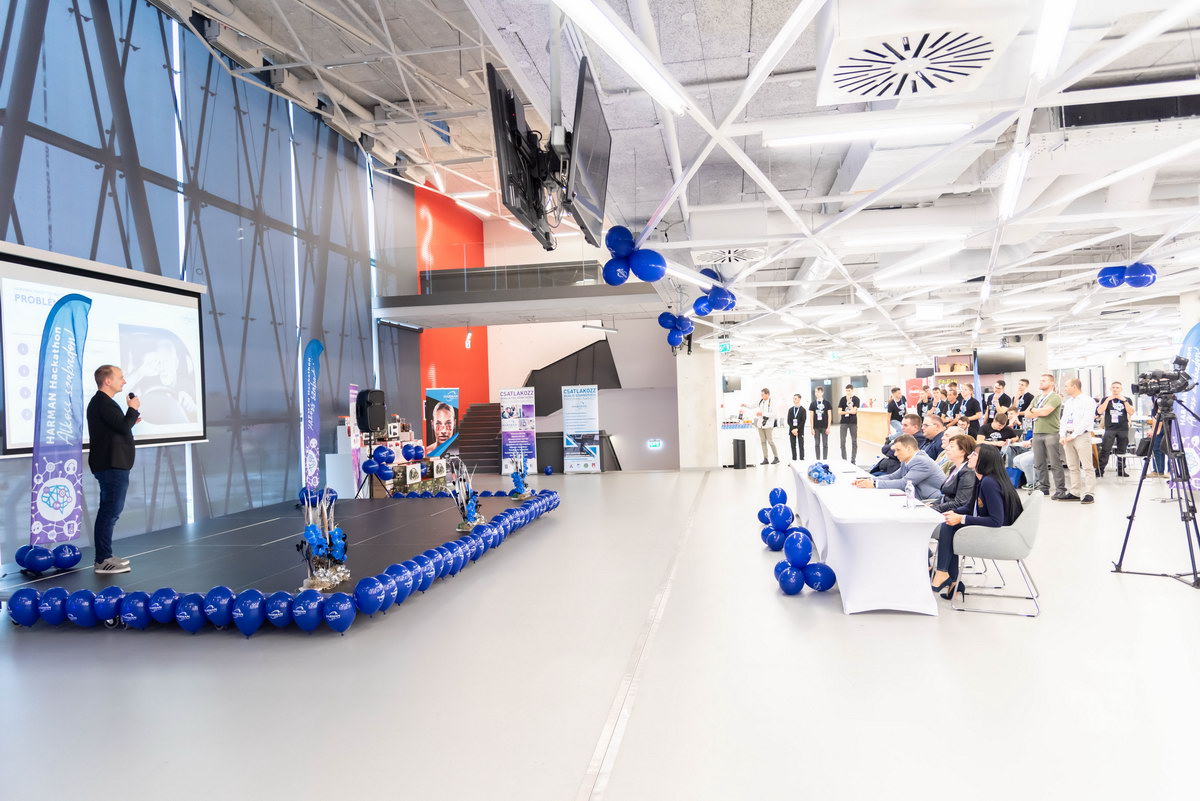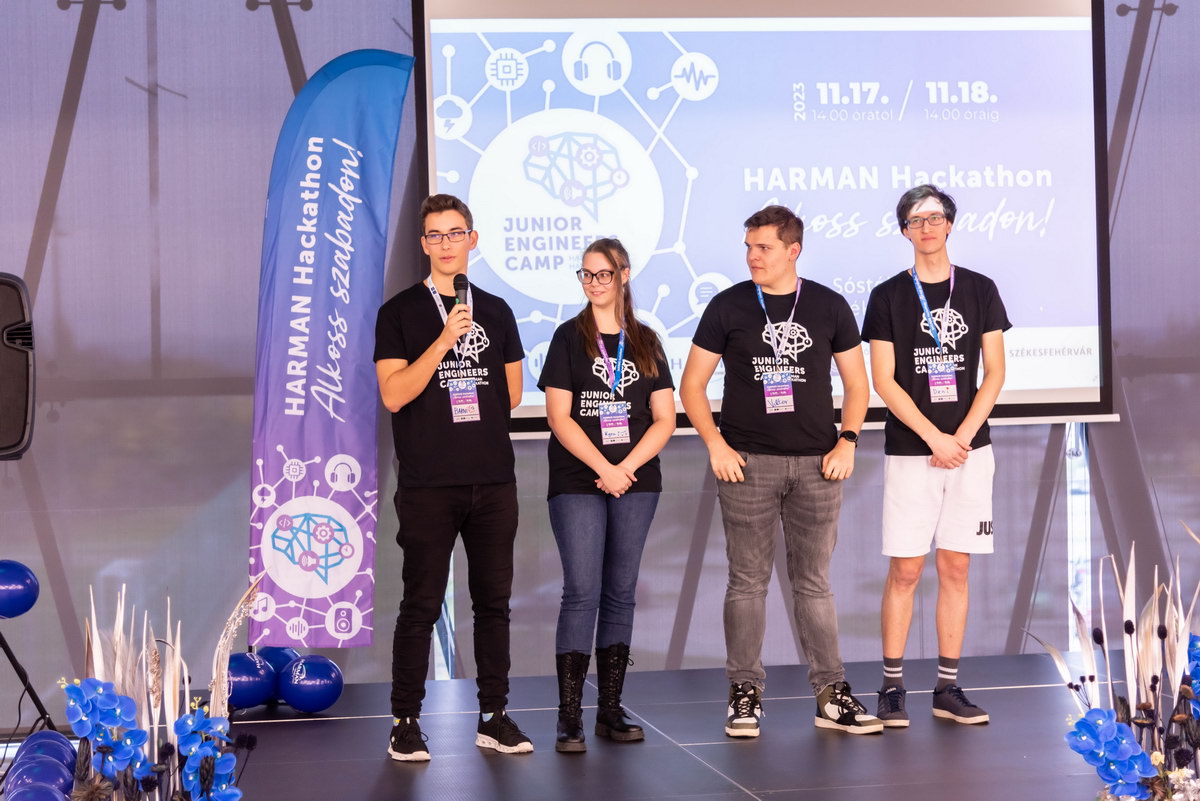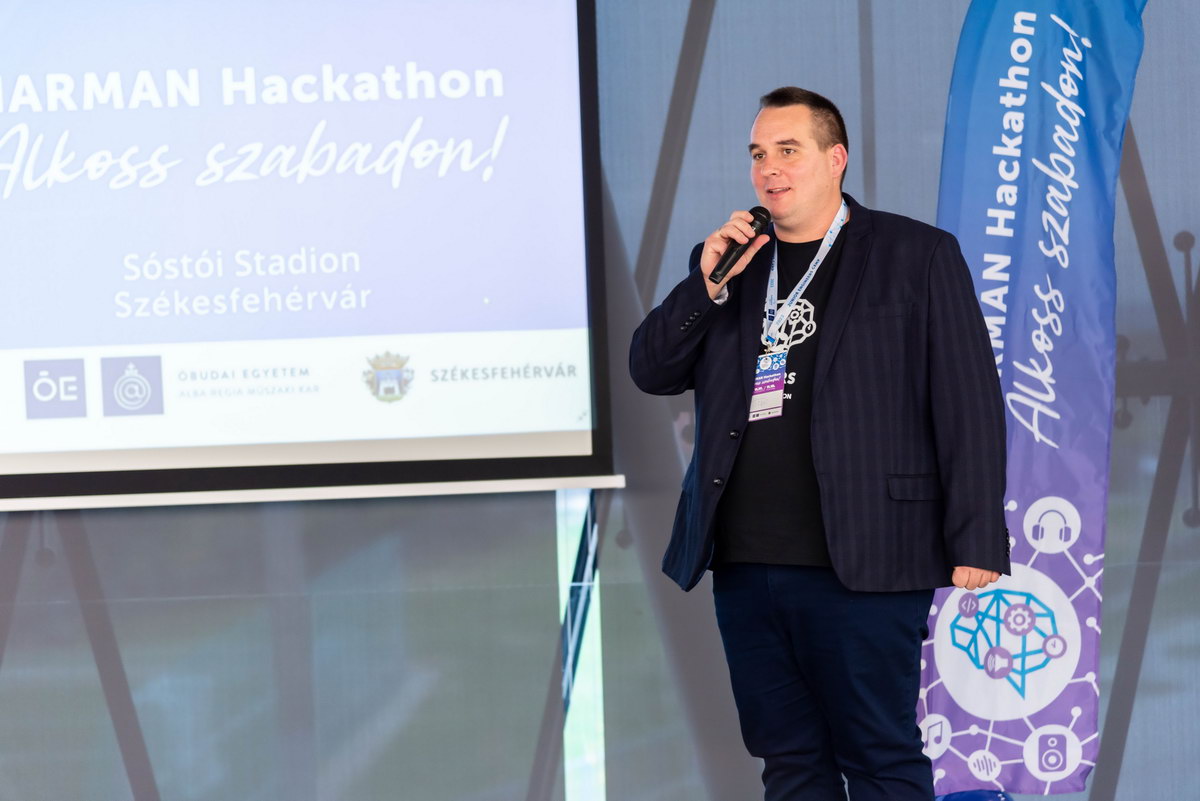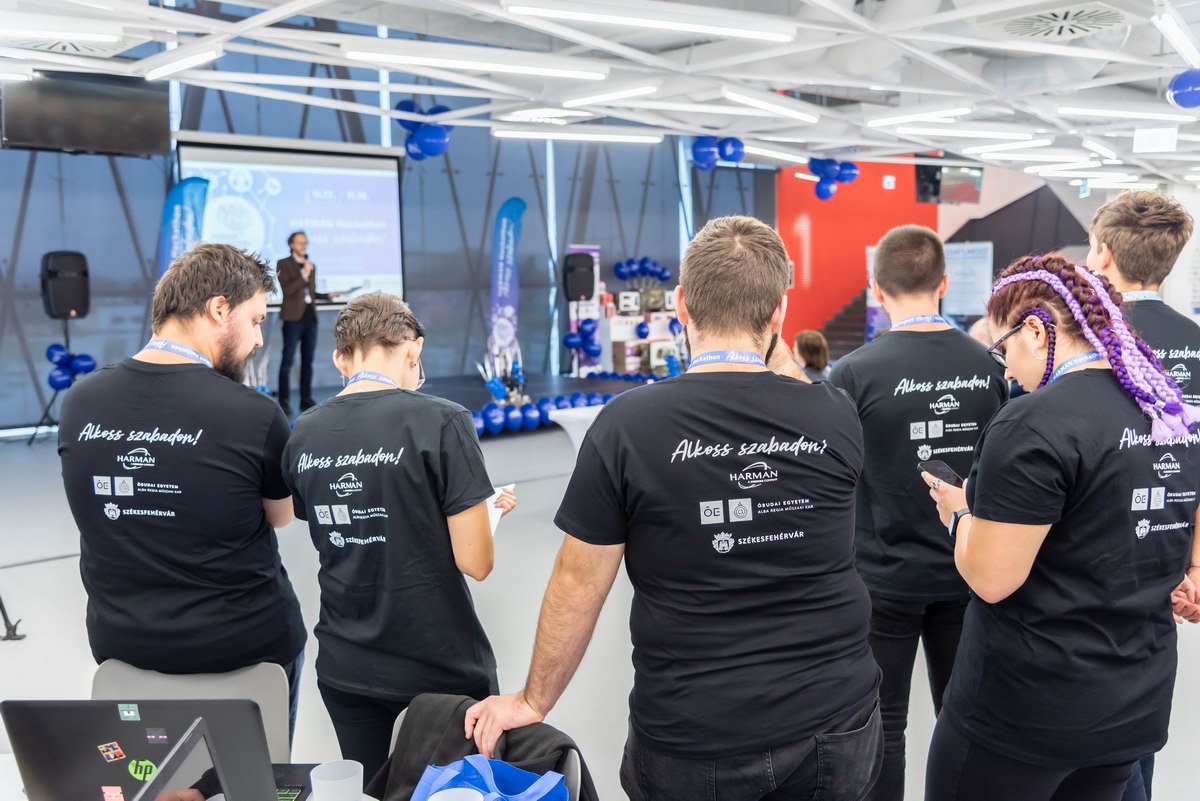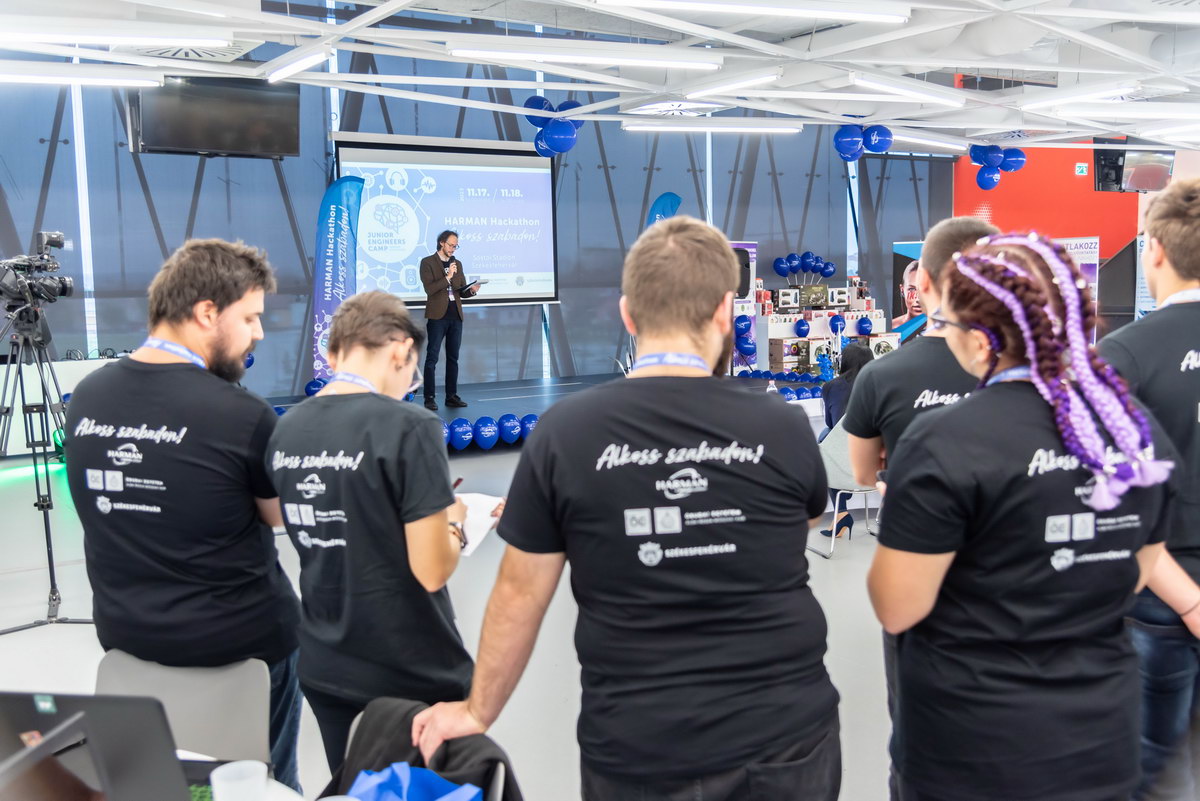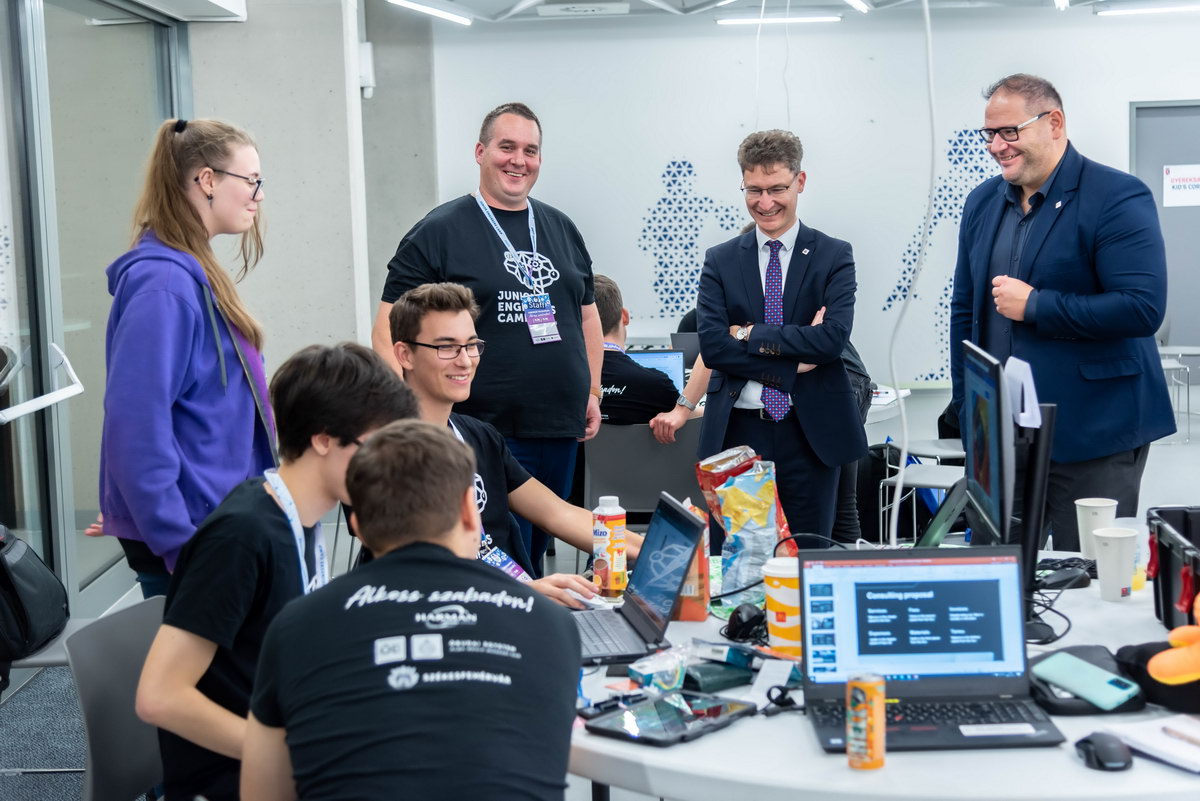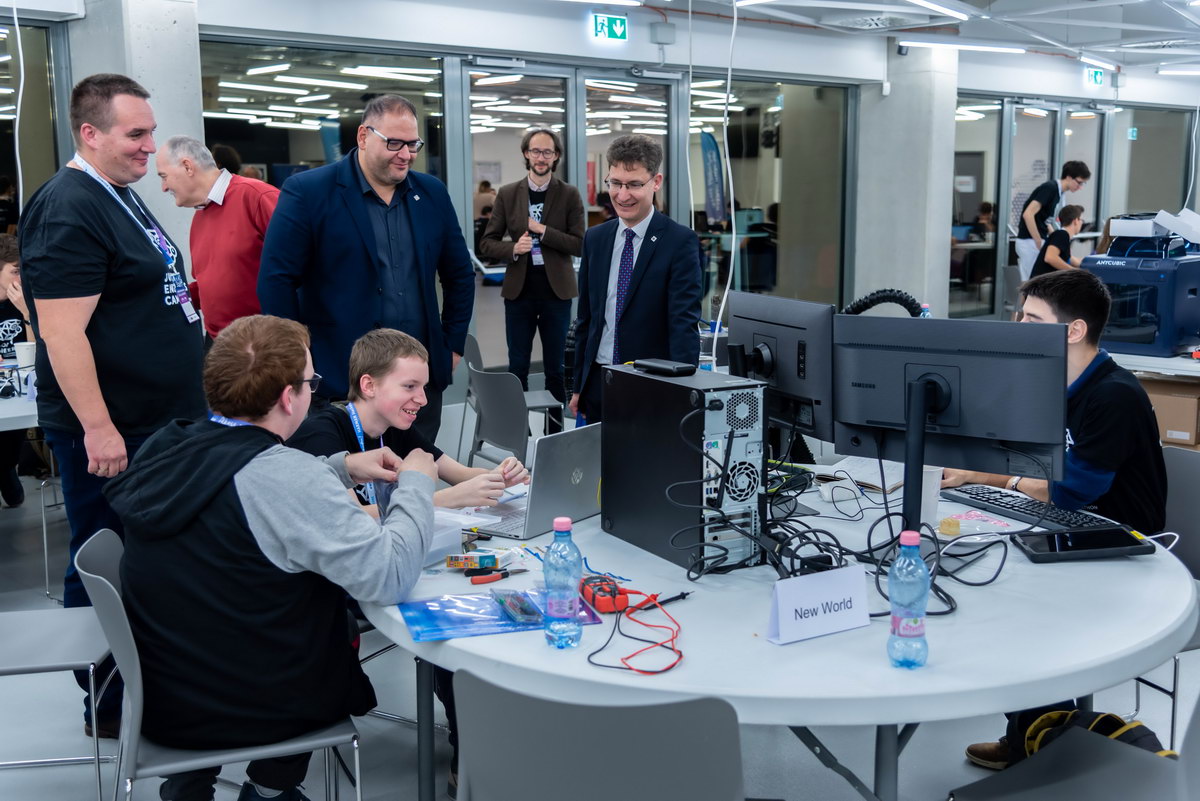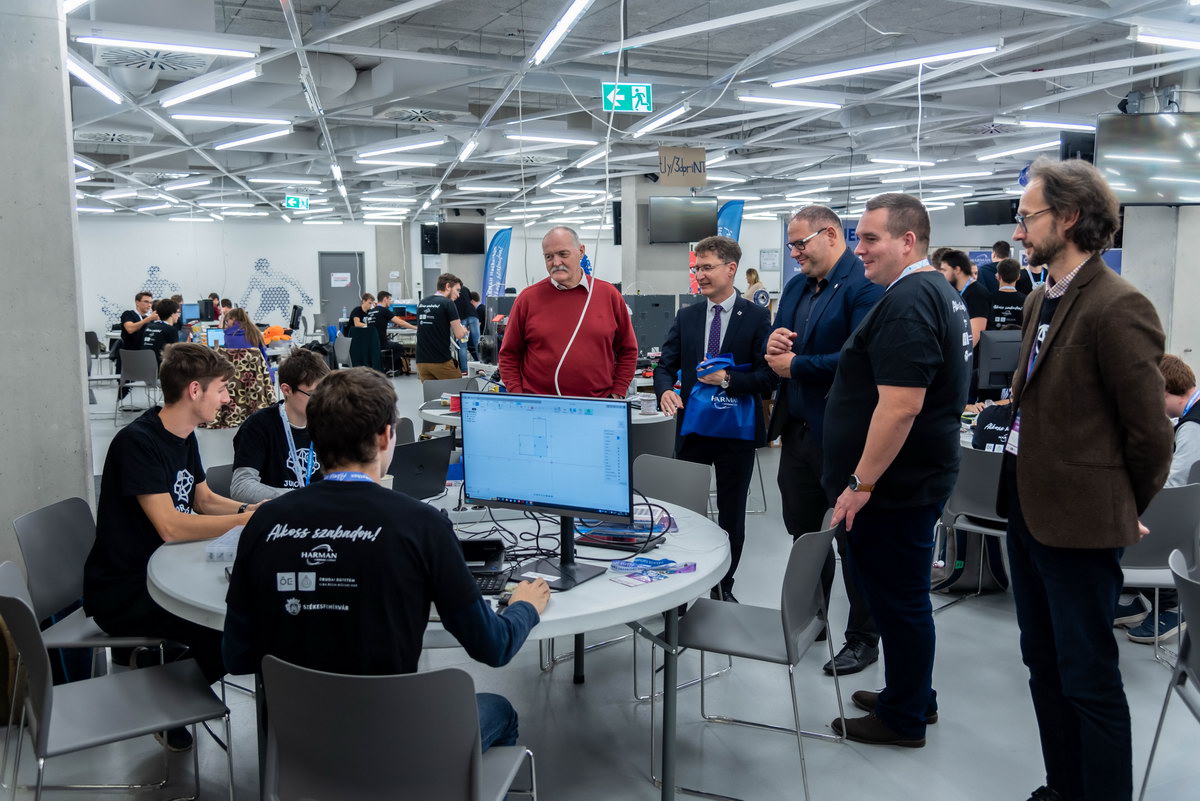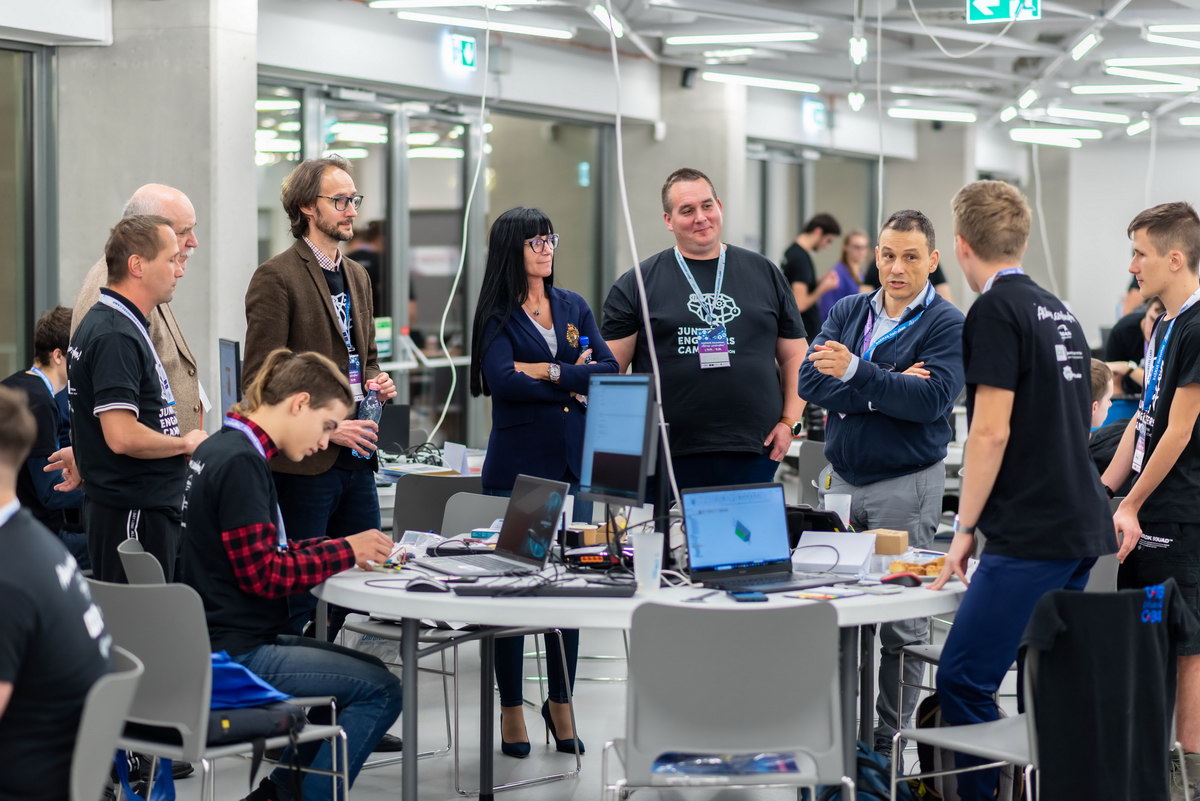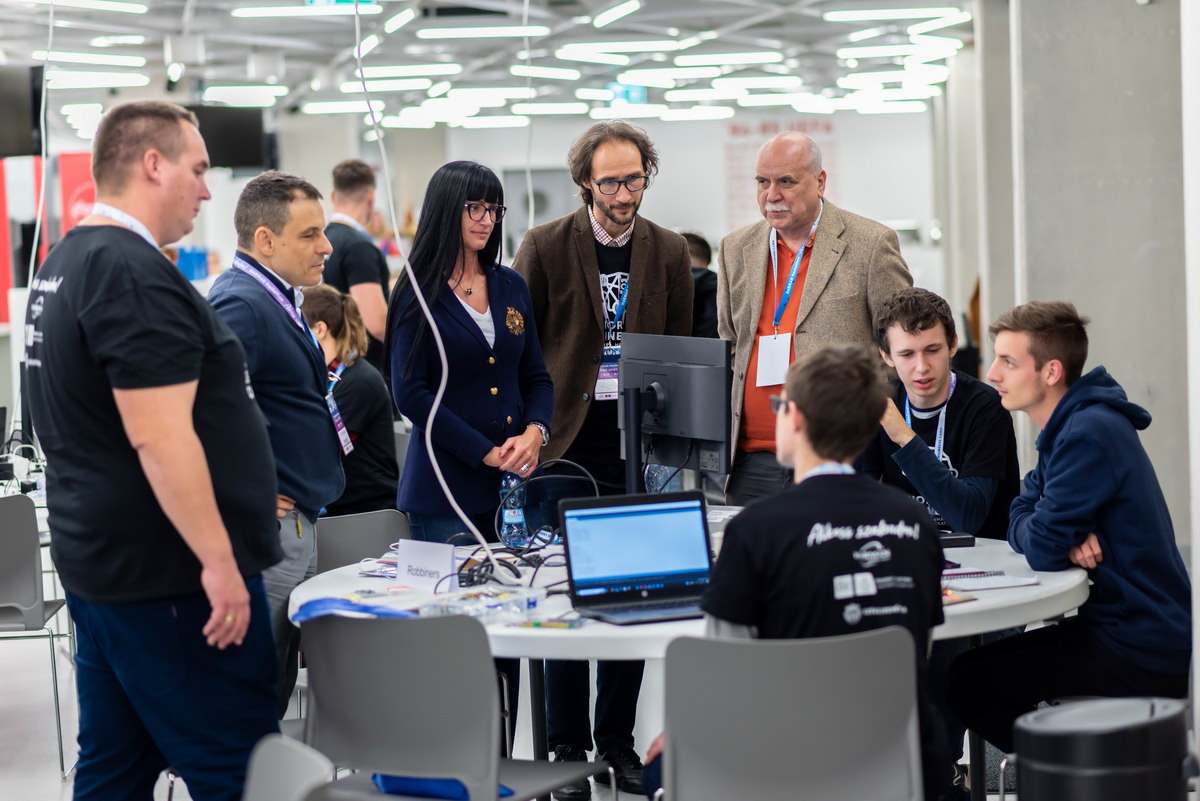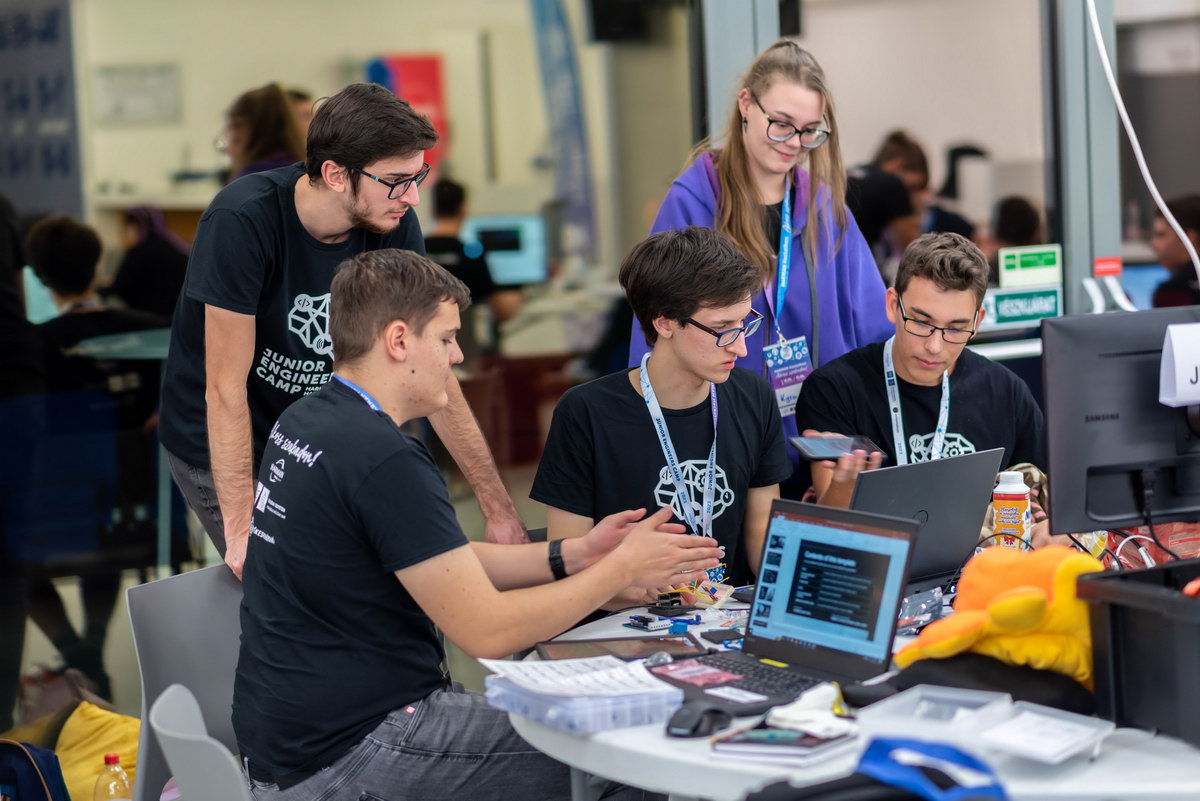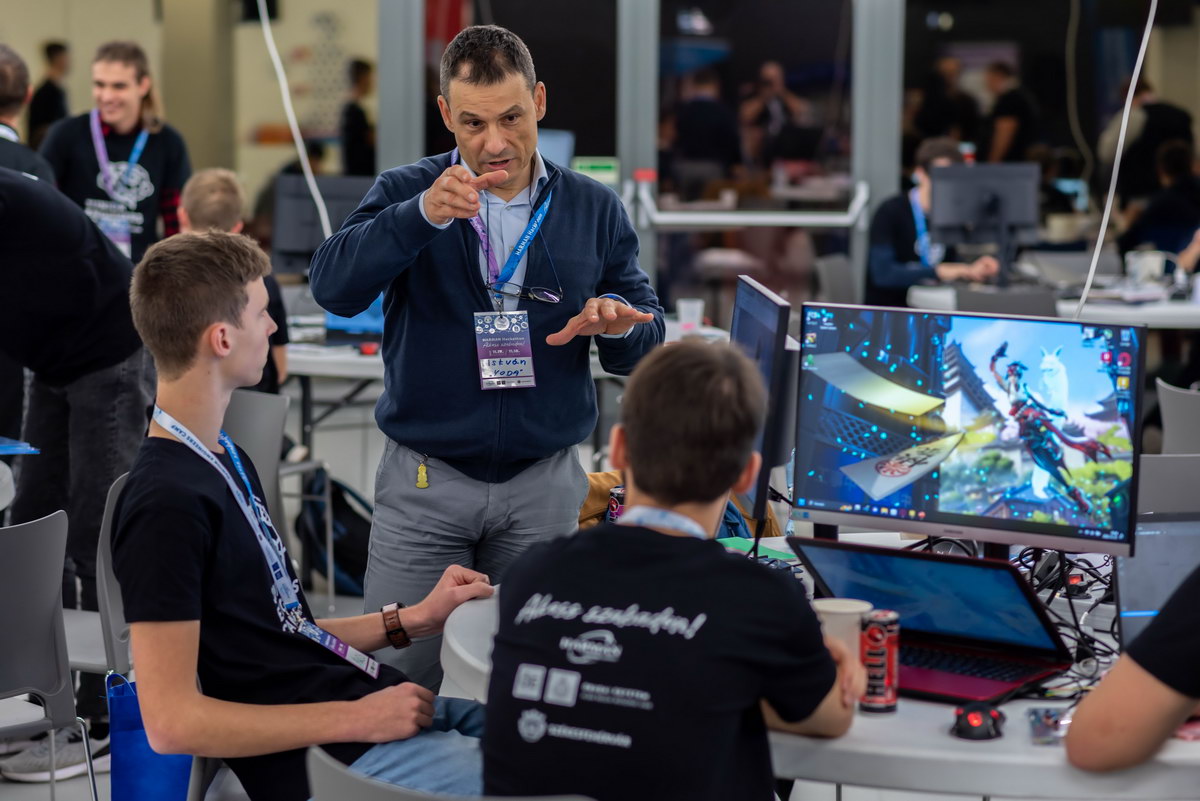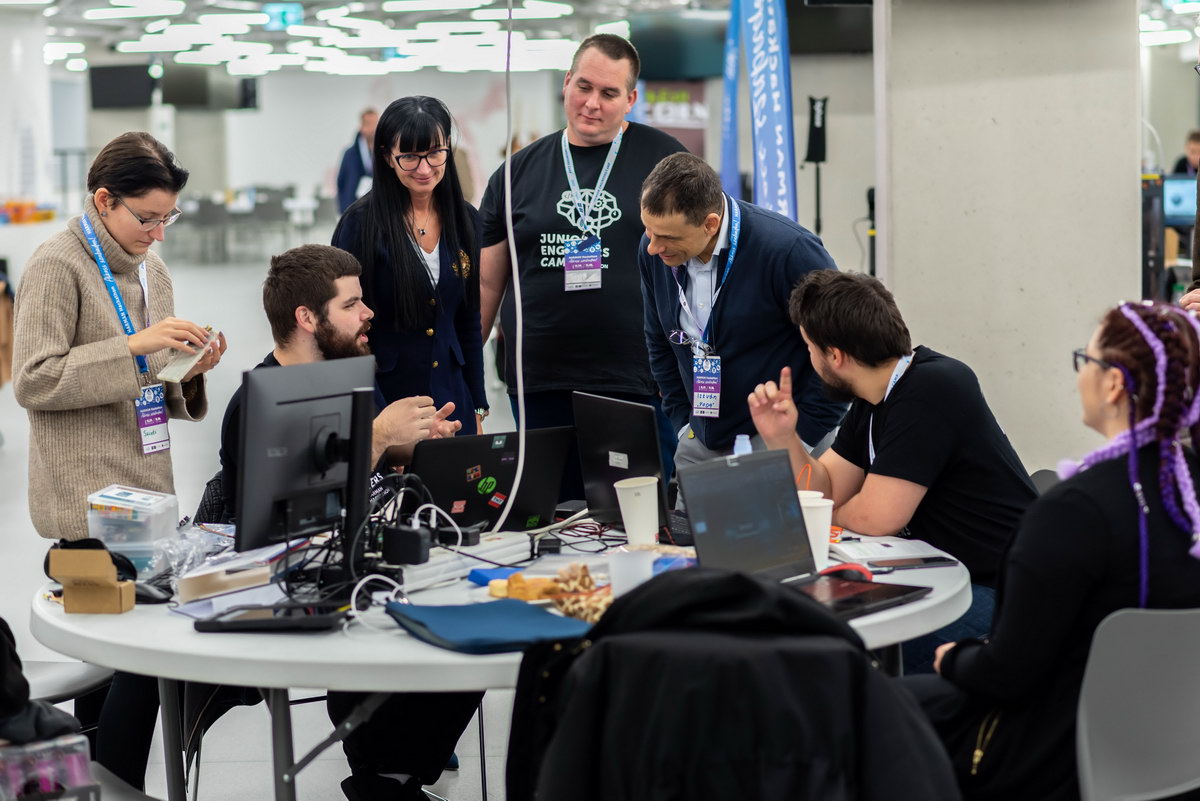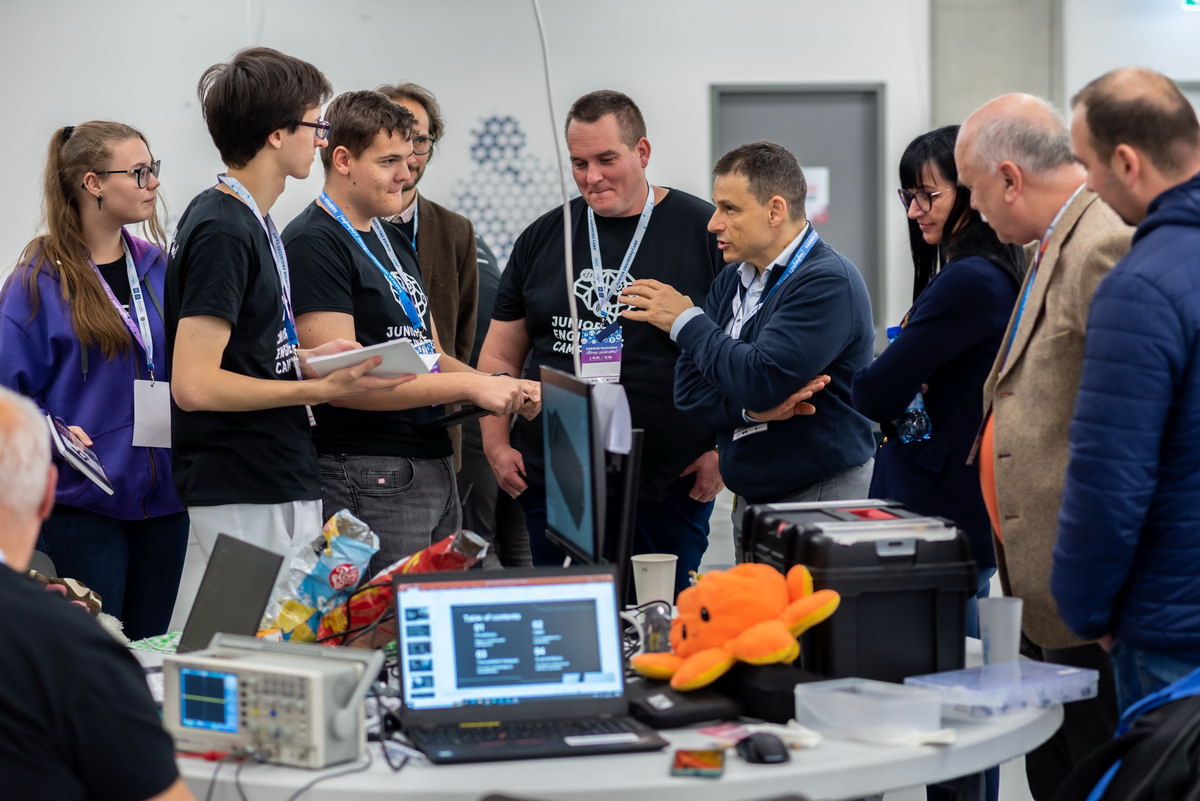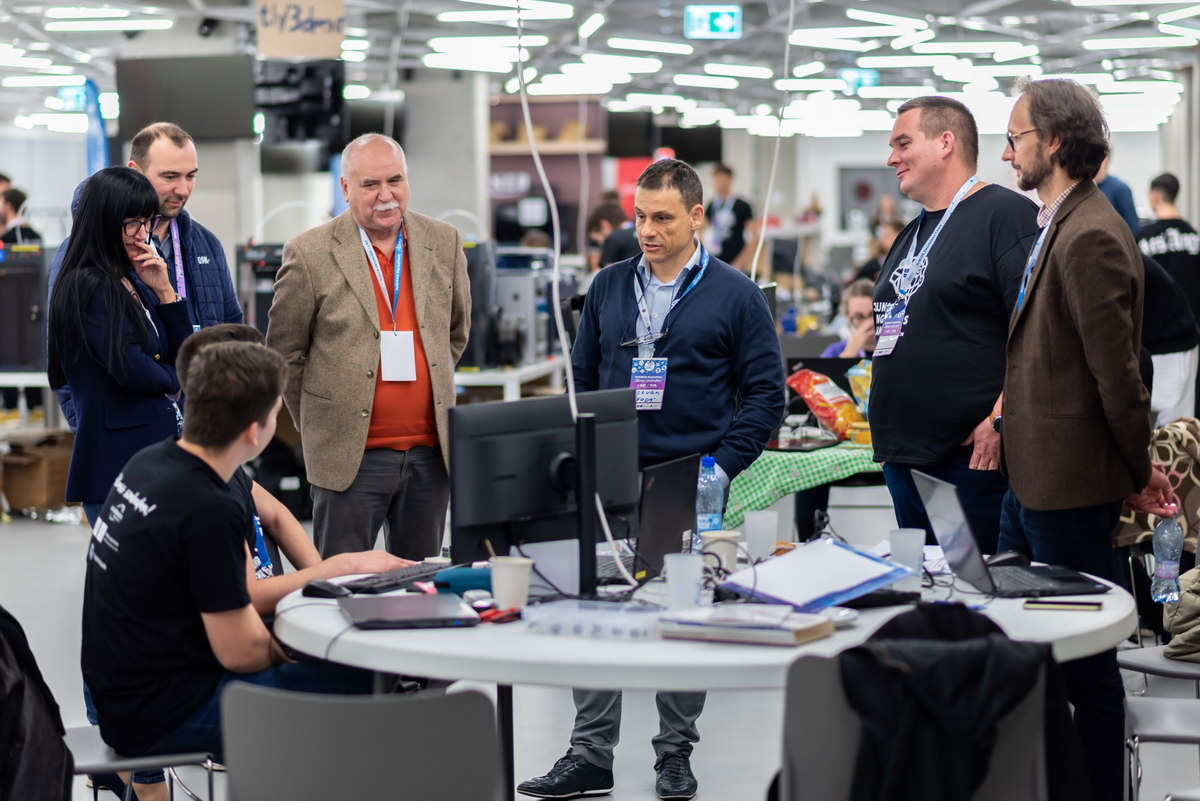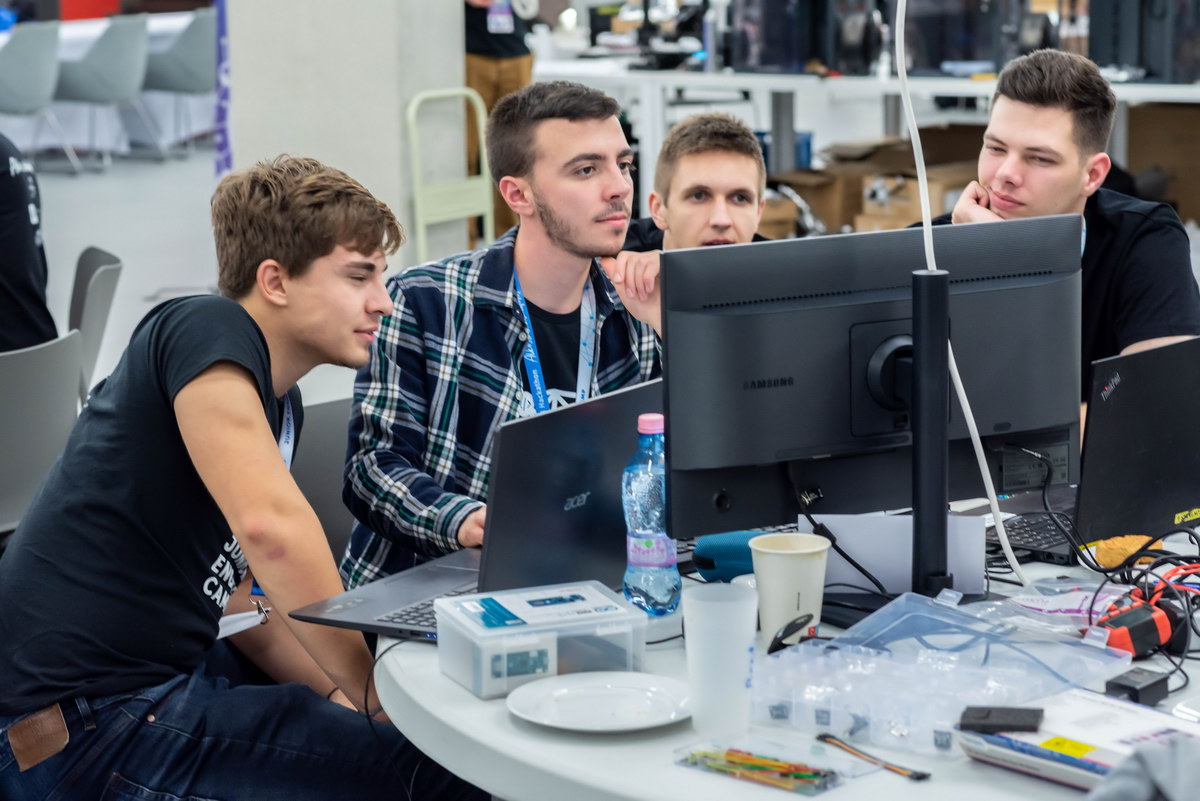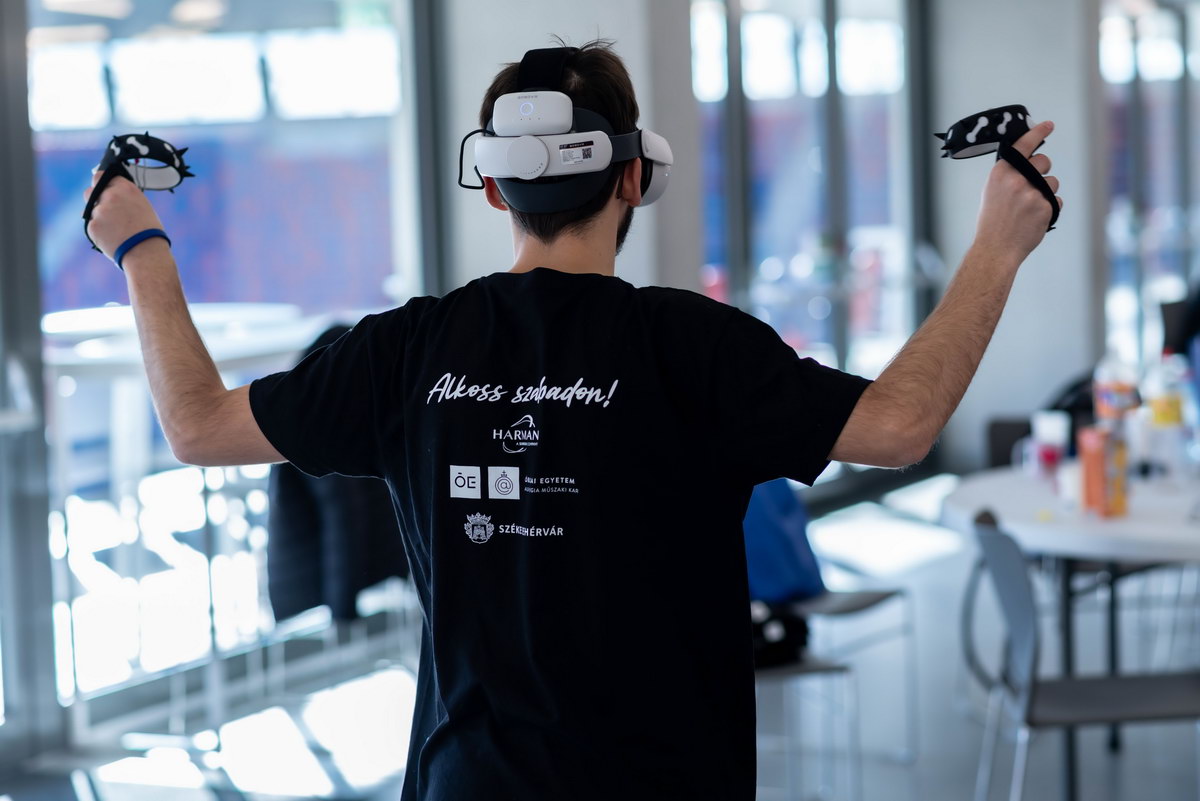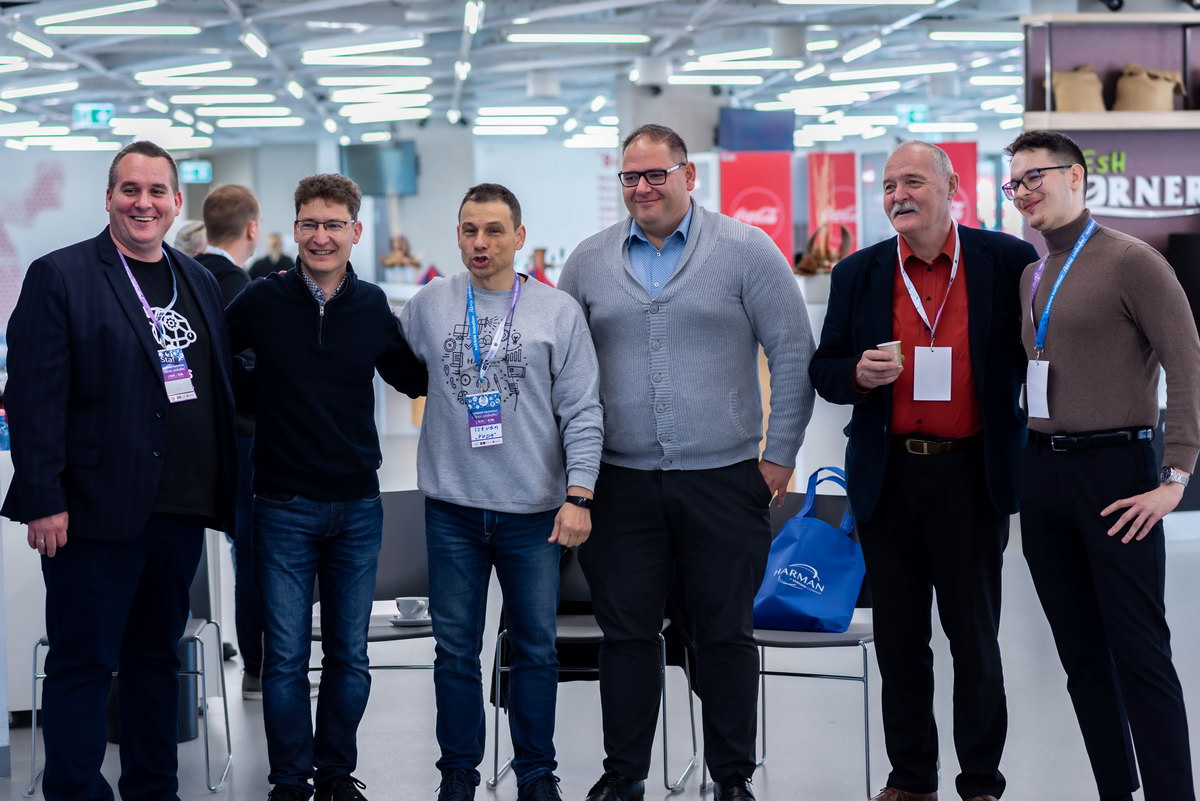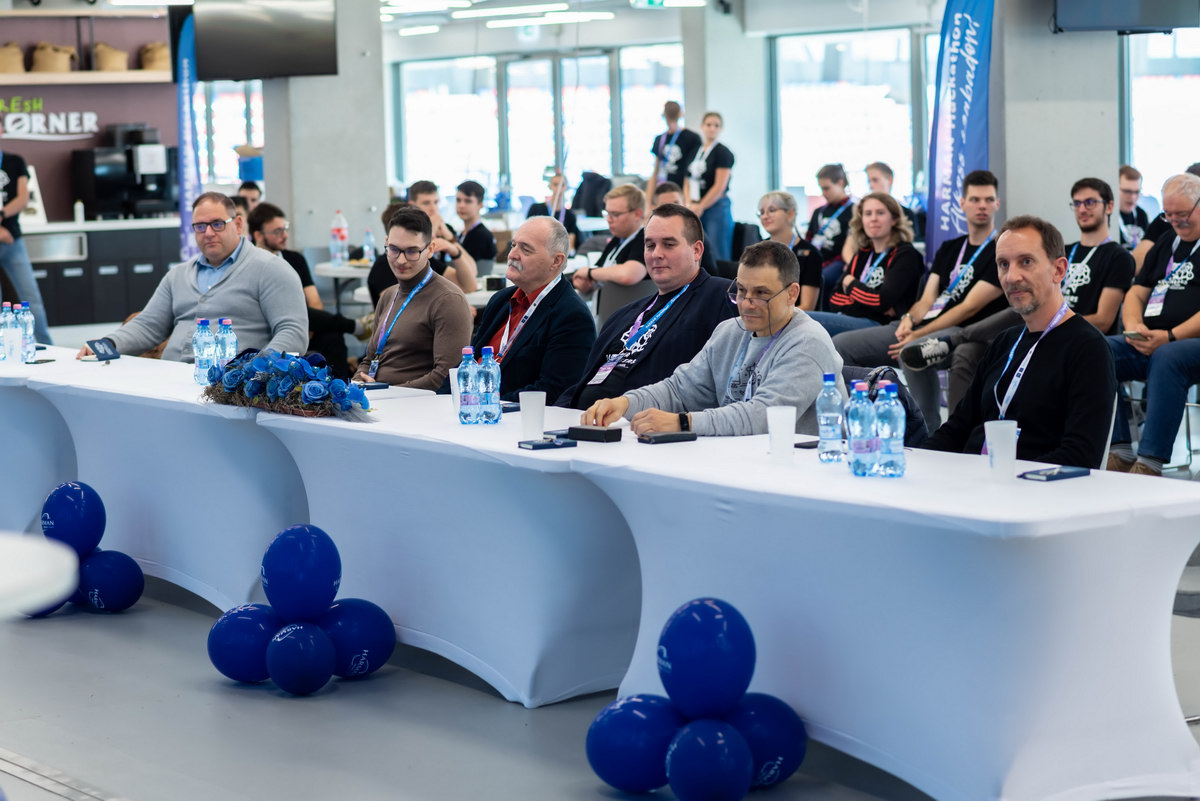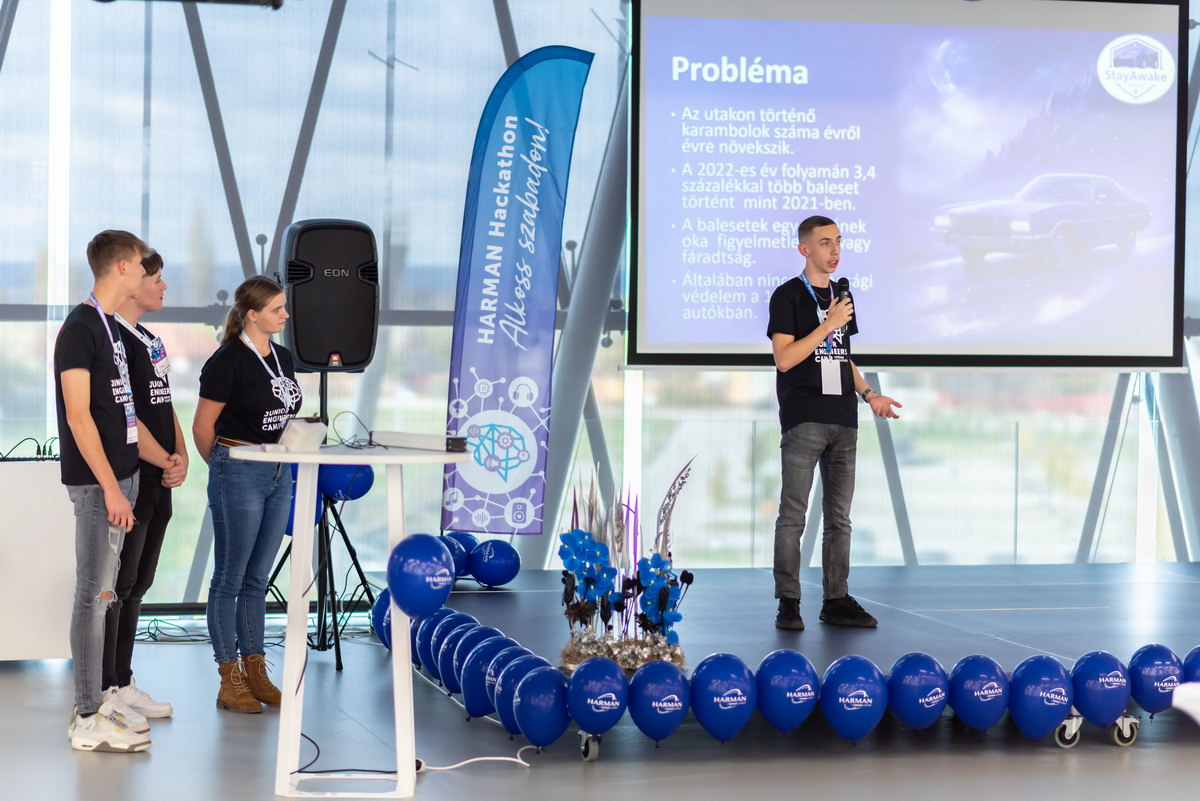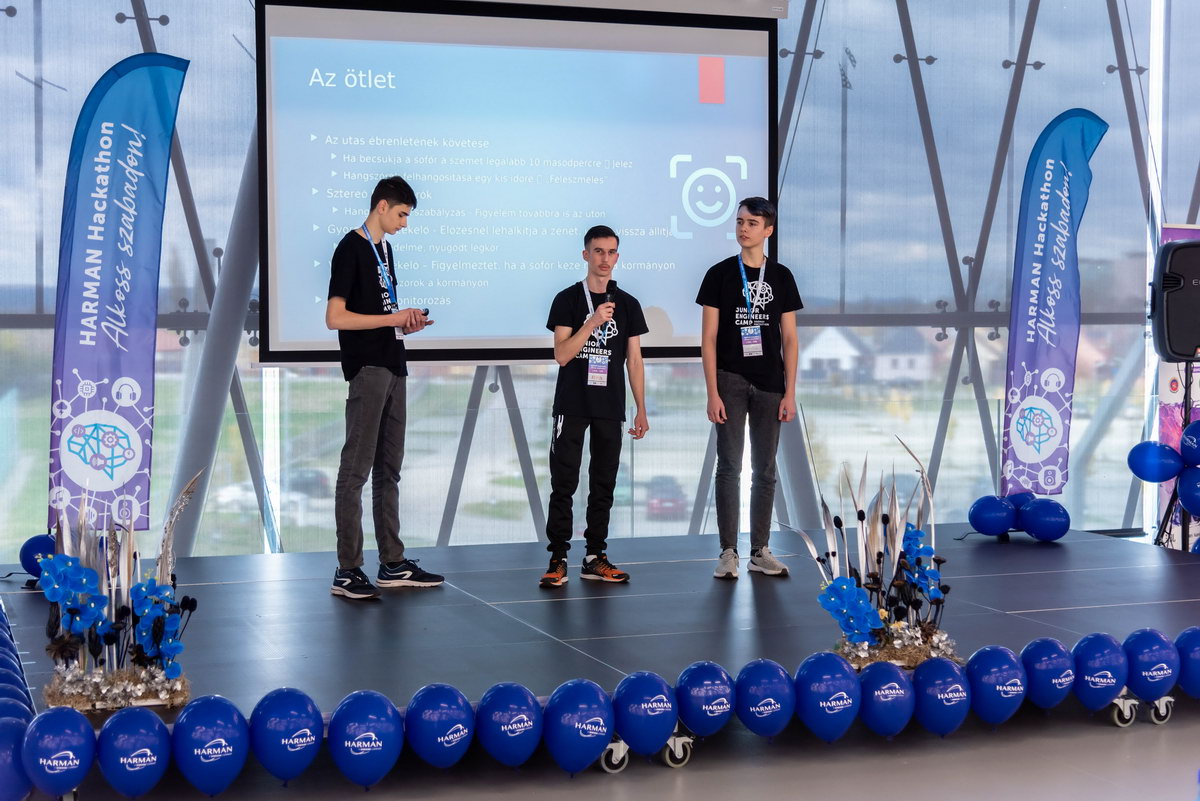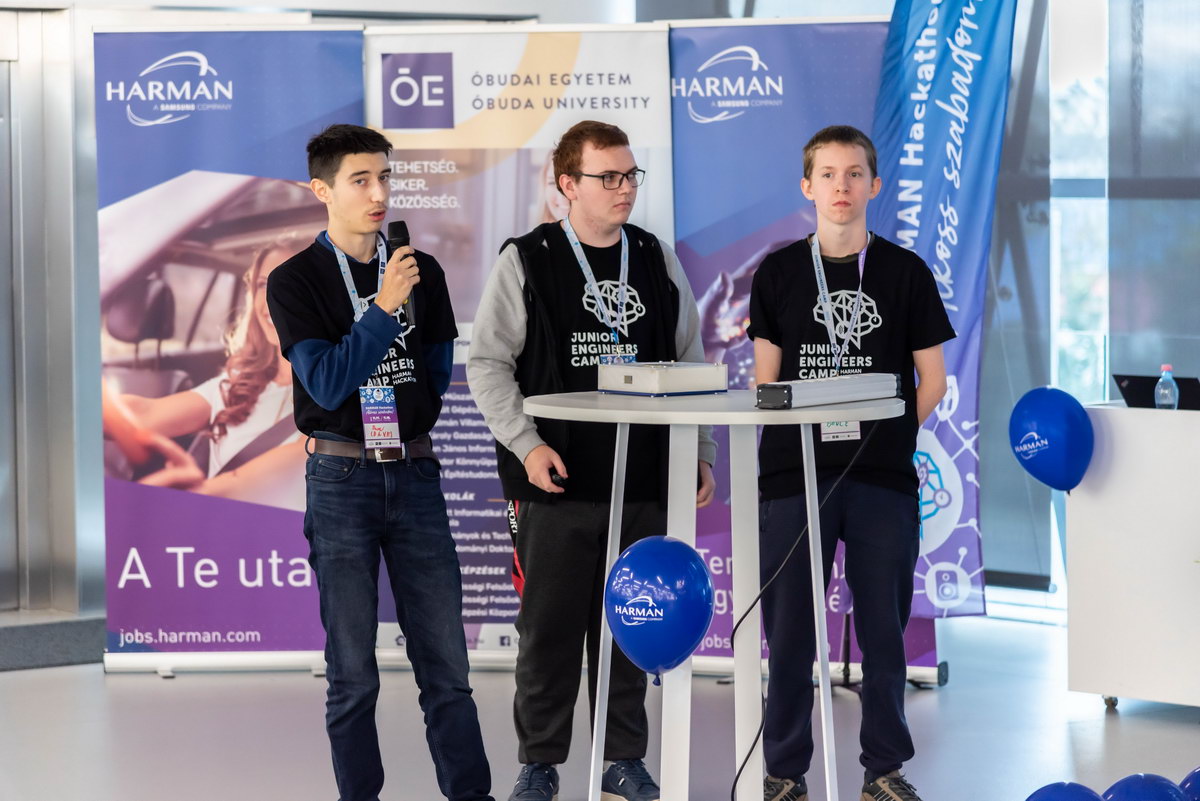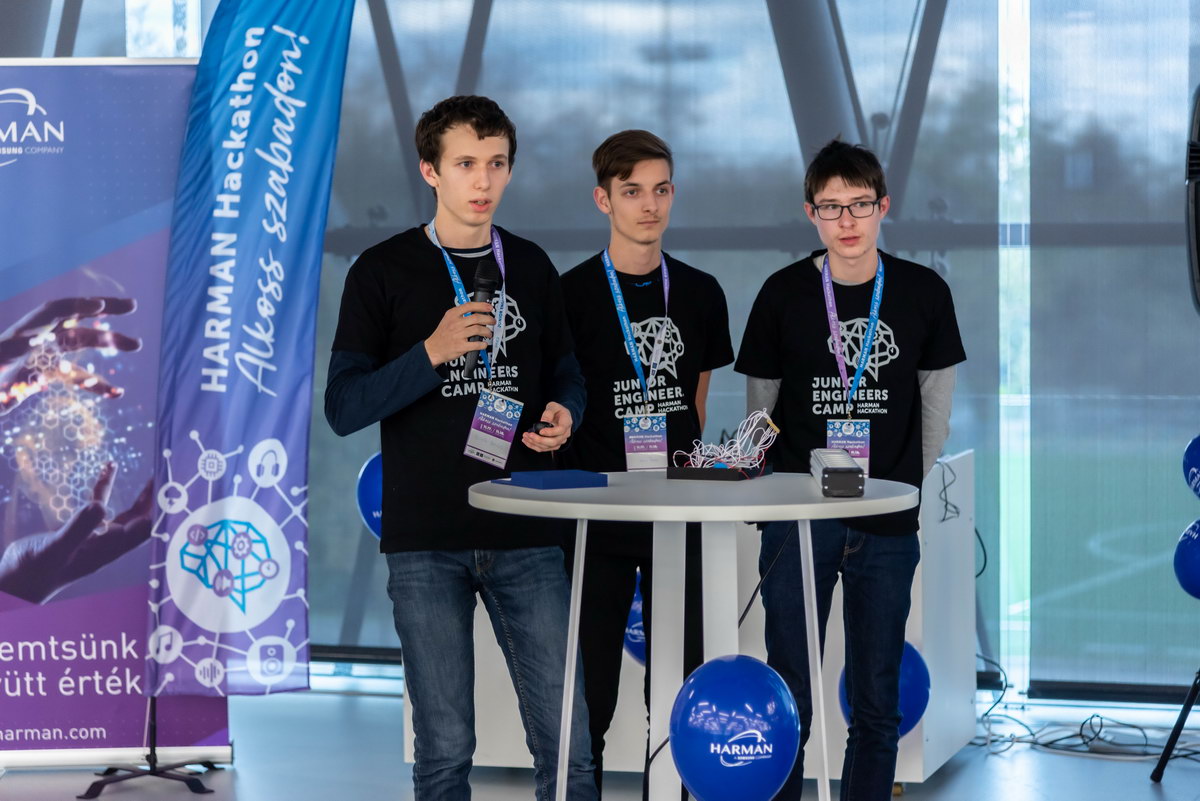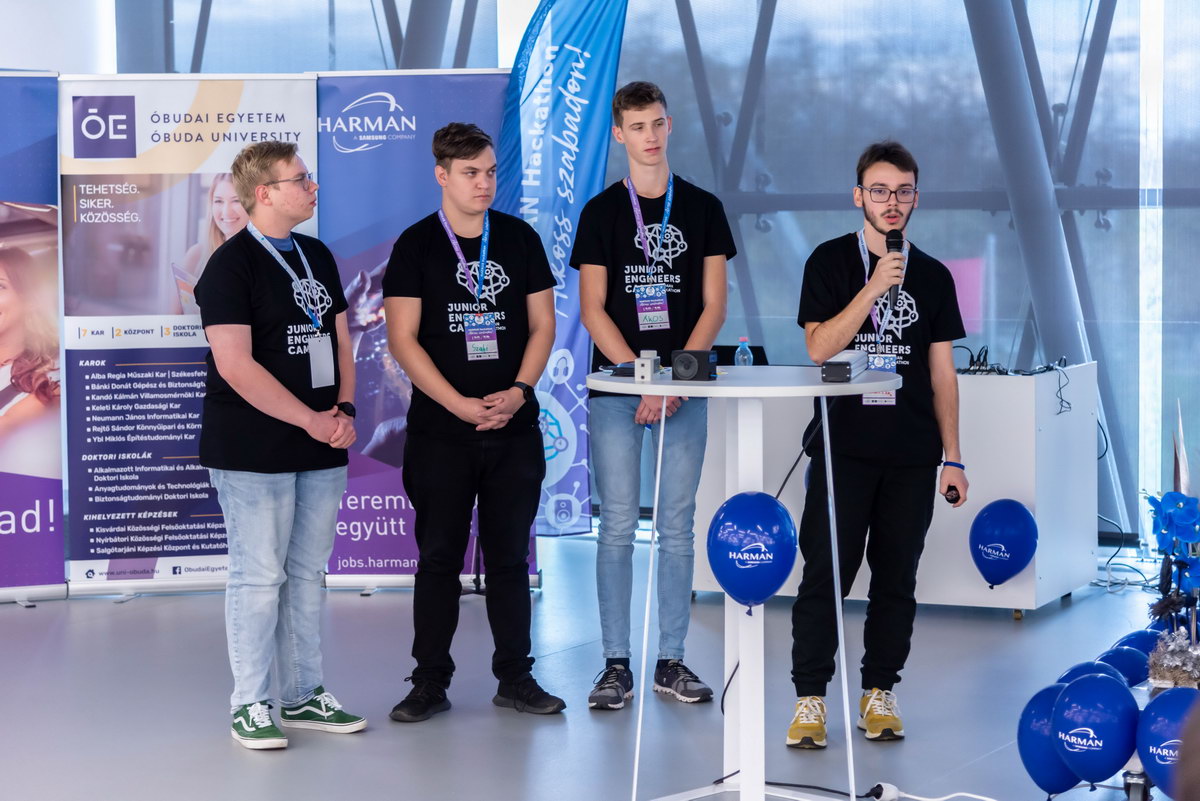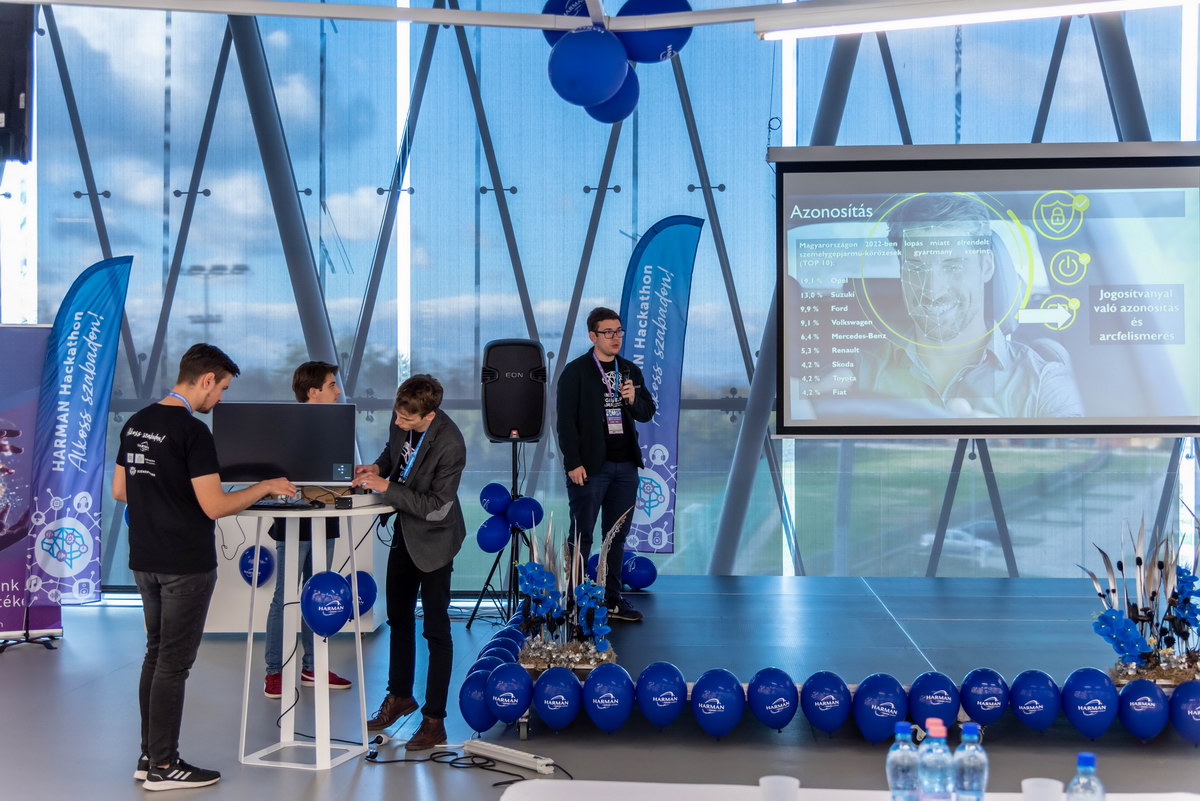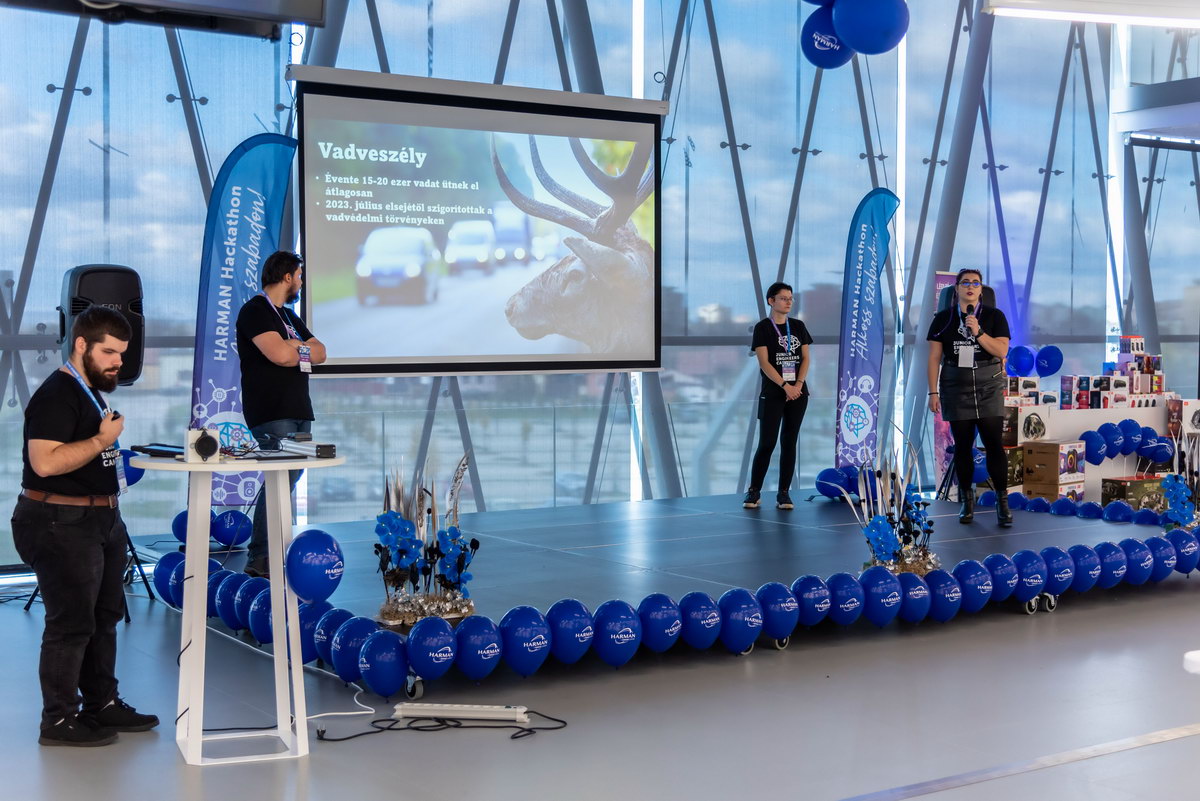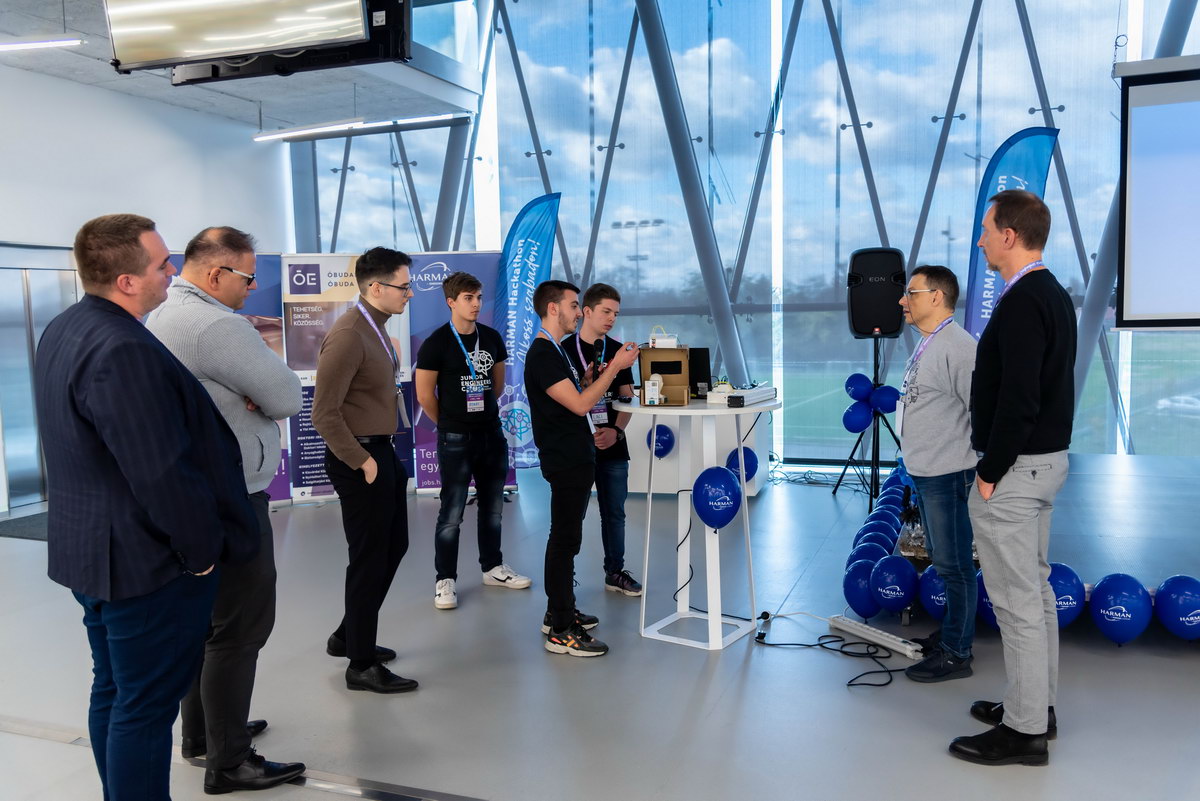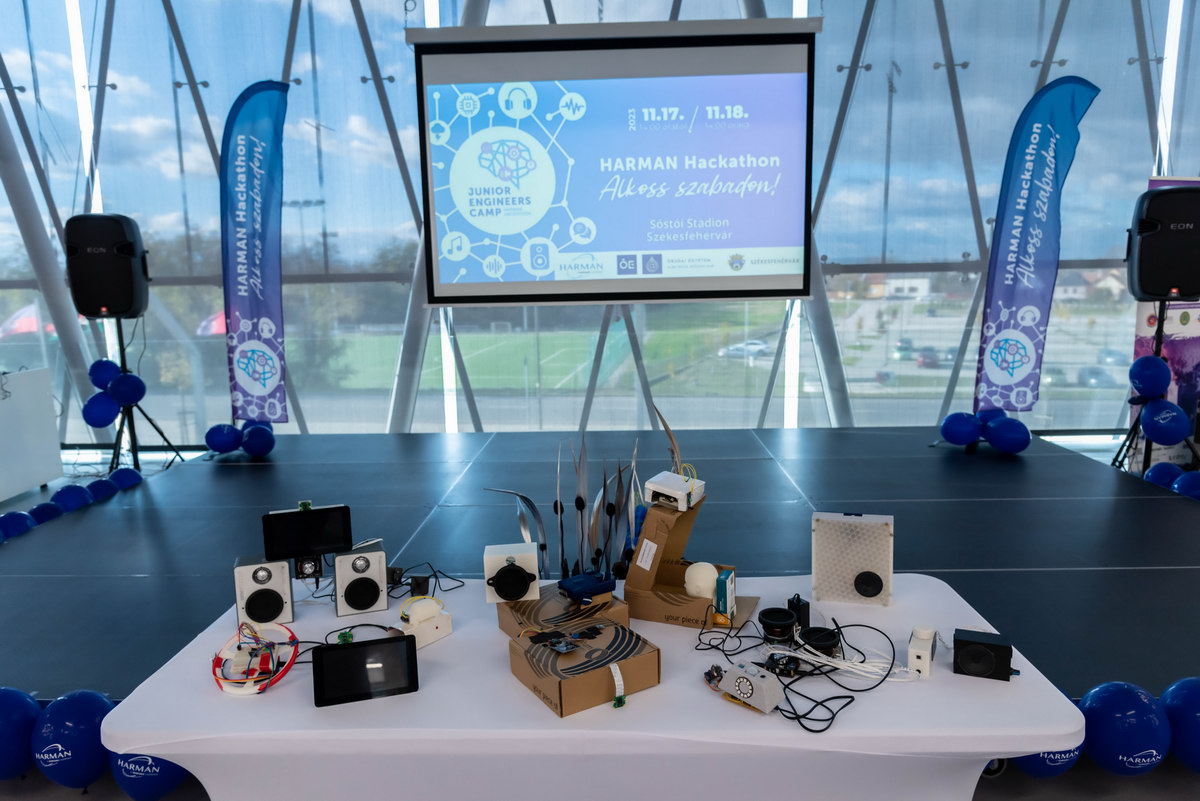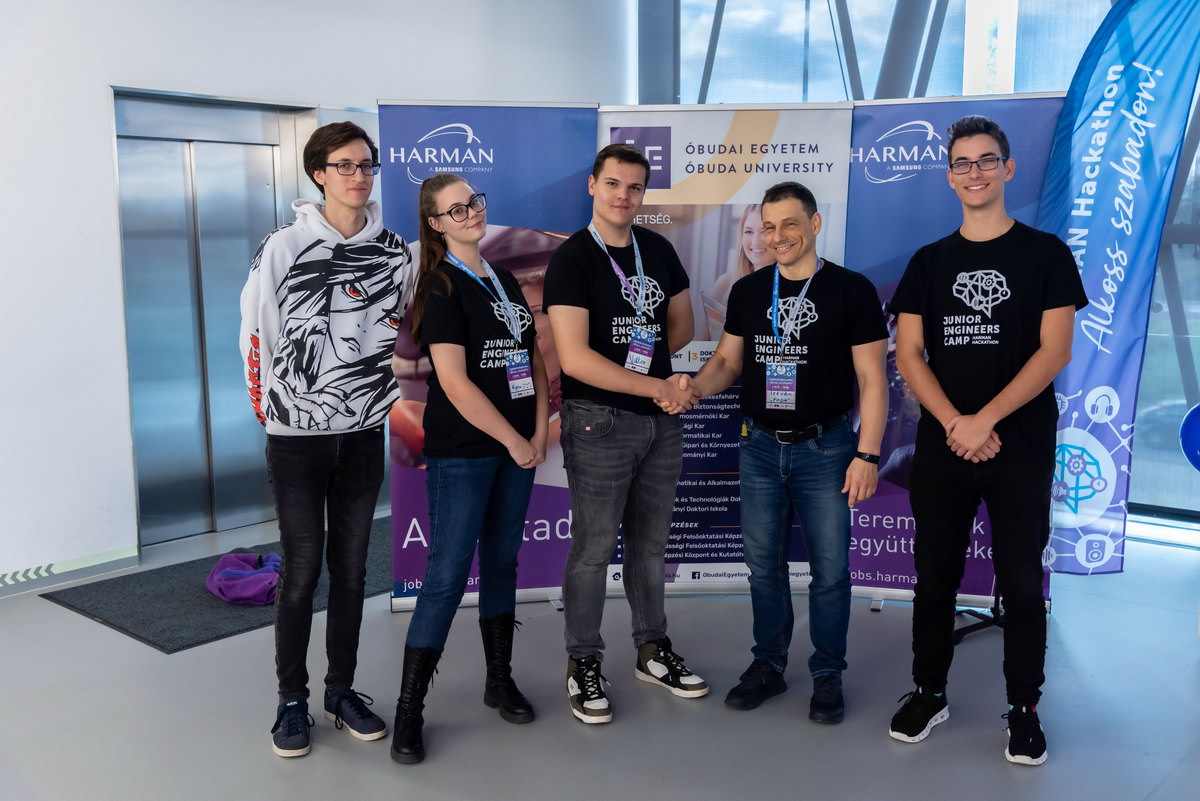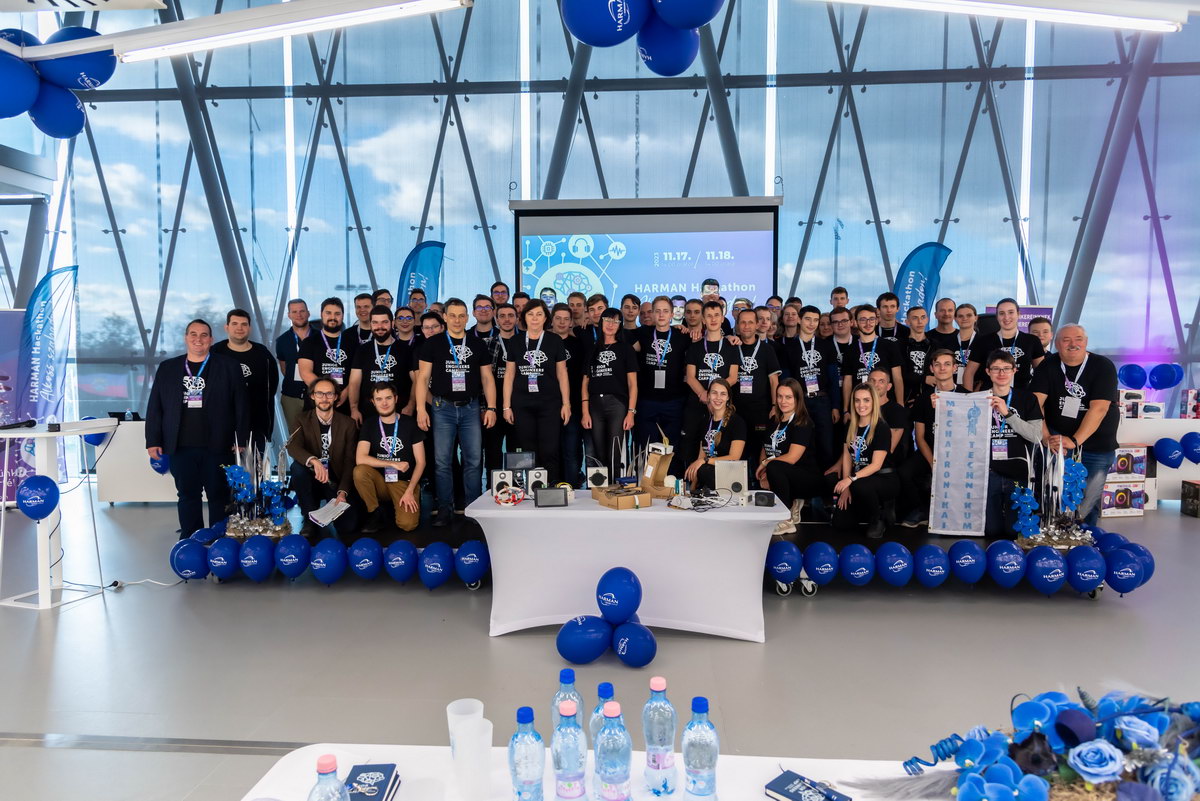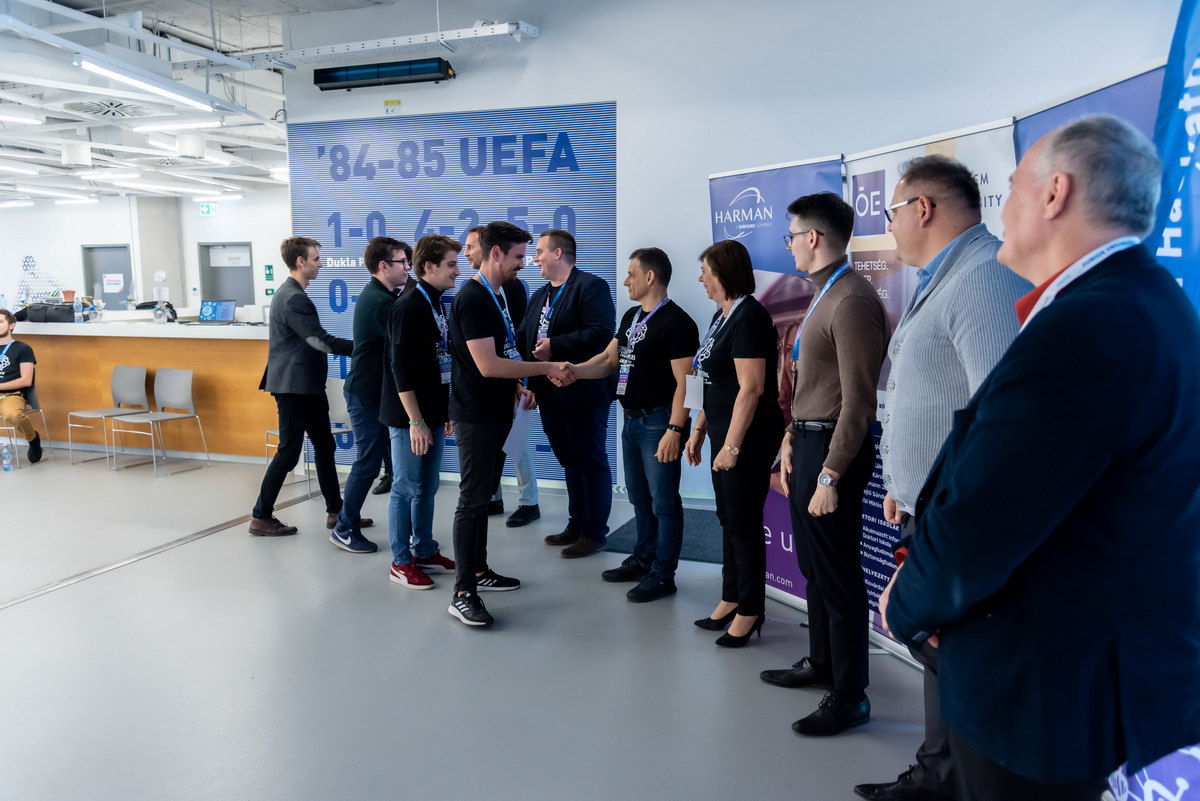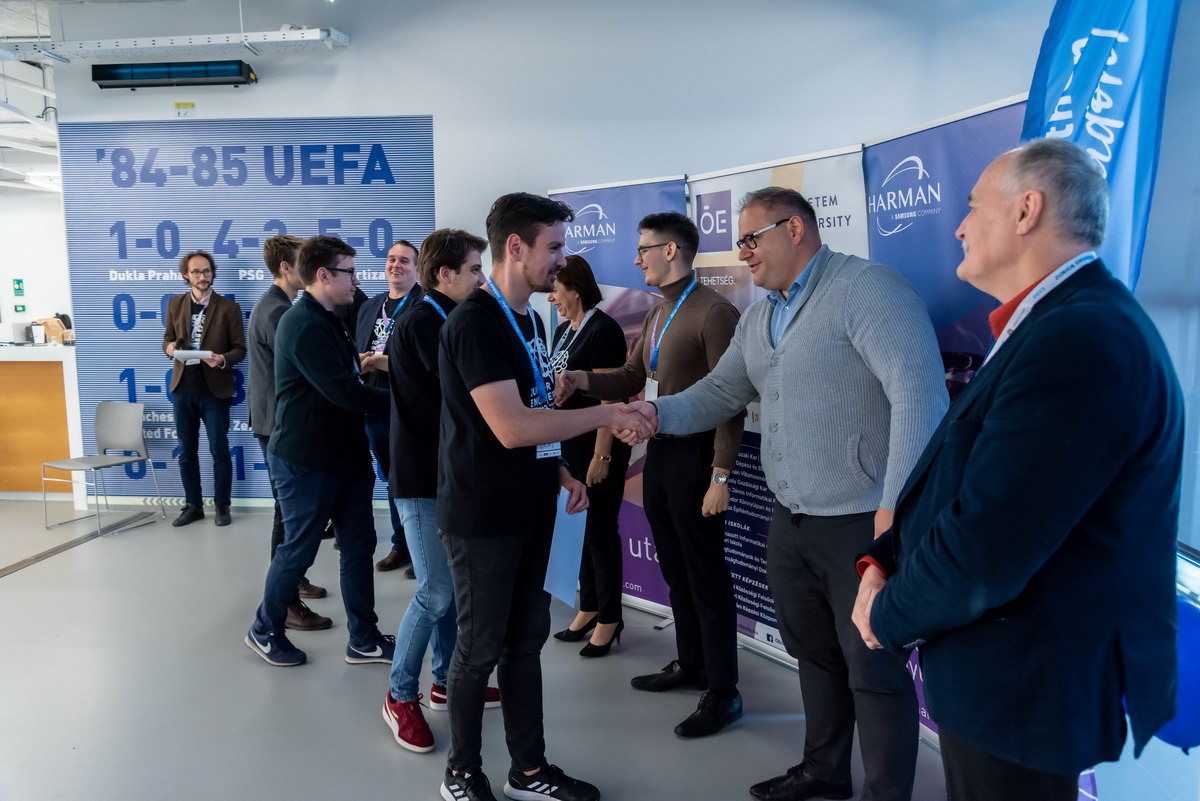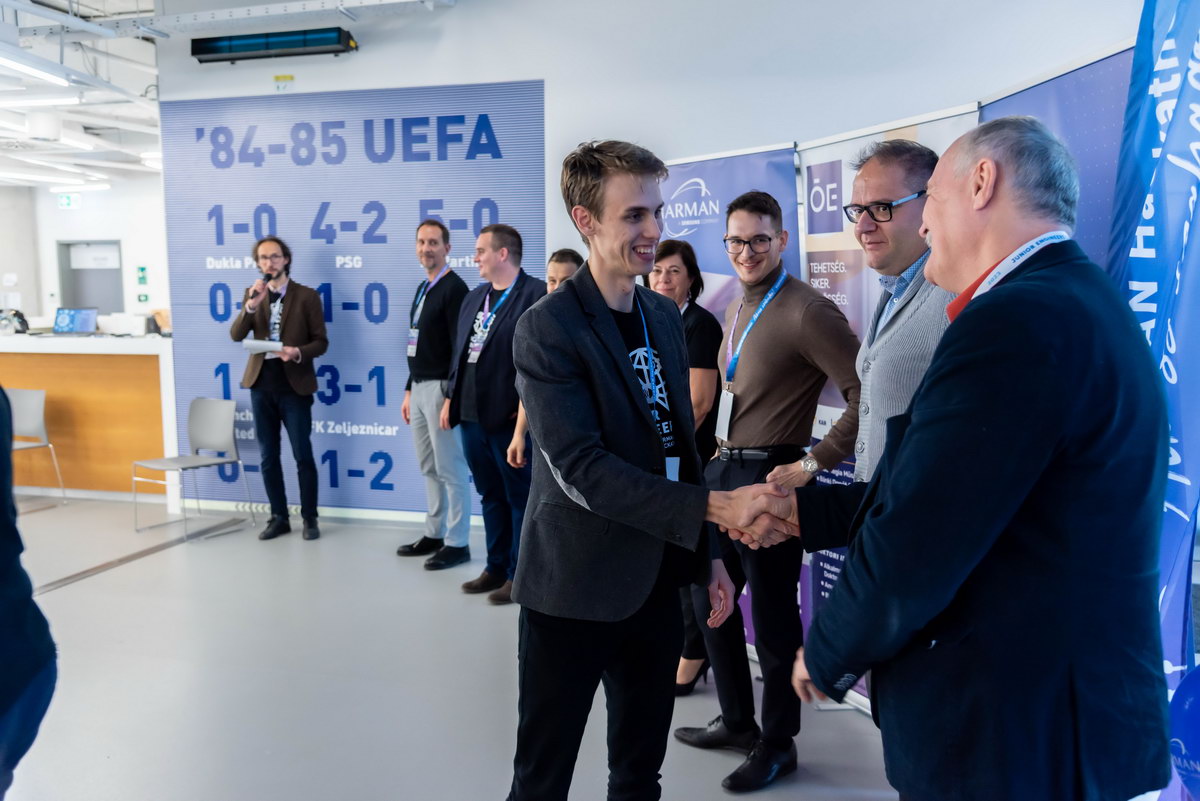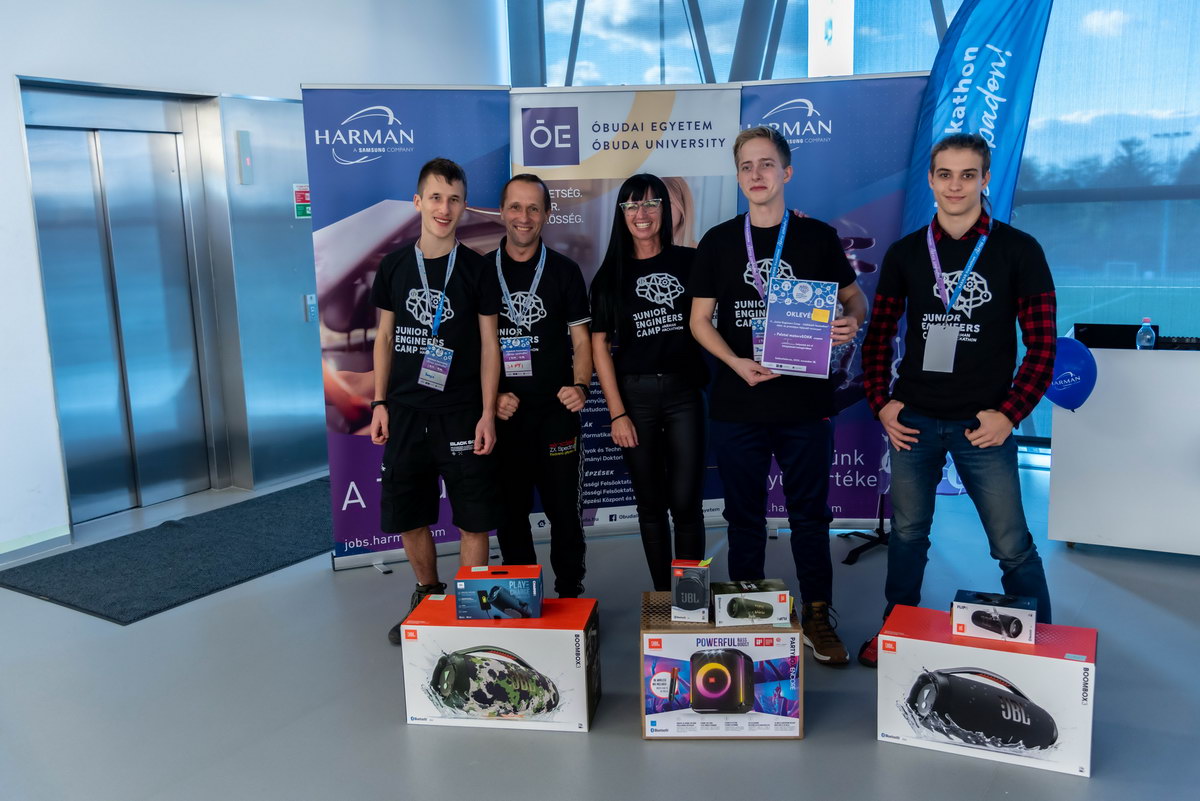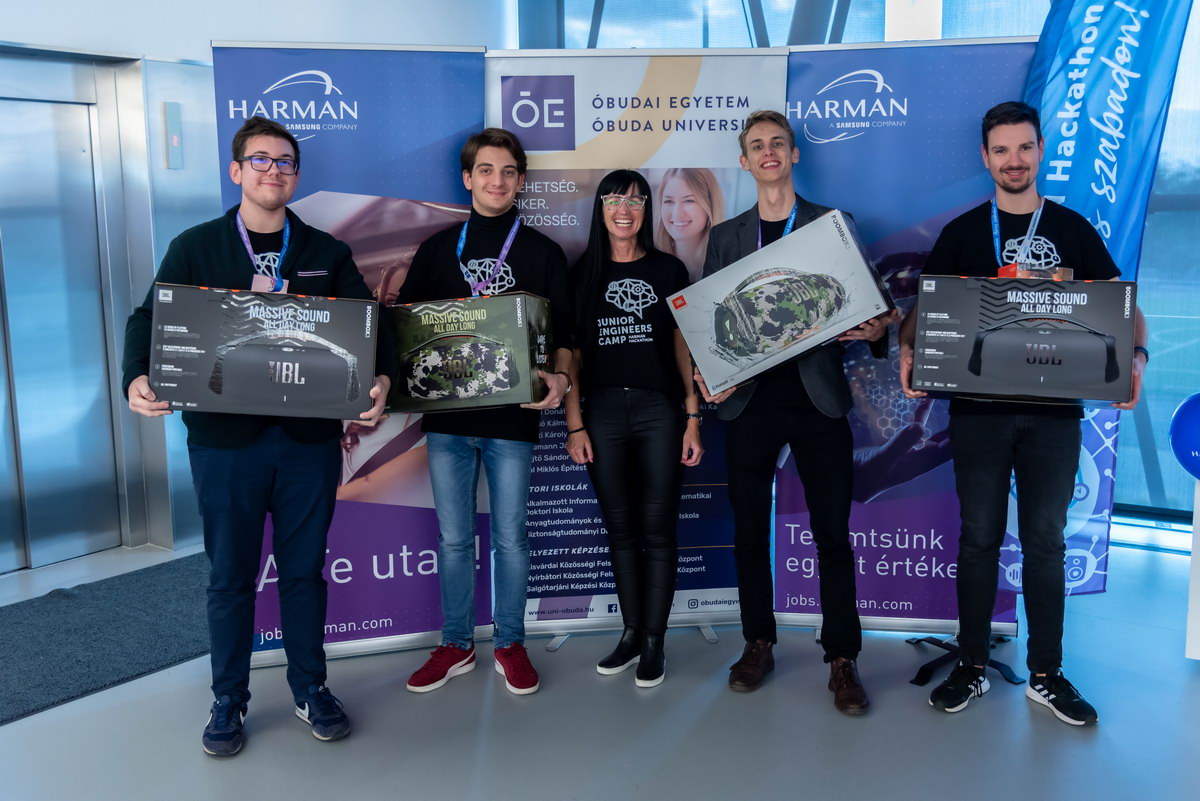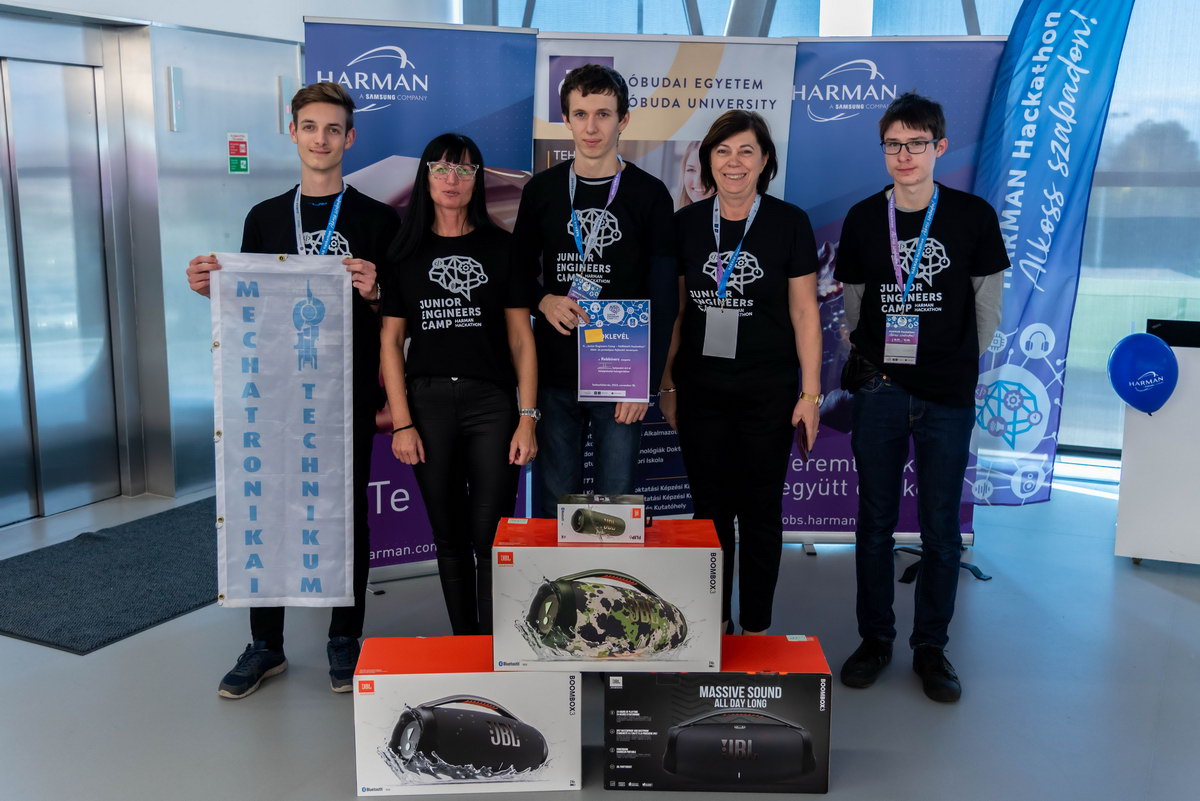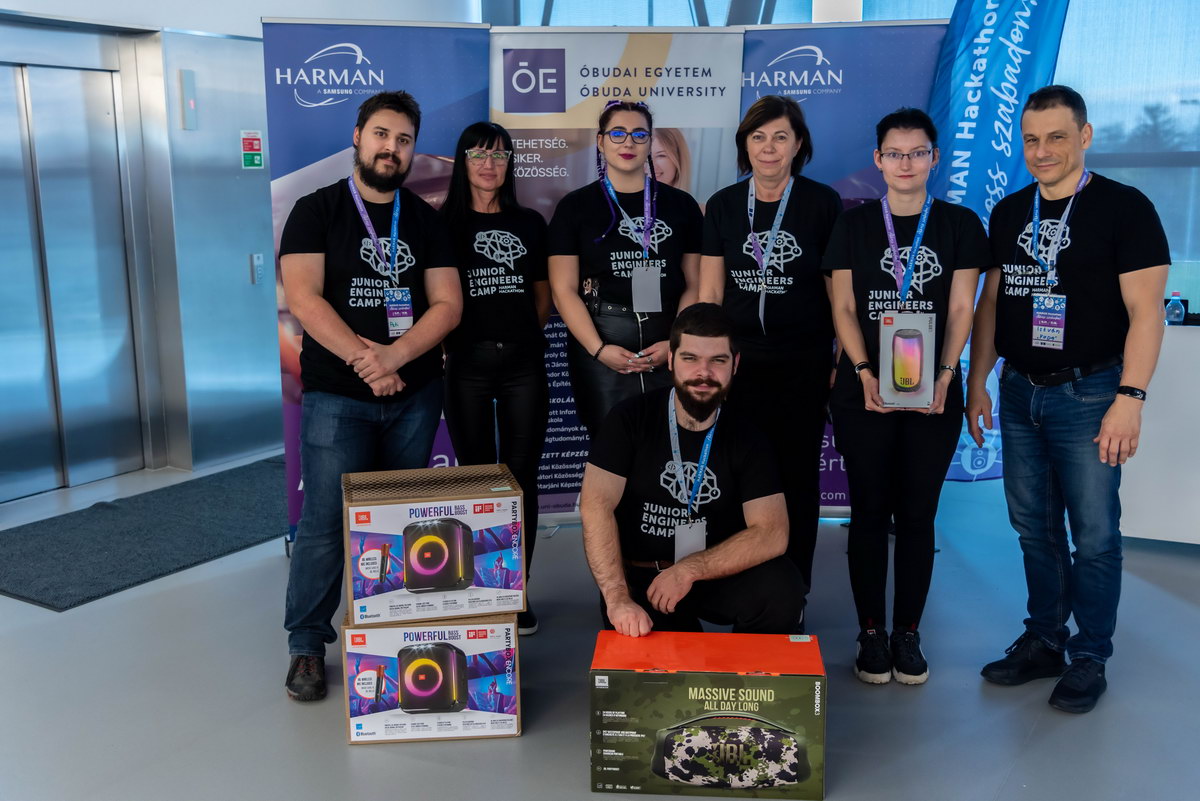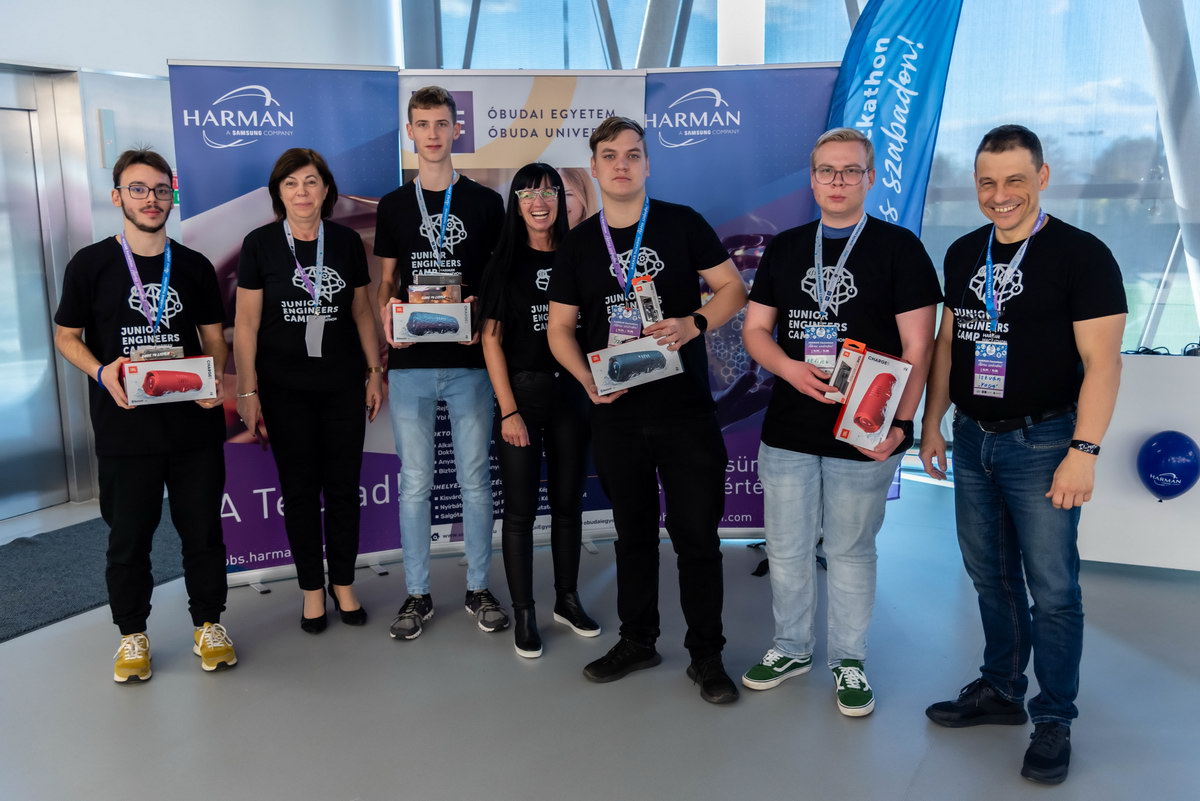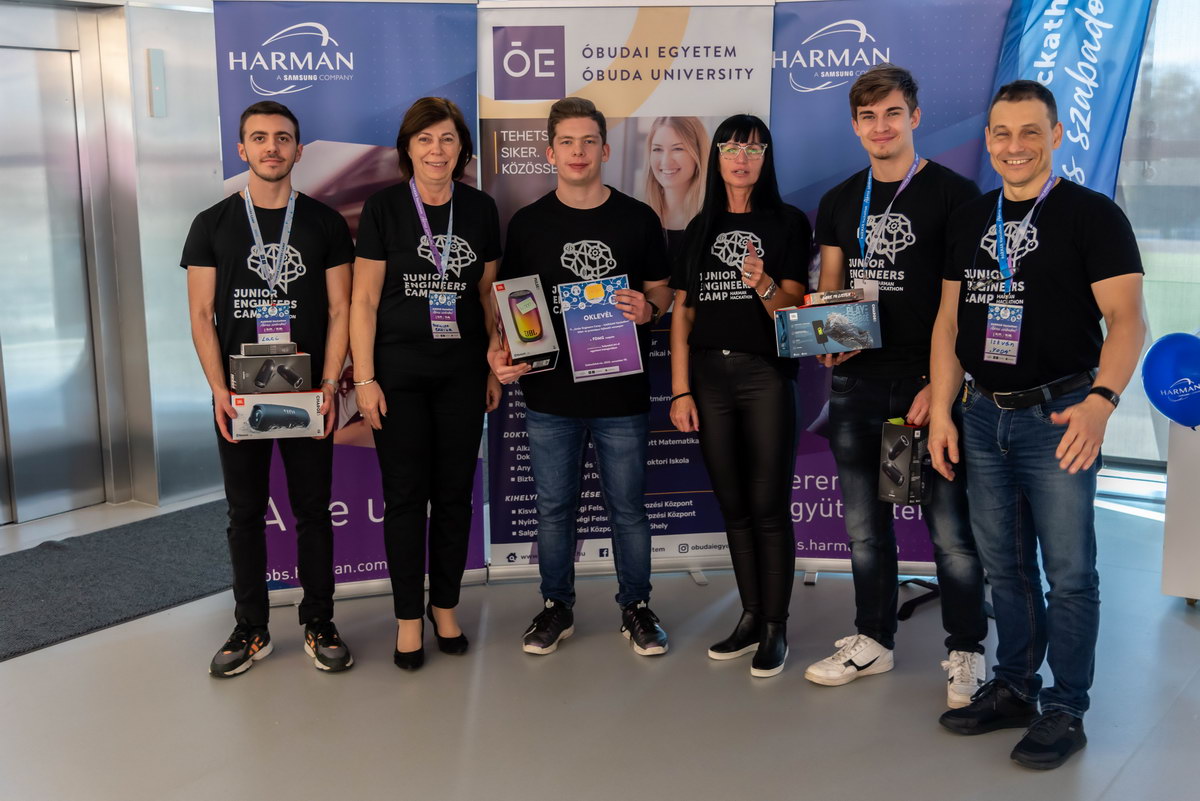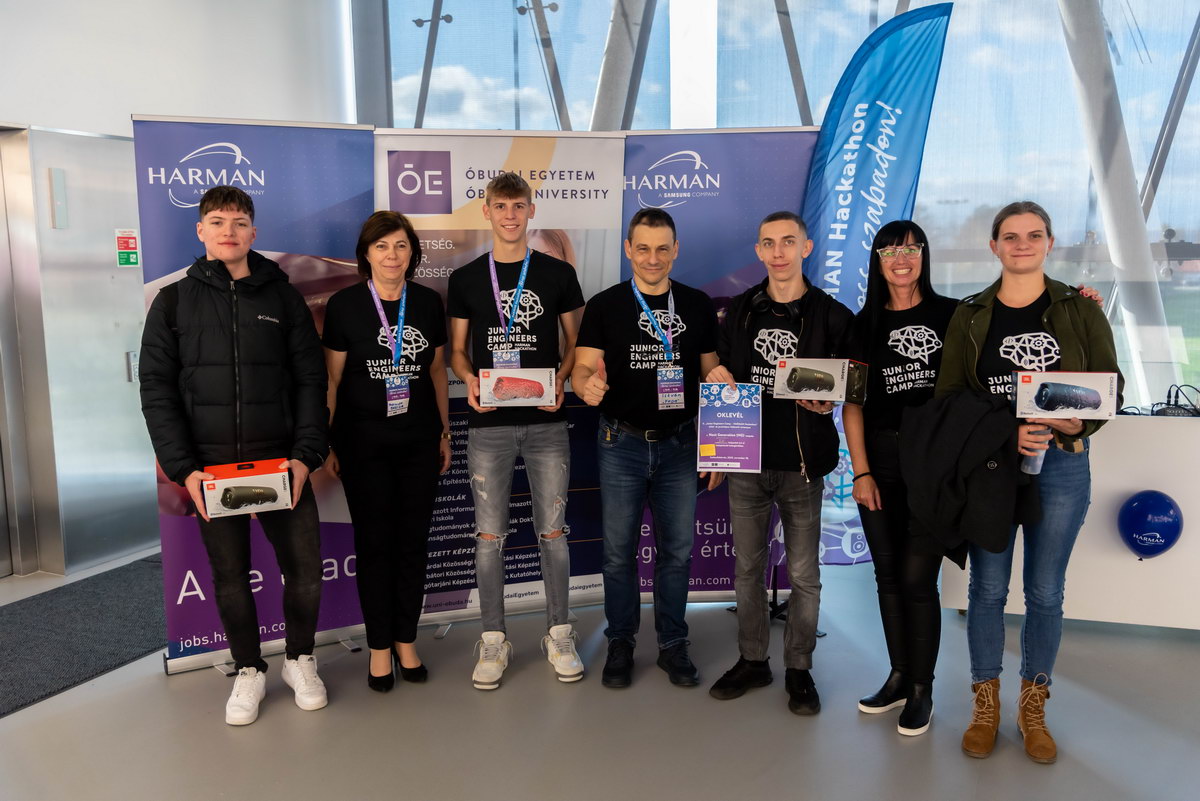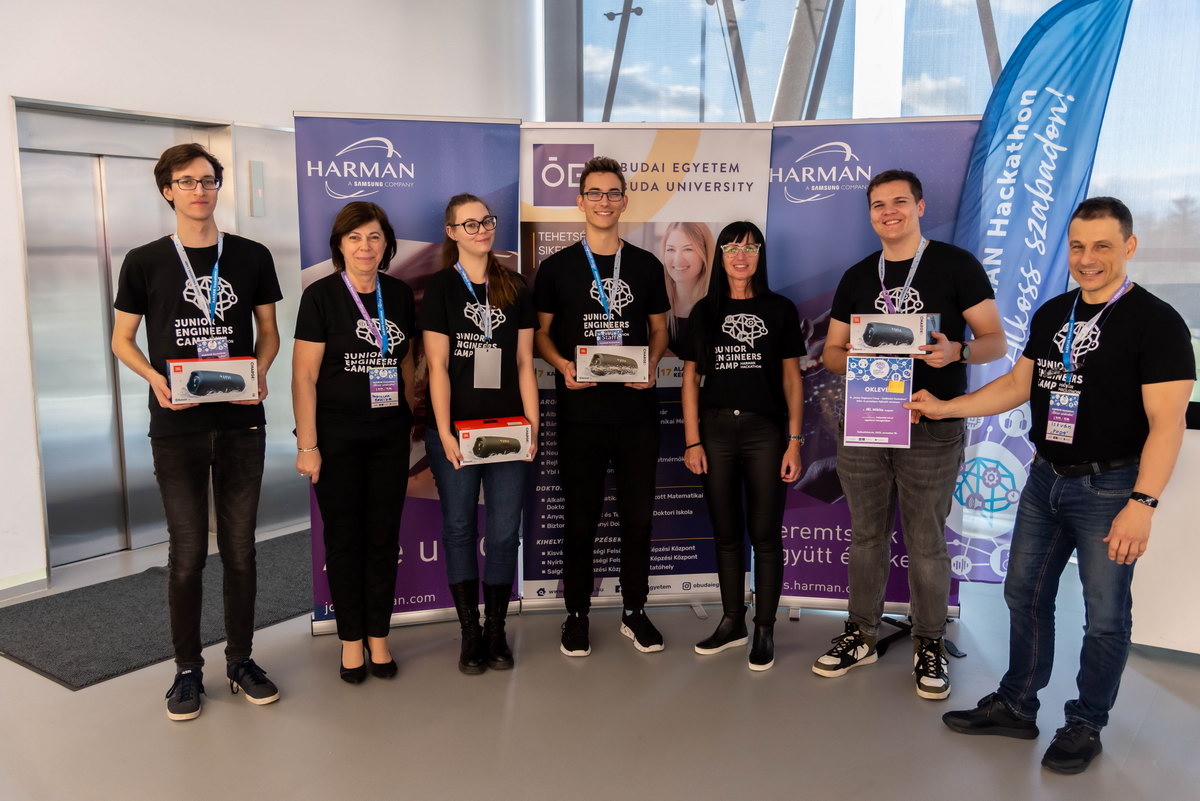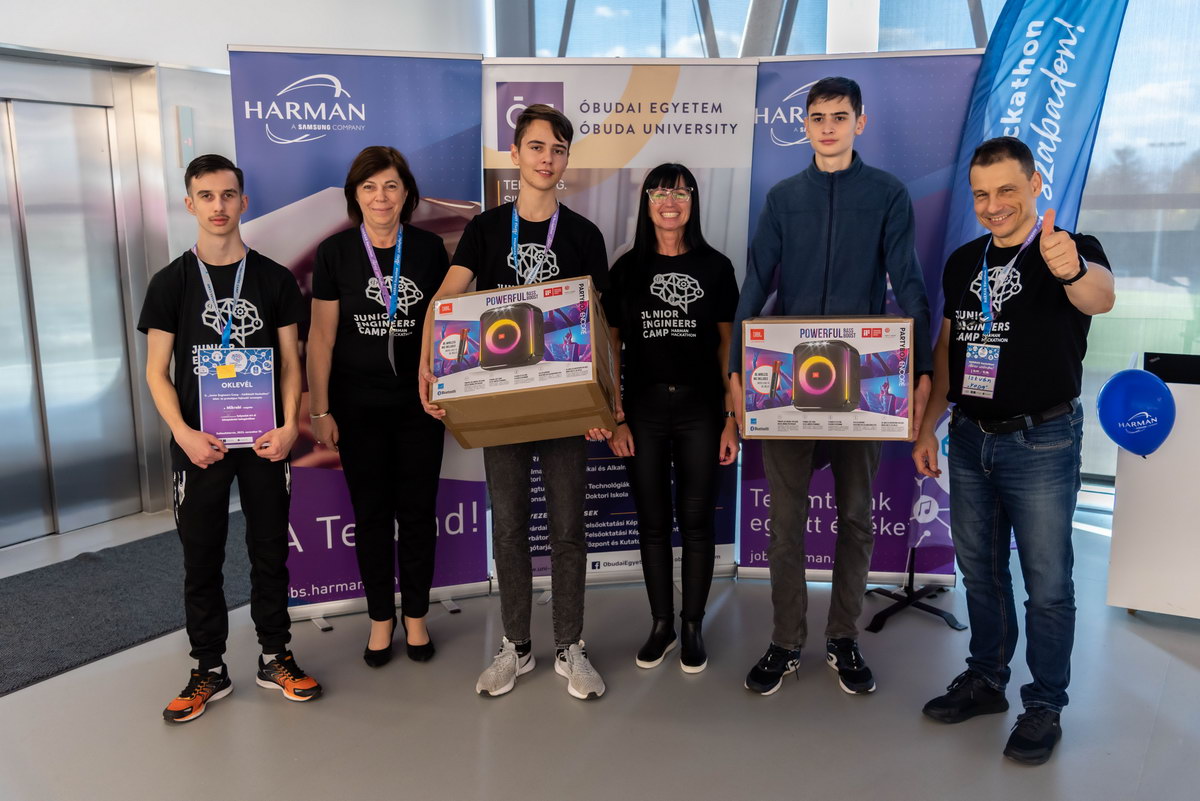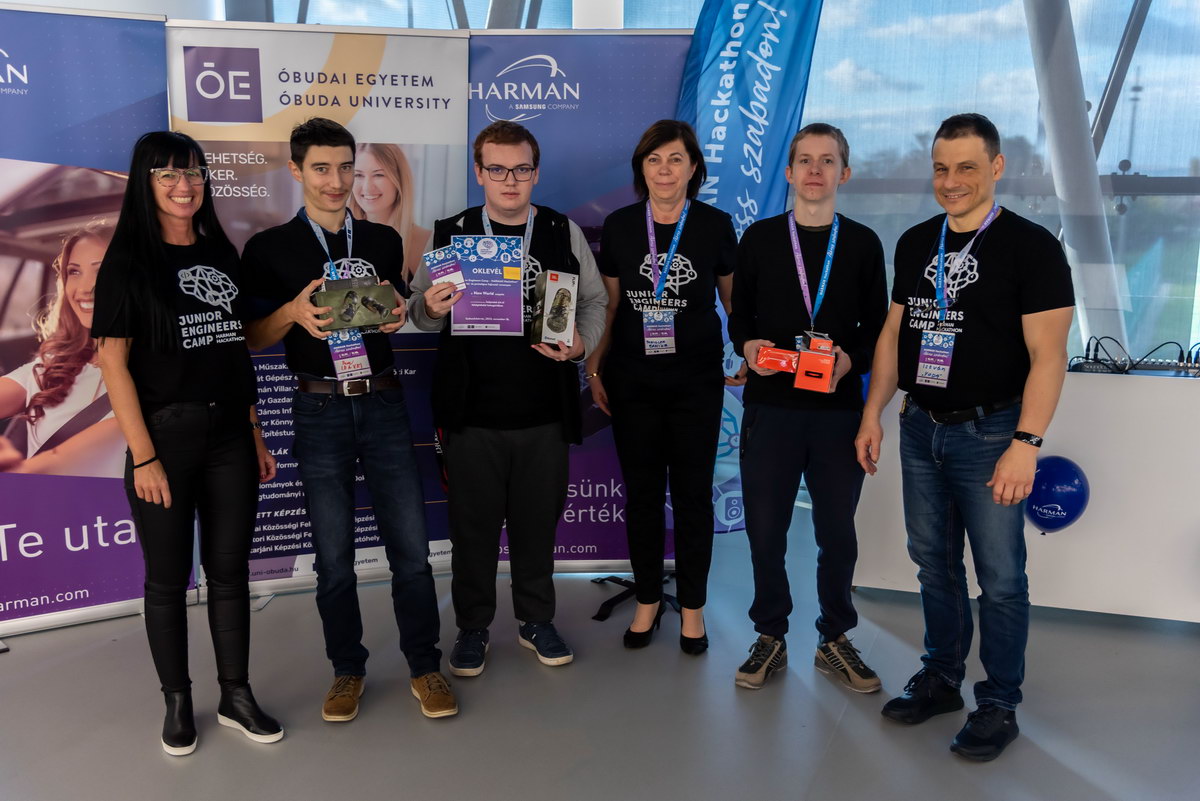The Municipality of Székesfehérvár City with County Rights, in collaboration with Harman Becker Kft. and the Alba Regia Faculty of Technology at Óbuda University, organized the “Junior Engineers Camp – HARMAN Hackathon” for the second time. This competition was aimed at teams comprising high school and university students to develop ideas and prototypes. The finals took place at the Sóstó Stadium on November 17-18, 2023, involving a 24-hour technical challenge and prototyping session. The event was inaugurated on Friday afternoon by Attila Mészáros, Deputy Mayor of Székesfehérvár; István Kis, Managing Director of Harman Becker Kft; and Prof. Dr. Györök György, Dean of the ÓE AMK.
Teams introduced themselves briefly on stage, followed by a thought-provoking presentation by Tibor Tiszai, process engineer at Harman Becker Kft., on the company’s development directions. Tibor Németh, education manager, then outlined the technical challenge and provided necessary technical information for task completion.
The result of the national call for the ideas and prototyping competition was evident in the composition of the teams that made it to the finals: 2 teams from Fehérvár, 1 from Pécs, 1 from Mohács, 1 from Budapest, and 1 joint secondary school team from Várpalota-Fehérvár. This year marked the first time the university category was included, with 1 team from the University of Pécs, 1 from the University of Pannonia, 1 from the Alba Regia Faculty of Technology at Óbuda University, and 1 joint team from Corvinus University of Budapest and Óbuda University.
The Sóstó stadium provided a well-prepared creative space for high school and university students, including tools such as a 3D printer, laptop, soldering iron, electronic components, sensors, etc., to overcome the technical challenge as well as for prototype production, however, teams were also allowed to bring their own tools. Throughout the finals, a mentor team (“Council of Wise Men”) comprising engineers from Harman Becker Ltd., was available for 24 hours to offer technical support as needed, but the teams themselves were primarily responsible for problem-solving. Competitors enjoyed unlimited food and drinks and had access to a rest area during the finals.
The pitch phase of the competition began at 10:30 a.m. on Saturday morning, during which the teams presented their developments to the jury through short presentations. Each team discussed the concept they had devised to address the technical challenge and showcased a functioning prototype of their product.
At the conclusion of the ‘proof of concept’ phase, the jury appreciated the teams’ presentations, emphasizing that despite the fatigue of the 24-hour competition, every participant had performed admirably and should take pride in themselves and the results achieved.
The evaluation committee included István Kis, Managing Director of Harman-Becker Kft; Tibor Németh, Education Manager of Harman-Becker Kft; Roland Farkas, a dual student at Óbuda University and Harman Becker Kft; Prof. Dr. György Györök, Dean of the Alba Regia Faculty of Technology at Óbuda University; Attila Mészáros, Vice Mayor of Székesfehérvár; and Károly Szántó, Director of the Venture Studio at Obuda Uni Venture Capital Zrt.
The final results of the competition are as follows:
In the secondary school category:
- Palotai motoroSOKK – a joint team from Veszprém SZC Öveges József Technical School and Dormitory, along with the Székesfehérvár SZC Széchenyi István Technical School
- Robbiners – Budapest SZC Mechatronics Secondary Technical School
- Sárgák – Baranya County SZC Zipernowsky Károly Technical School
- Next Generation (NG) – Baranya County SZC Mohács Radnóti Miklós Technical and Vocational School
- Mikrobi – Székesfehérvár SZC Széchenyi István Technical School
- New World – Székesfehérvár SzC Hunyadi Technical School
In the university category:
- AMKoffe – Alba Regia Faculty of Technology, Óbuda University
- Hackoffein – University of Pécs
- FDMG – a joint team from Corvinus University of Budapest and Óbuda University
- JBL Miklós – University of Pannonia
The teams were informed about the number of Harman dollars they earned through their development work.
Participants could redeem their virtual banknotes for Harman premium audio devices placed in the event space.
The gifts were presented by Erzsébet Preiszler, Managing Director of Harman Becker Kft., and Hajnalka Árki, Senior HR Director.
In addition to the valuable gifts, the winning high school and university teams will also enjoy an exclusive factory visit to the Harman Becker Kft. factory in Hungary.
Throughout the evening, all the organisers and participants of the hackathon demonstrated exceptional collaboration, teamwork, and adaptability.
For more information about the competition, visit the official websites:
